Shows
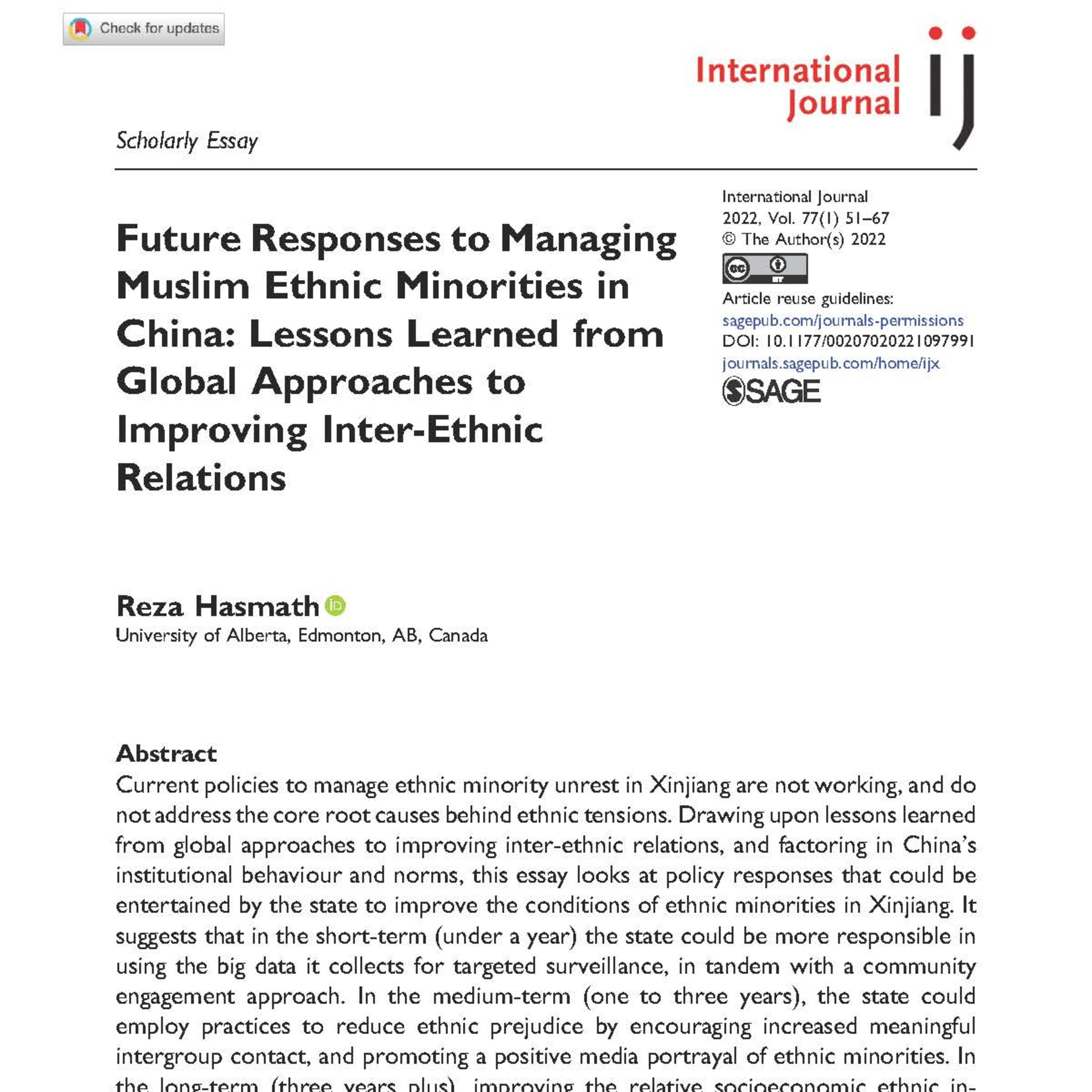
Reza HasmathFuture Responses to Managing Muslim Ethnic Minorities in China: Lessons Learned from Global Approaches to Improving Inter-Ethnic RelationsContents:
1. Introduction
2. The Context
3. Short Term Strategies (Under a Year)
4. Medium Term Strategies (1 to 3 Years)
5. Long Term Strategies (3 Years Plus)
6. Conclusion
Abstract:
Current policies to manage ethnic minority unrest in Xinjiang are not working, and they do not address the core root causes behind ethnic tensions. Drawing upon lessons learned from global approaches to improve inter-ethnic relations, and factoring China’s institutional behaviour and norms, this essay looks at policy responses that can be entertained by the state to improve the conditions of et...
2023-01-3047 min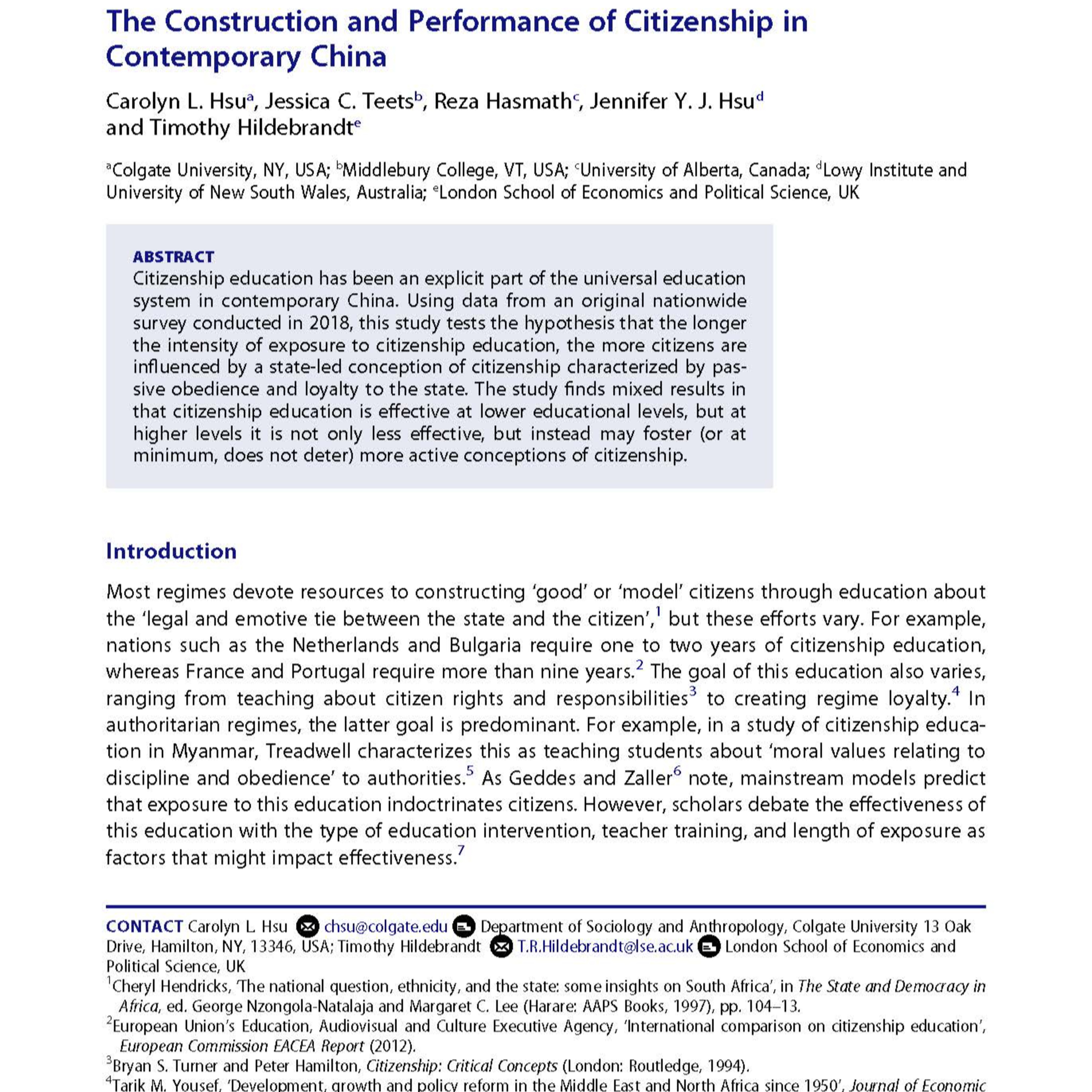
Reza HasmathThe Construction and Performance of Citizenship in Contemporary ChinaContents:
1. Introduction
2. Theoretical Framework
3. Methodology
4. Results
5. Conclusion
Abstract:
Citizenship education has been an explicit part of the universal education system in contemporary China. Using data from an original nationwide survey conducted in 2018, this study tests the hypothesis that the longer the intensity of exposure to citizenship education, the more citizens are influenced by a state-led conception of citizenship characterized by passive obedience and loyalty to the state. The study finds mixed results in that citizenship education is effective at lower educational levels, but at higher...
2022-10-2350 min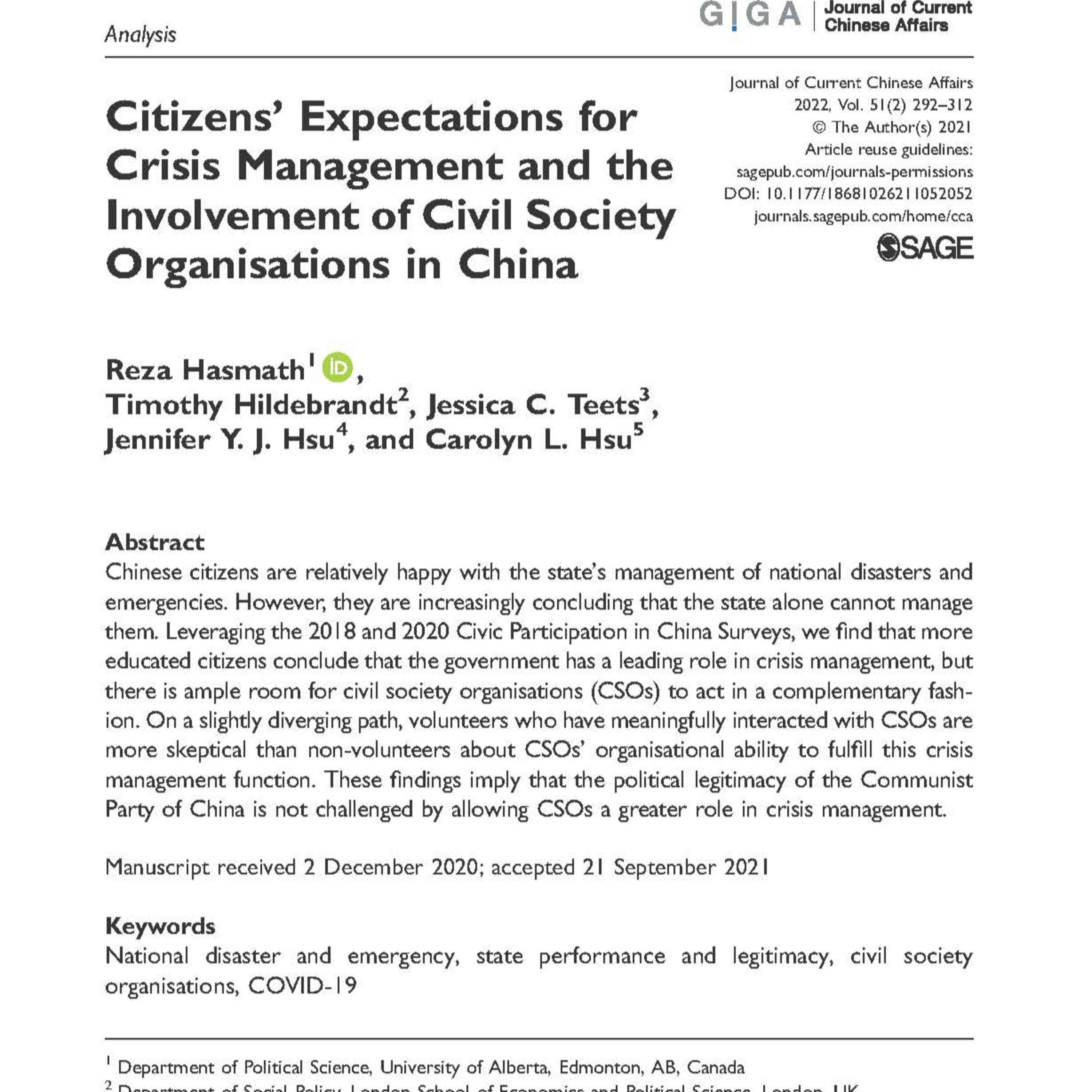
Reza HasmathCitizens’ Expectations for Crisis Management and the Involvement of Civil Society Organizations in ChinaContents:
1. Introduction
2. Citizens Expectations and State Performance Legitimacy in a Period of National Crisis
3. Data
4. Results and Discussion
5. Implications and Conclusion
Abstract:
Chinese citizens are relatively happy with the state’s management of national disasters and emergencies. However, they are increasingly concluding that the state alone cannot manage them. Leveraging the 2018 and 2020 Civic Participation in China Surveys, we find that more educated citizens conclude that the government have a leading role crisis management, but there is ample room for civil society organizations (CSOs) to act in...
2022-09-0829 min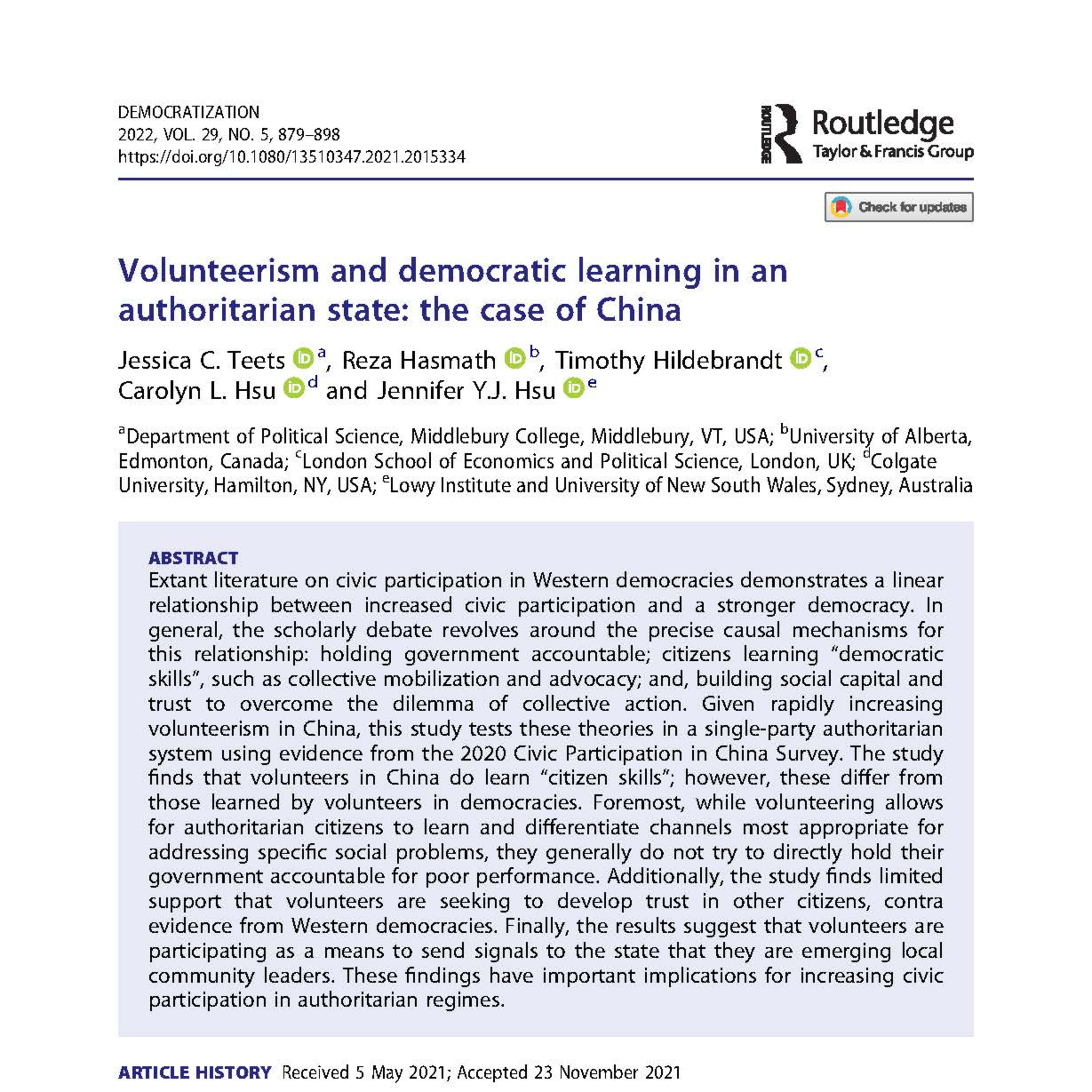
Reza HasmathVolunteerism and Democratic Learning in an Authoritarian State: The Case of ChinaContents:
1. Introduction
2. Framework
3. Methodology
4. Results and Findings
5. Implications and Conclusion
Abstract:
Extant literature on civic participation in Western democracies demonstrates a linear relationship between increased civic participation and a stronger democracy. In general, the scholarly debate revolves around the precise causal mechanisms for this relationship: holding government accountable; citizens learning ‘democratic skills’, such as collective mobilization and advocacy; and, building social capital and trust to overcome the dilemma of collective action. Given the rapidly increasing volunteerism in China, this study tests these theories in an auth...
2022-09-0745 min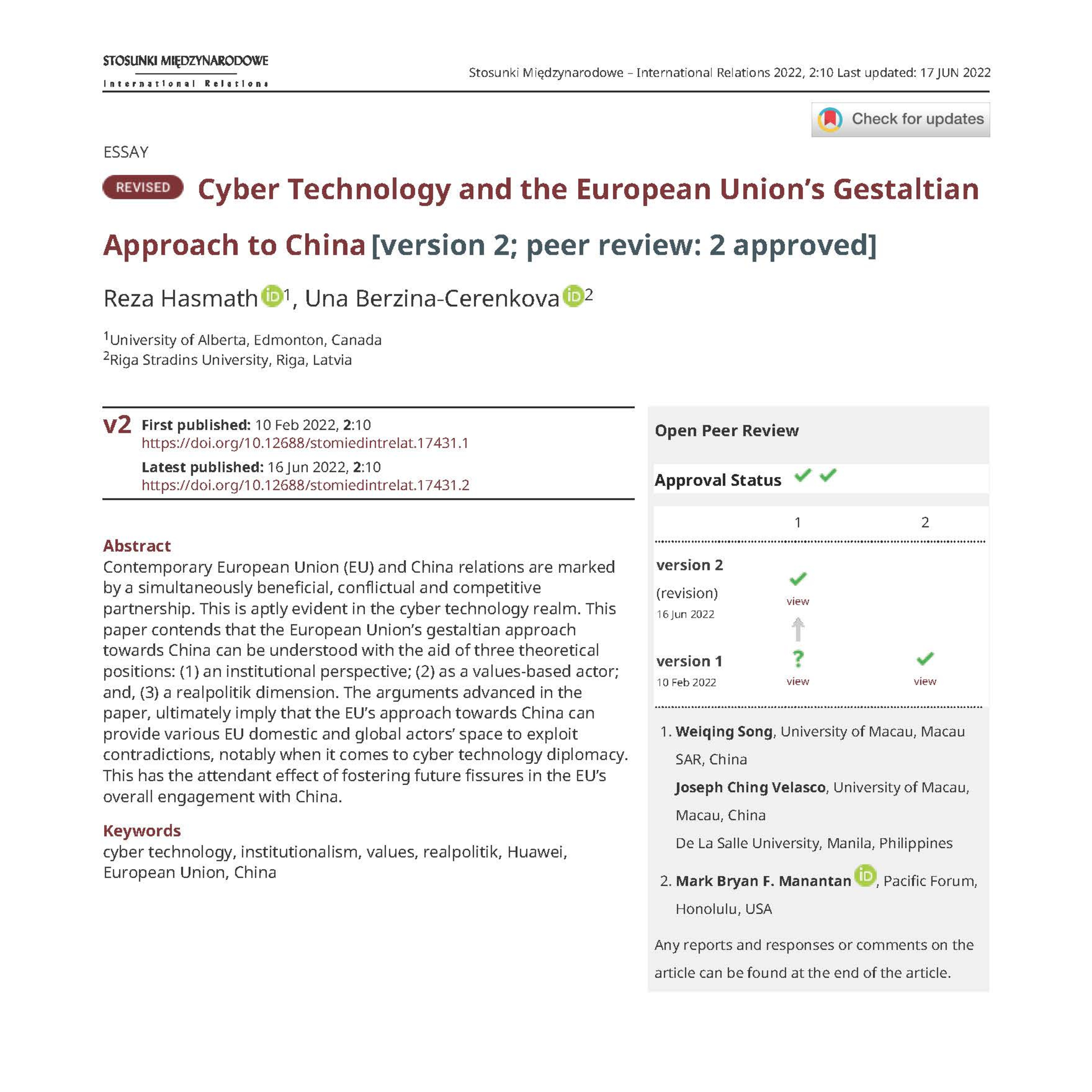
Reza HasmathCyber Technology and the European Union’s Gestaltian Approach to ChinaContents:
1. Introduction
2. The Institutional Approach
3. A Values-Based Actor
4. Realpolitik Dimension
5. Implications and Conclusion
Abstract:
Contemporary European Union (EU) and China relations are marked by a simultaneously beneficial, conflictual and competitive partnership. This is aptly evident in the cyber technology realm. This paper contends that the European Union’s gestaltian approach towards China can be understood with the aid of three theoretical positions: (1) an institutional perspective; (2) as a values-based actor; and, (3) a realpolitik dimension. The arguments advanced in the paper, ultimately imply that the EU’s appr...
2022-09-0722 min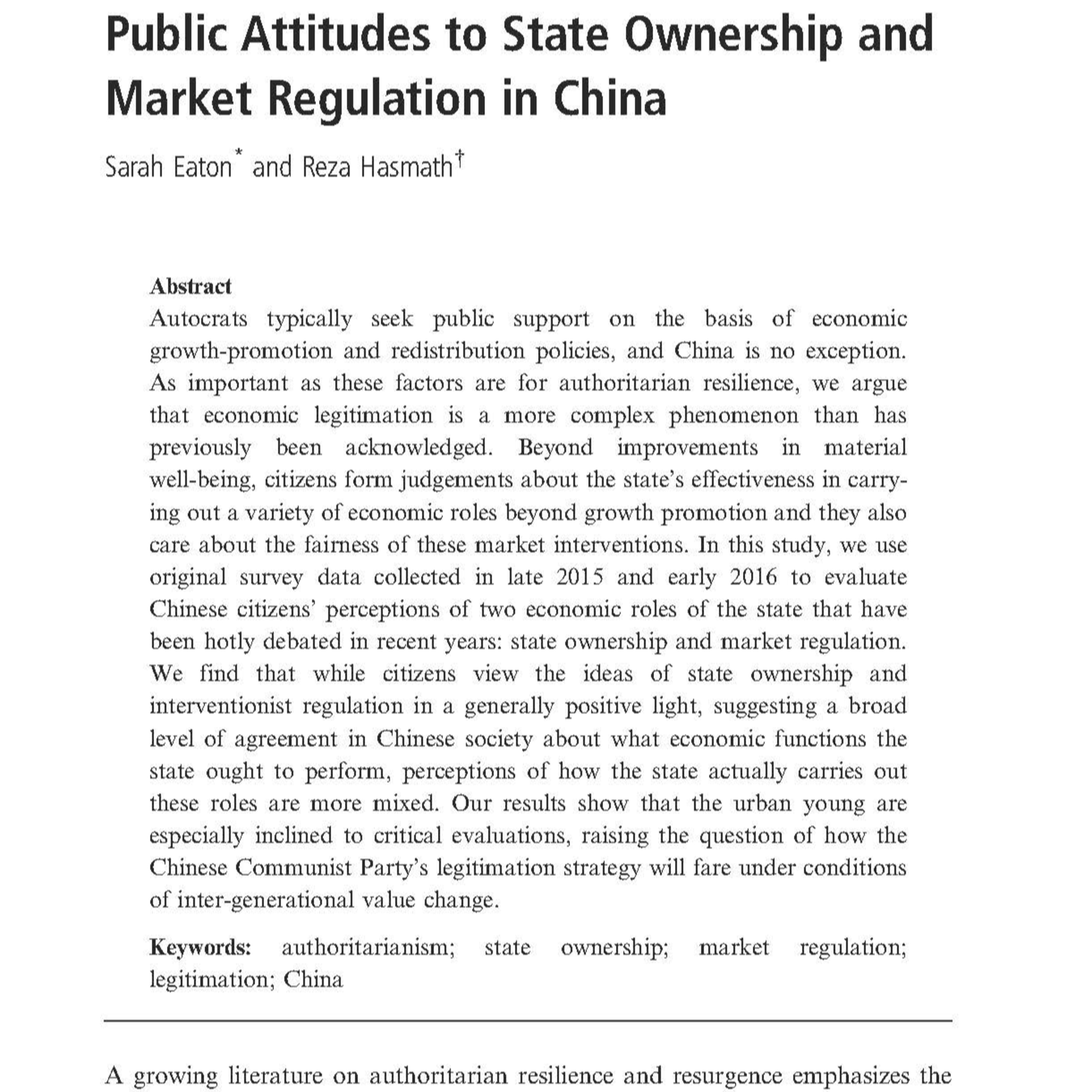
Reza HasmathEconomic Legitimation in a New Era: Public Attitudes About State Ownership and Market RegulationContents:
1. Introduction
2. Economic Legitimation and Authoritarian Resilience
3. Methodology
4. Perceptions of State Ownership
5. Perceptions of Market Regulation
6. Discussion
7. Conclusion
Abstract:
Autocrats typically seek public support on the basis of economic growth-promotion and redistribution policies, and China is no exception. As important as these factors are for authoritarian resilience, we argue that economic legitimation is a more complex phenomenon than has previously been acknowledged. Beyond improvements in material well-being, citizens form judgments about the state’s effectiveness in carrying out a variety of ec...
2022-02-0241 min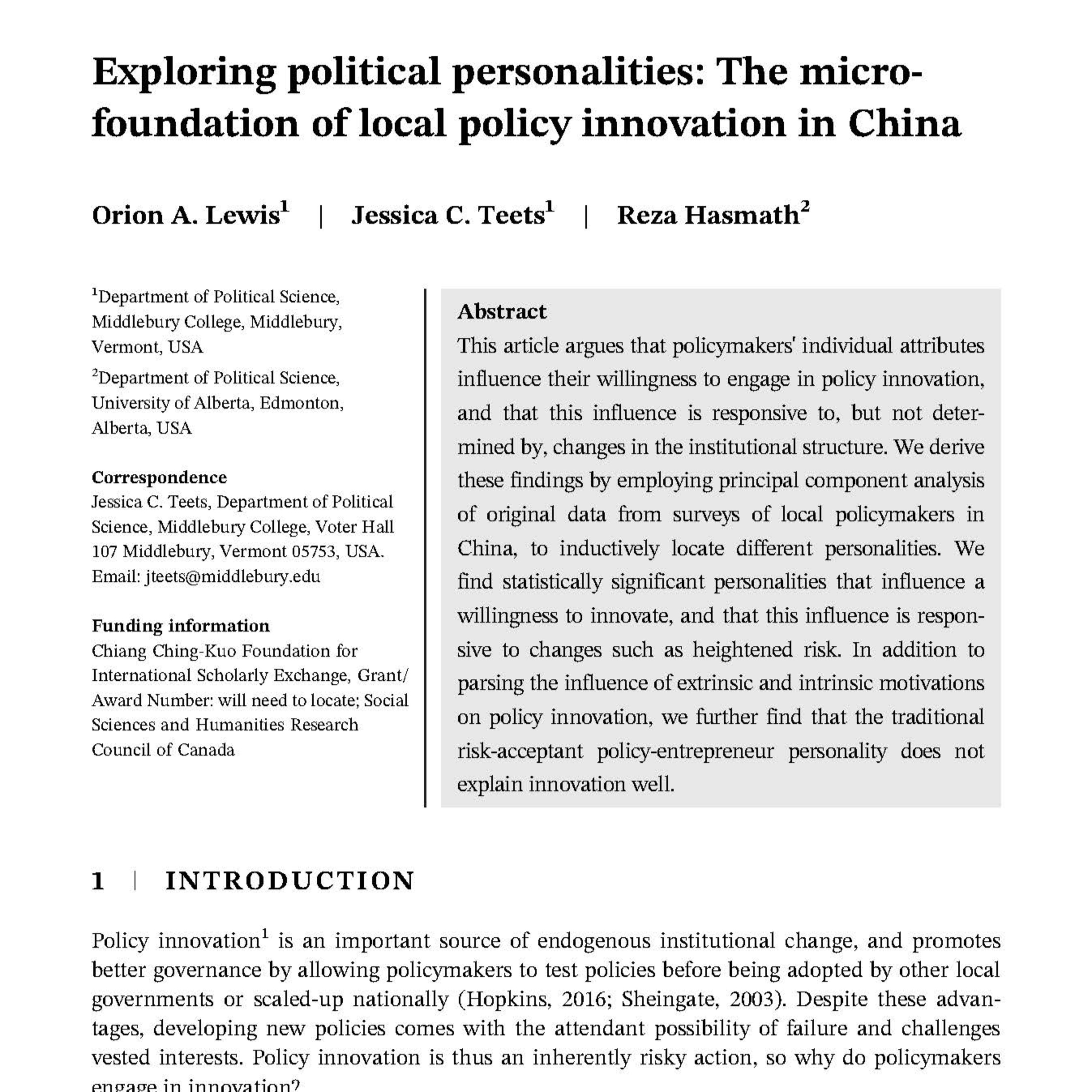
Reza HasmathExploring Political Personalities: The Micro-Foundation of Local Policy Innovation in ChinaContents:
1. Introduction
2. Individual Personality and Policy Innovation
3. Policy Innovation in China
4. Research Design, Prior Expectations, and Data Collection
5. Results
6. Implications and Conclusion
Abstract:
This article argues that policymakers’ individual attributes influence their willingness to engage in policy innovation, and that this influence is responsive to, but not determined by, changes in the institutional structure. We derive these findings by employing principal component analysis of original data from surveys of local policymakers in China, to inductively locate different personalities. We find statistically significant personalities tha...
2022-02-0253 min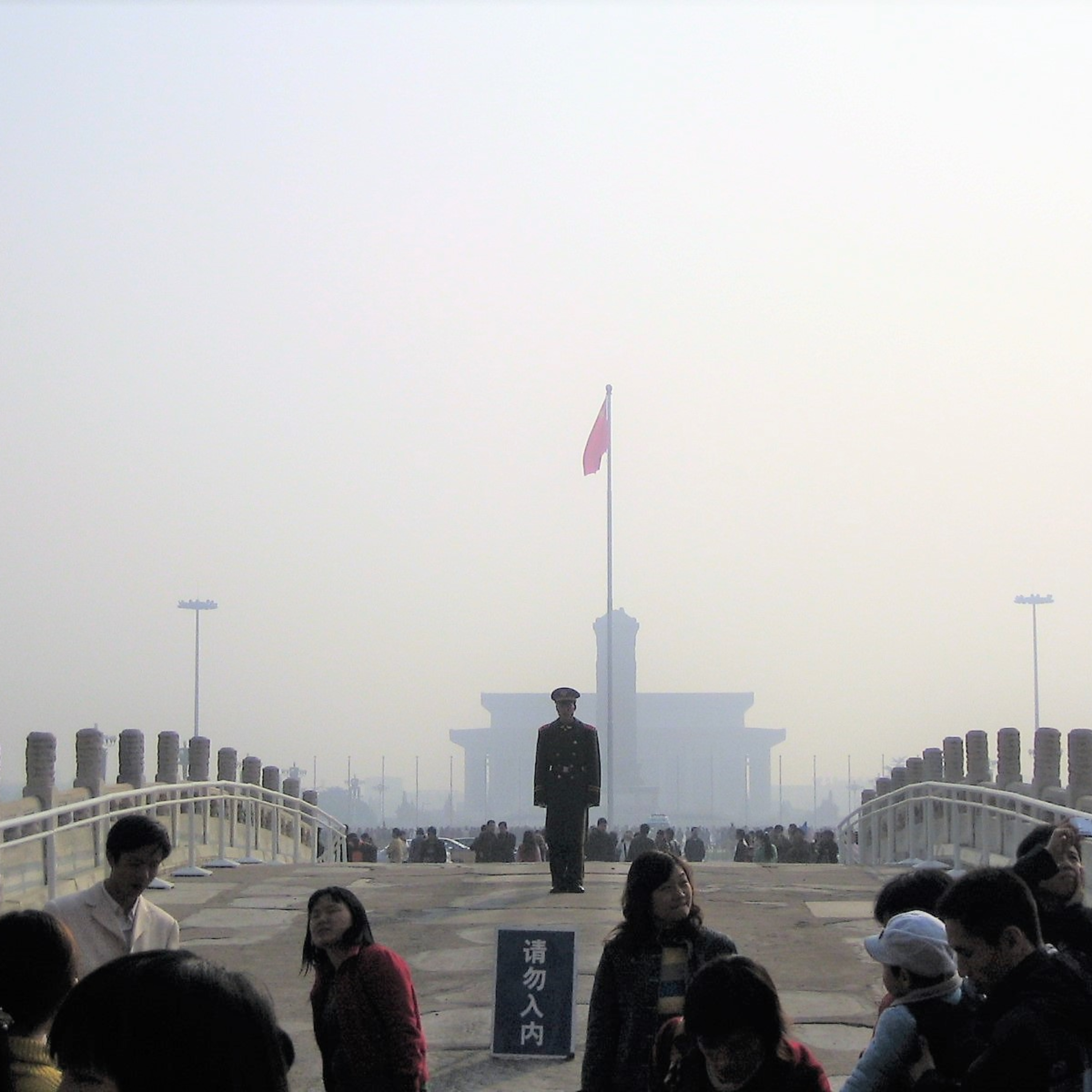
Reza HasmathIntroduction to Chinese Politics - 2 - Lecture Two - The Onset of ReformsContents:
1. Introduction
2. Background
3. Characteristics of China’s Leninist Polity
4. Can China Support this Political System?
5. Expressions of Discontent
6. The Need for Reforms
7. The Impact of Reforms
8. Final Words
For more information on the lecture series, click here.
2021-09-0233 min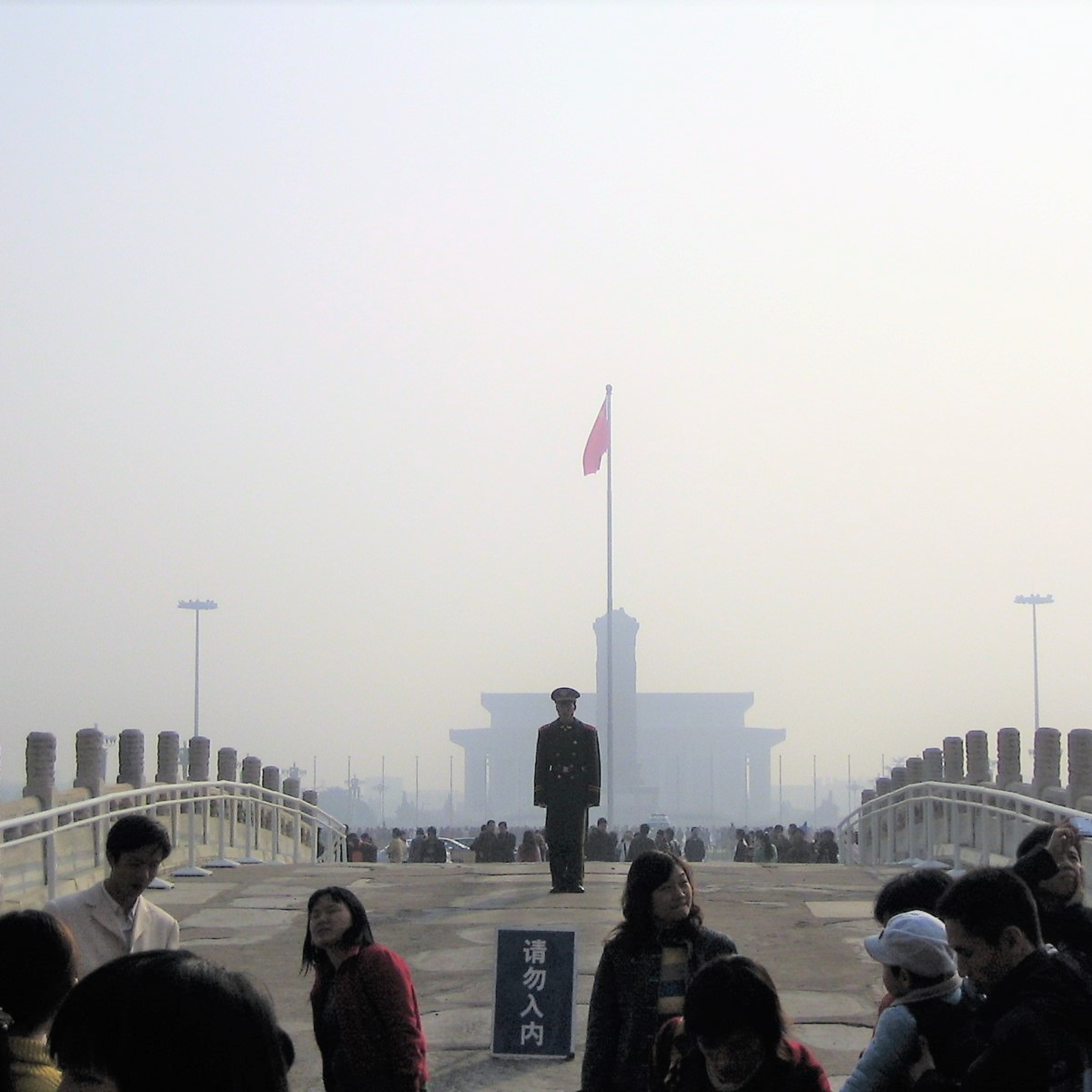
Reza HasmathIntroduction to Chinese Politics - 1 - Lecture One - The Path to ModernizationContents:
1. Introduction
2. Brief History (1840-1910)
3. Brief History (1911-1949)
4. Brief History (1949-1978)
5. Brief History (1978-2012)
6. Lessons Learned
7. Final Words
For more information on the lecture series, click here.
2021-08-3128 min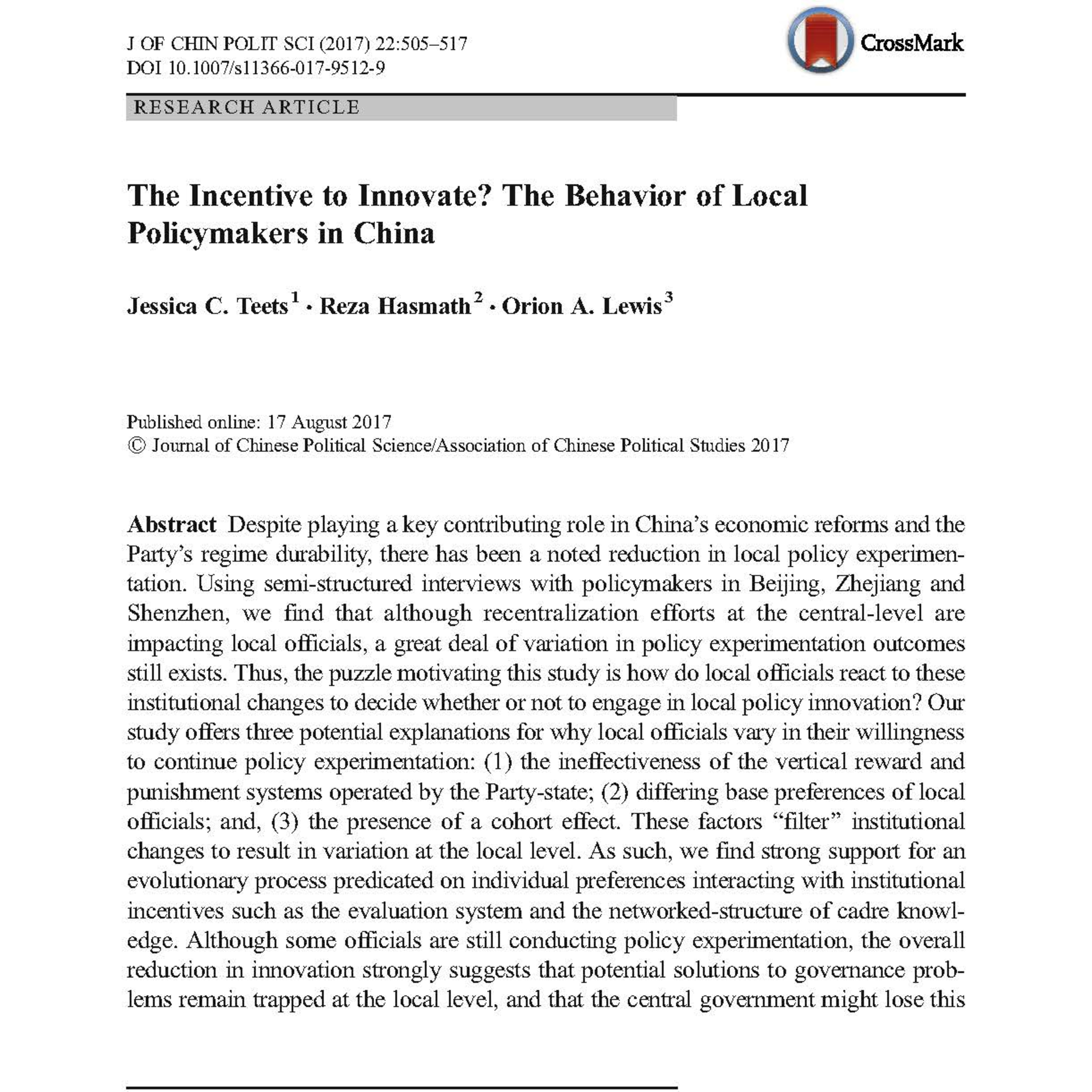
Reza HasmathThe Incentive to Innovate? The Behavior of Policymakers in ChinaContents:
1. Introduction
2. Understanding Incentives for Innovation: Using an Evolutionary Framework
3. Innovation Under Recentralization
4. Implications for Innovation
Abstract:
Despite playing a key contributing role in China’s economic reforms and the Party’s regime durability, there has been a noted reduction in local policy experimentation. Using semi-structured interviews with policymakers in Beijing, Zhejiang and Shenzhen, we find that although recentralization efforts at the central-level are impacting local officials, a great deal of variation in policy experimentation outcomes still exists. Thus, the puzzle motivating this study is how do loca...
2021-08-2536 min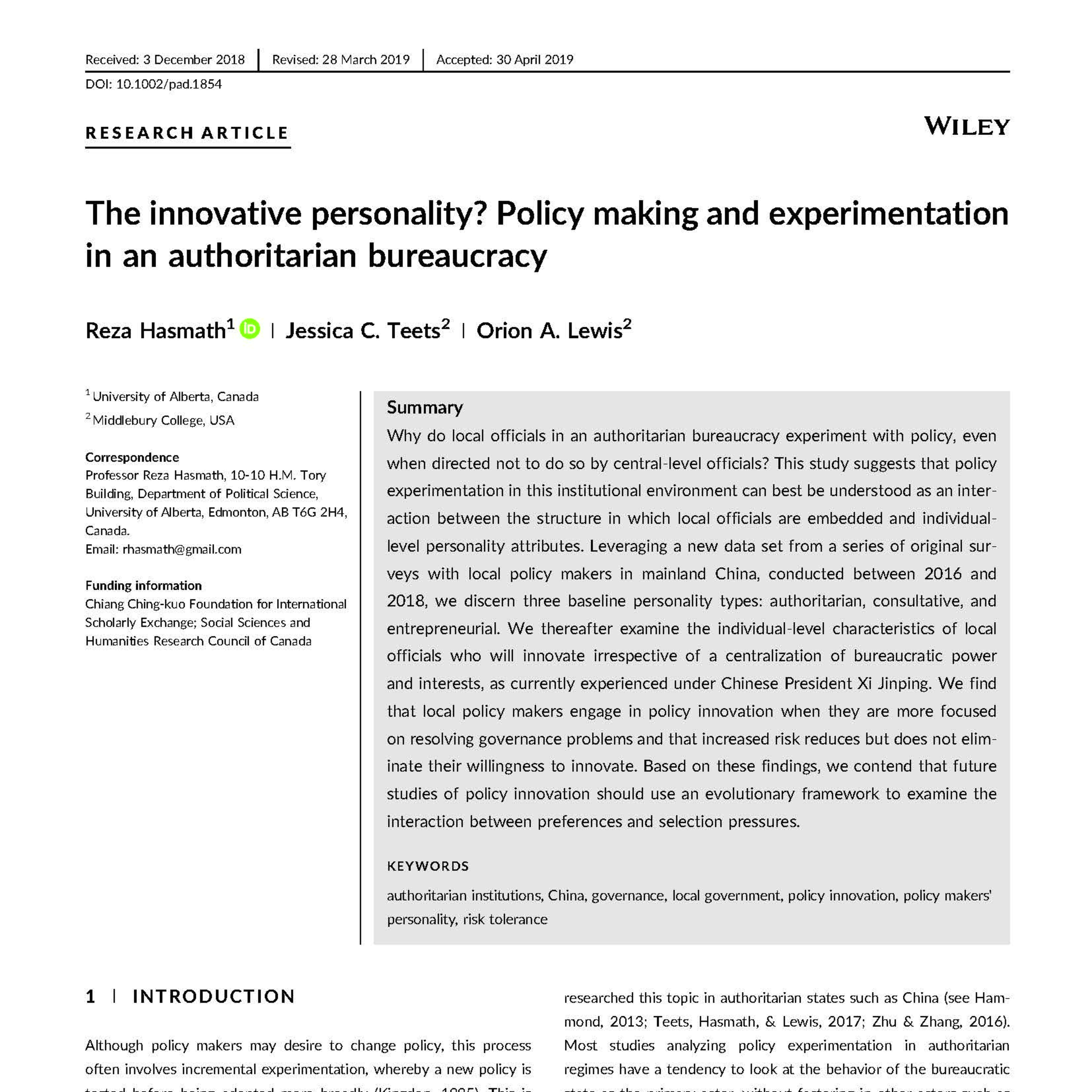
Reza HasmathThe Innovative Personality? Policymaking and Experimentation in an Authoritarian BureaucracyContents:
1. Introduction
2. Theoretical Framework
3. Methodology
4. Findings and Discussion
5. Implications and Conclusion
Abstract:
Why do local officials in an authoritarian bureaucracy experiment with policy, even when directed not to do so by central-level officials? This study suggests that policy experimentation in this institutional environment can best be understood as an interaction between the structure in which local officials are embedded, and individual-level personality attributes. Leveraging a new data set from a series of original surveys with local policymakers in mainland China, conducted between 2016 and 2018, we discern...
2021-08-2531 min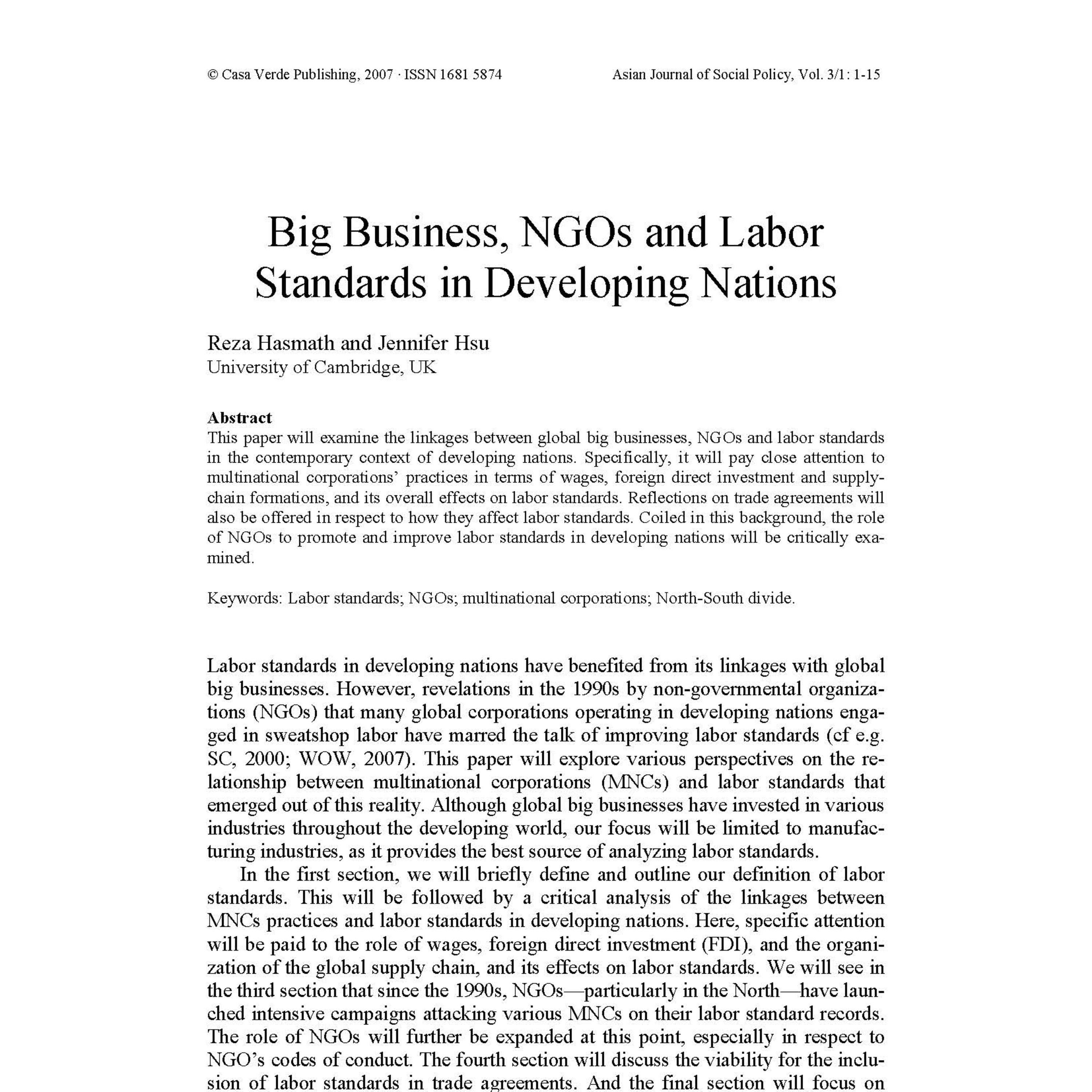
Reza HasmathBig Business, NGOs and Labor Standards in Developing Nations: A Critical ReflectionContents:
1. Introduction
2. Defining Labor Standards
3. Is There a ‘Race to the Bottom’?
4. The Impact of NGOs
5. Trade Agreements and the South
6. The China Case
7. Conclusion
Abstract:
This paper will examine the linkages between global big businesses, NGOs and labour standards in the contemporary context of developing nations. Specifically, it will pay close attention to multinational corporations’ practices in terms of wages, foreign direct investment and supply-chain formations, and its overall effects on labour standards. Reflections on trade agreements will also be offered...
2021-08-2543 min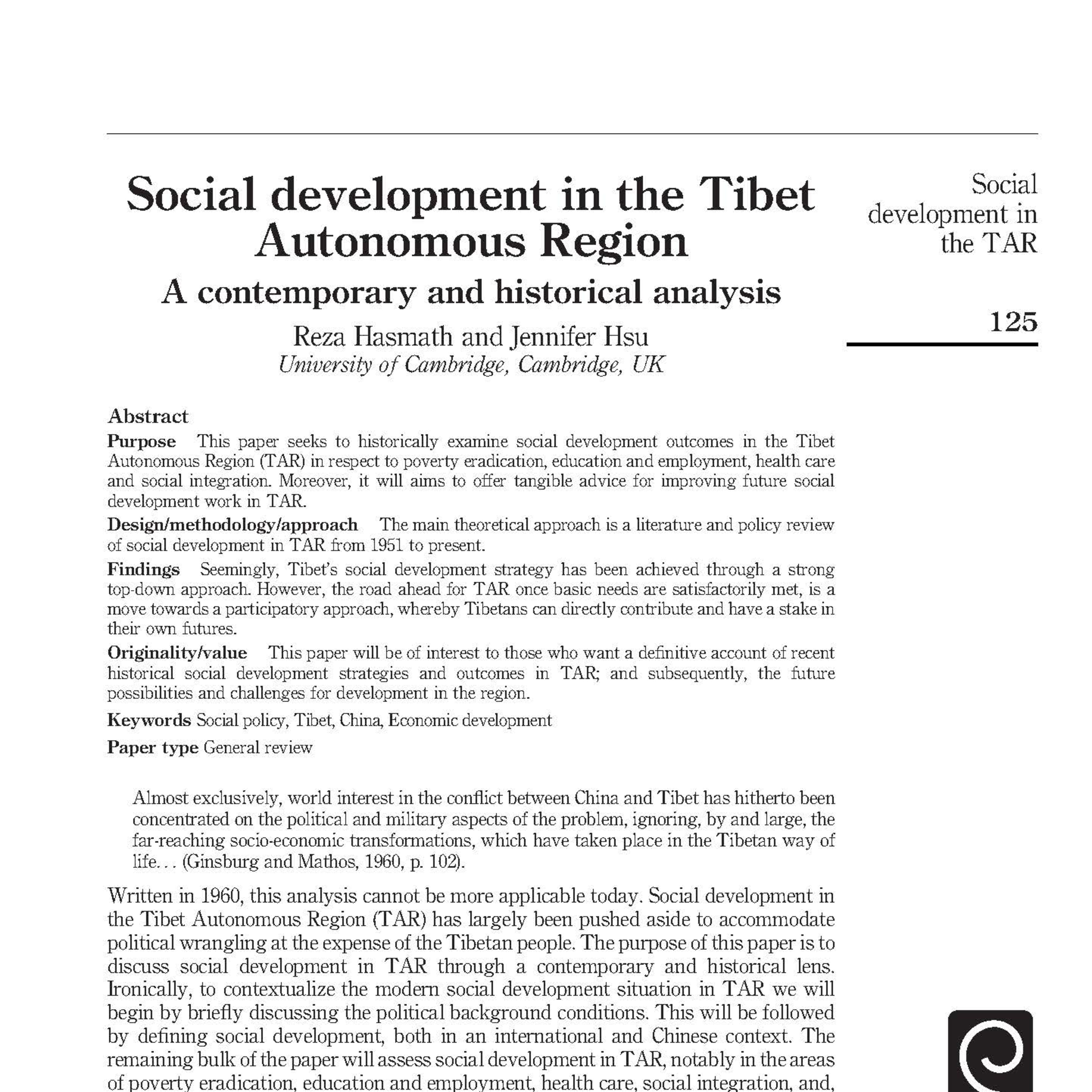
Reza HasmathSocial Development in the Tibet Autonomous Region: A Contemporary and Historical AnalysisContents:
1. Introduction
2. Political Background Conditions
3. The Many Definitions of Social Development
4. Tibetan Social Development
5. Future Considerations
6. Conclusion
Abstract:
This paper will historically examine social development outcomes in the Tibet Autonomous Region (TAR) in respect to poverty eradication, education and employment, health care and social integration. Moreover, it will offer tangible advice for improving future social development work in TAR. The main theoretical approach is a literature and policy review of social development in TAR from 1951 to present. Seemingly Tibet’s social development strategy has b...
2021-08-251h 02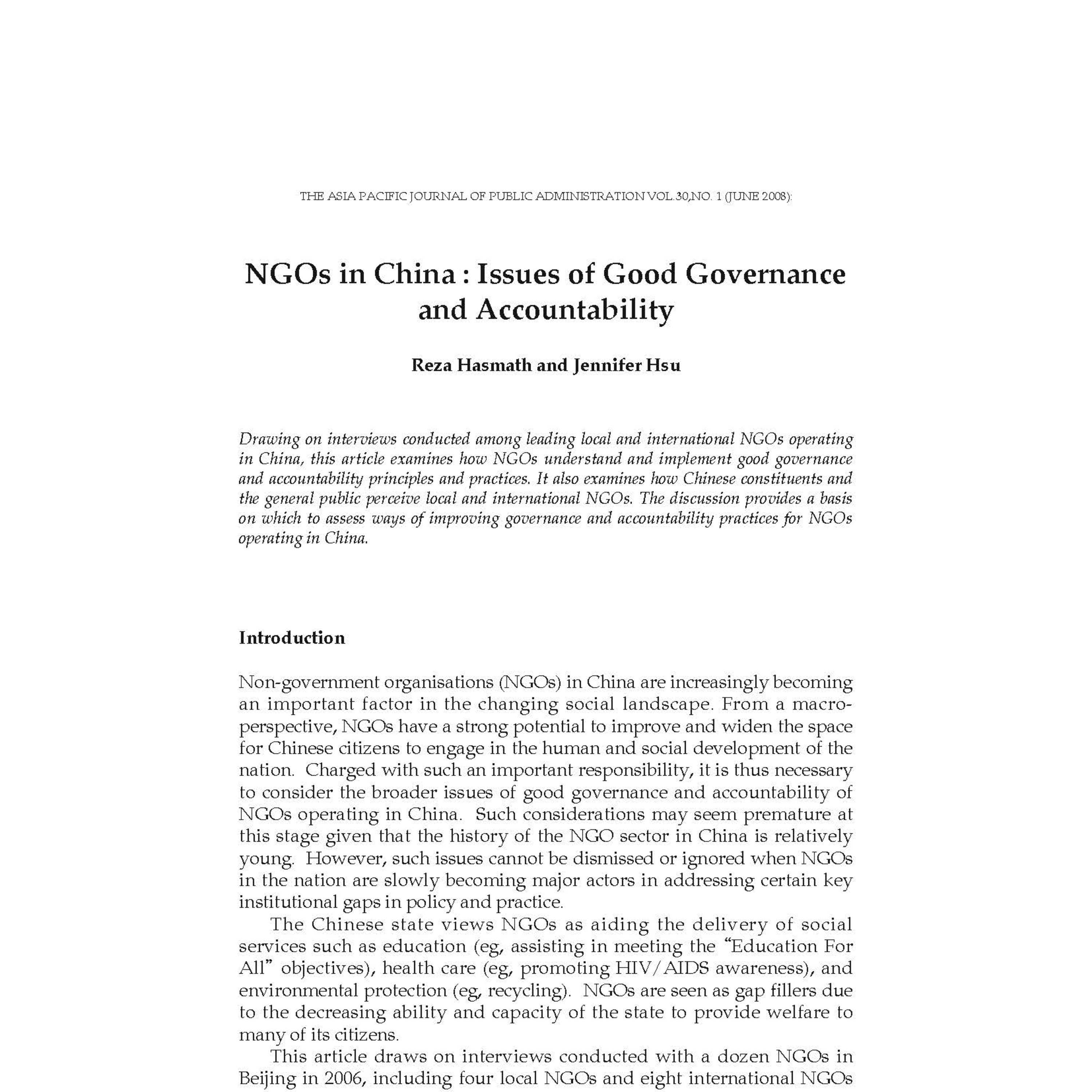
Reza HasmathNGOs in China: Issues of Good Governance and AccountabilityContents:
1. Introduction
2. NGOs’ Perceptions of Constituents
3. The Role of the General Public
4. Mechanisms Employed to Ensure Good Governance
5. Conclusion
Abstract:
Drawing on interviews conducted among leading local and international NGOs operating in China, this article considers how NGOs understand and implement good governance and accountability principles and practices. It also examines how Chinese constituents and the general public perceive local and international NGOs. The discussion provides a basis on which to assess ways of improving accountability practices for NGOs operating in China.
Citation:
2021-08-2528 min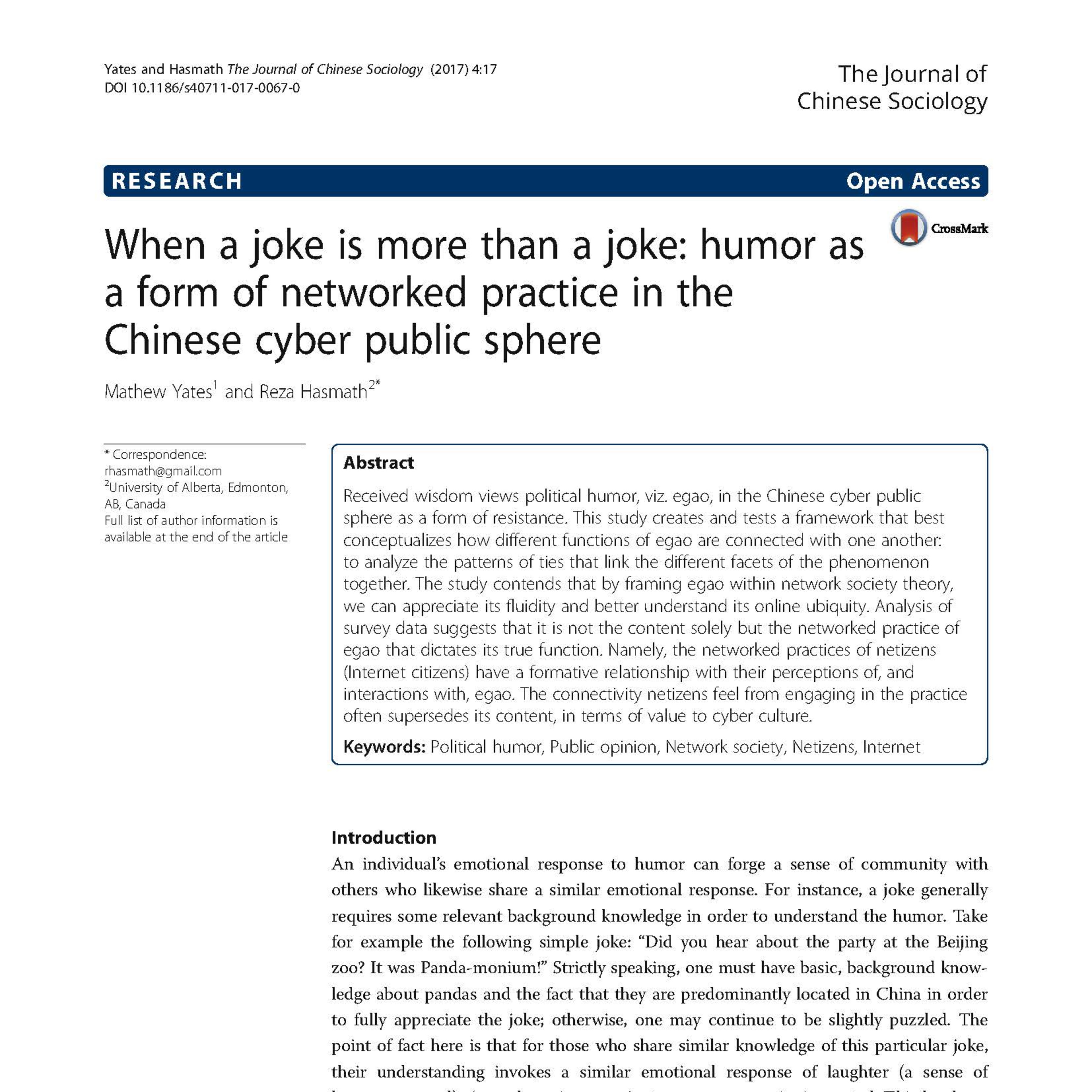
Reza HasmathWhen a Joke is More than a Joke: Humor as a Form of Networked Practice in the Chinese Cyber Public SphereContents:
1. Introduction
2. Theoretical Framework
3. Methodology
4. Findings and Discussion
5. Conclusion
Abstract:
Received wisdom views political humor, viz. egao, in the Chinese cyber public sphere as a form of resistance. This study creates and tests a framework that best conceptualizes how different functions of egao are connected with one another: to analyze the patterns of ties that link the different facets of the phenomenon together. The study contends that by framing egao within network society theory, we can appreciate its fluidity and better understand its online ubiquity. Anal...
2021-08-2440 min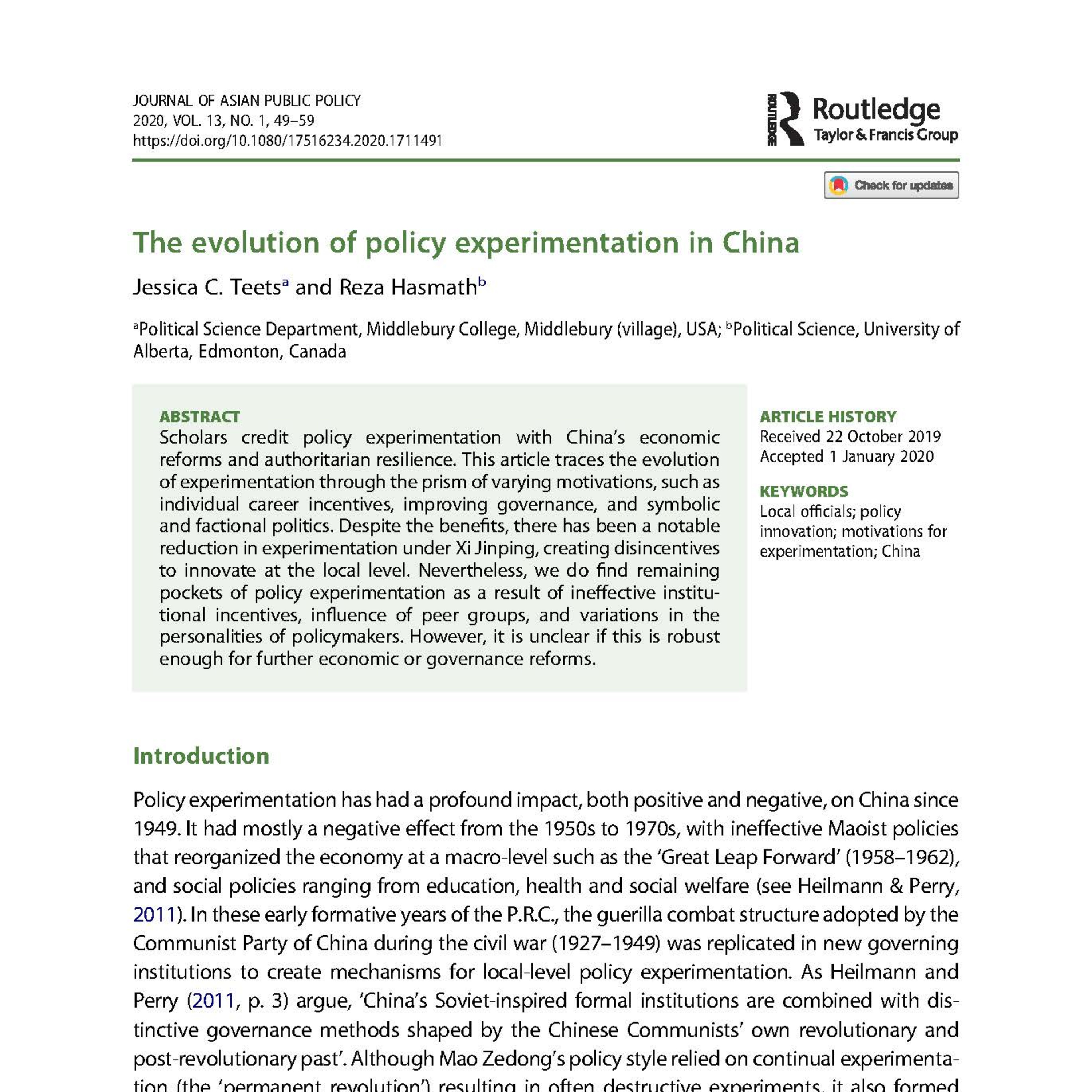
Reza HasmathThe Evolution of Policy Experimentation in ChinaContents:
1. Introduction
2. Explaining the Motivations for Policy Experimentation
3. Motivations for Policy Experimentation under Xi Jinping
4. Conclusion
Abstract:
Most scholars credit policy experimentation with China’s successful economic reforms and continued authoritarian resilience. This article contributes to this policy experimentation literature by providing a systematic overview of the motivations incentivizing Chinese policy entrepreneurs to experiment at local levels. This article traces the evolution of policy experimentation in China through the prism of understanding the varying motivations for experimentation, such as individual career incentives, improving good governance, and symbolic and fa...
2021-07-0834 min
Reza HasmathRethinking Global Civil Society in an Era of a Rising ChinaContents:
1. Introduction
2. Theoretical Framework
3. The Contemporary Behaviour of Chinese Social Organizations
4. Discussion
5. Conclusion
Abstract:
The concept of global civil society arose out of a language, culture and definition influenced by mainstream Western political philosophy and discourse, and the behaviour of Western NGOs that proliferated in the latter part of the 20th century. The recent rise of Chinese social organizations internationally – who were born, developed and prospered in a domestic authoritarian institutional environment with varying values and norms than their Western counterparts – suggests a rethink of how...
2021-06-291h 03
Reza HasmathA Maturing Civil Society in China? The Role of Knowledge and Professionalization in the Development of NGOsContents:
1. Introduction
2. Framework
3. Methodology and Sample
4. Results
5. Discussion
6. Conclusion
Abstract:
This article suggests that Chinese NGO do not have the conviction that they are part of an epistemic community in mainland China. Interviews conducted in four cities, Chongqing, Kunming, Nanjing and Shanghai, suggests that this can be attributed to a lack of set standards and professionalization governing their sector of operation. Further, the study finds that Chinese NGOs do not see their primary role is to produce knowledge within their organizational development life...
2021-06-1447 min
Reza HasmathNGO Strategies in an Authoritarian Context, and their Implications for Citizenship: The Case of the People’s Republic of ChinaContents:
1. Introduction
2. Social Organizations and Organizational Fields
3. National Level Constraints: Political Authoritarianism and Cultural Unfamiliarity
4. Local Constraints
5. Methodology and Sample
6. Results: Regional Variations in Resource Strategies
7. Discussion: Resource Strategies and Citizenship
8. Conclusion
Abstract:
This study argues that different cities in China have different resource environments available for NGOs. Organizations react to these resource environments by constructing appropriate resource strategies, which in turn shape the characteristics and structures of the NGOs of that city. It further examines how these characteristics...
2021-06-141h 02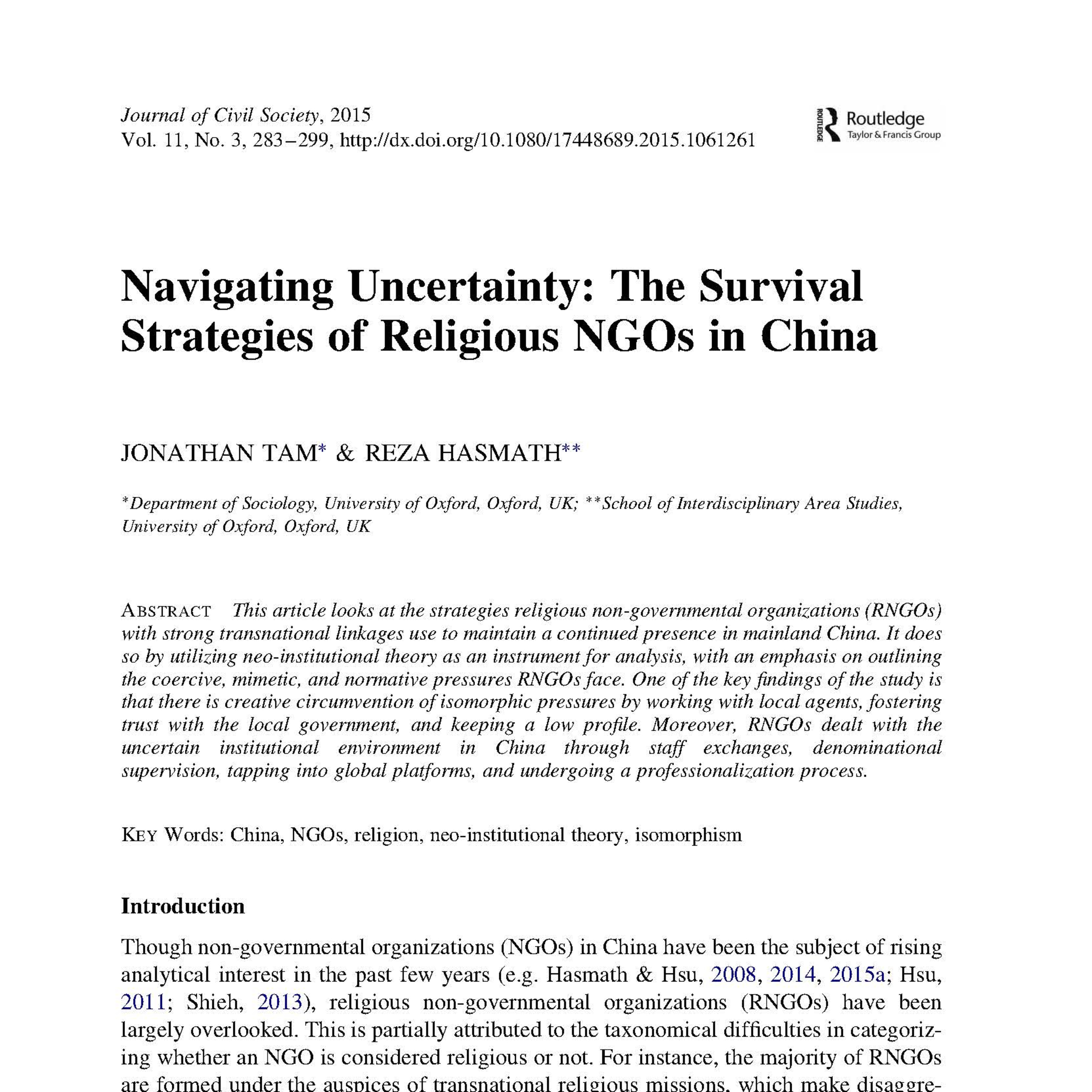
Reza HasmathNavigating Uncertainty: The Survival Strategies of Religious NGOs in ChinaContents:
1. Introduction
2. RNGOs as an Organizational Field
3. Neo-Institutional Theory
4. Methodology and Sample
5. Findings and Discussion
6. Conclusion
Abstract:
This article looks at the strategies religious non-governmental organizations (RNGOs) with strong transnational linkages use to maintain a continued presence in mainland China. It does so by utilizing neo-institutional theory as an instrument for analysis, with an emphasis on outlining the coercive, mimetic and normative pressures RNGOs face. One of the key findings of the study is that there is creative circumvention of isomorphic pressures by...
2021-06-1348 min
Reza HasmathA Community of Practice for Chinese NGOsContents:
1. Introduction
2. Theoretical Background
3. Methodology and Sample
4. Findings
5. Discussion
6. Conclusion
Abstract:
A community of practice represents an important resource for the sharing of sector-specific knowledge. It is a mechanism for Chinese NGOs to learn from each other, and collaborate. Drawing upon original data elicited from over 100 NGOs, this article examines the organizational capacity for Chinese NGOs to cultivate a mature community of practice. We find that there are inherent headwinds that Chinese NGOs will have to navigate to accomplish this goal. On the...
2021-06-1243 min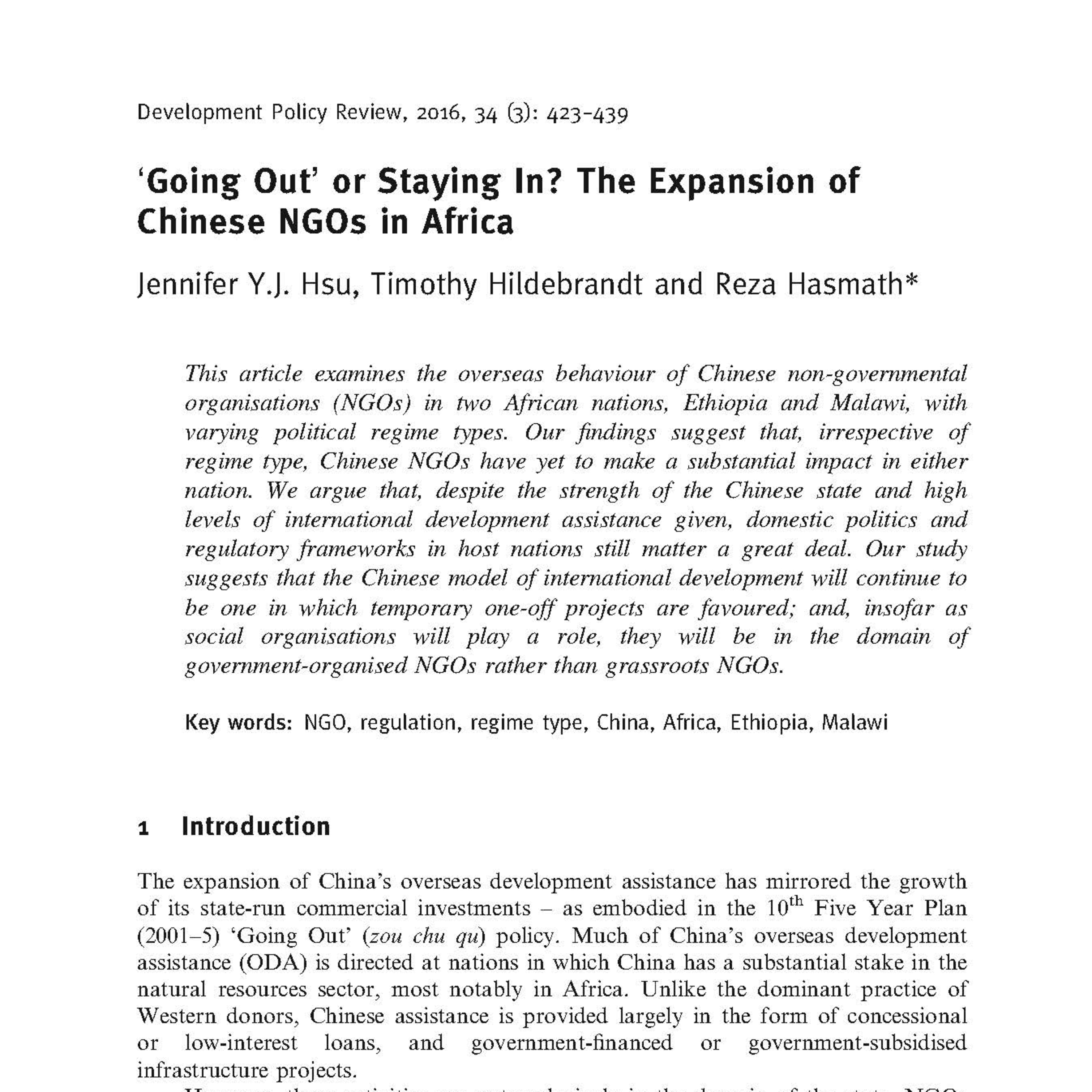
Reza Hasmath‘Going Out’ or Staying In? The Expansion of Chinese NGOs in AfricaContents:
1. Introduction
2. Case Study Selection and Methodology
3. The Role of Chinese NGOs in Development
4. The Case of Ethiopia
5. The Case of Malawi
6. The Potential Role and Behaviour of Chinese GONGOs
7. Implications and Conclusion
Abstract:
This article examines the overseas behaviour of Chinese non-governmental organisations (NGOs) in two African nations, Ethiopia and Malawi, with varying political regime types. Our findings suggest that, irrespective of regime type, Chinese NGOs have yet to make a substantial impact in either nation. We argue that, despite t...
2021-05-2954 min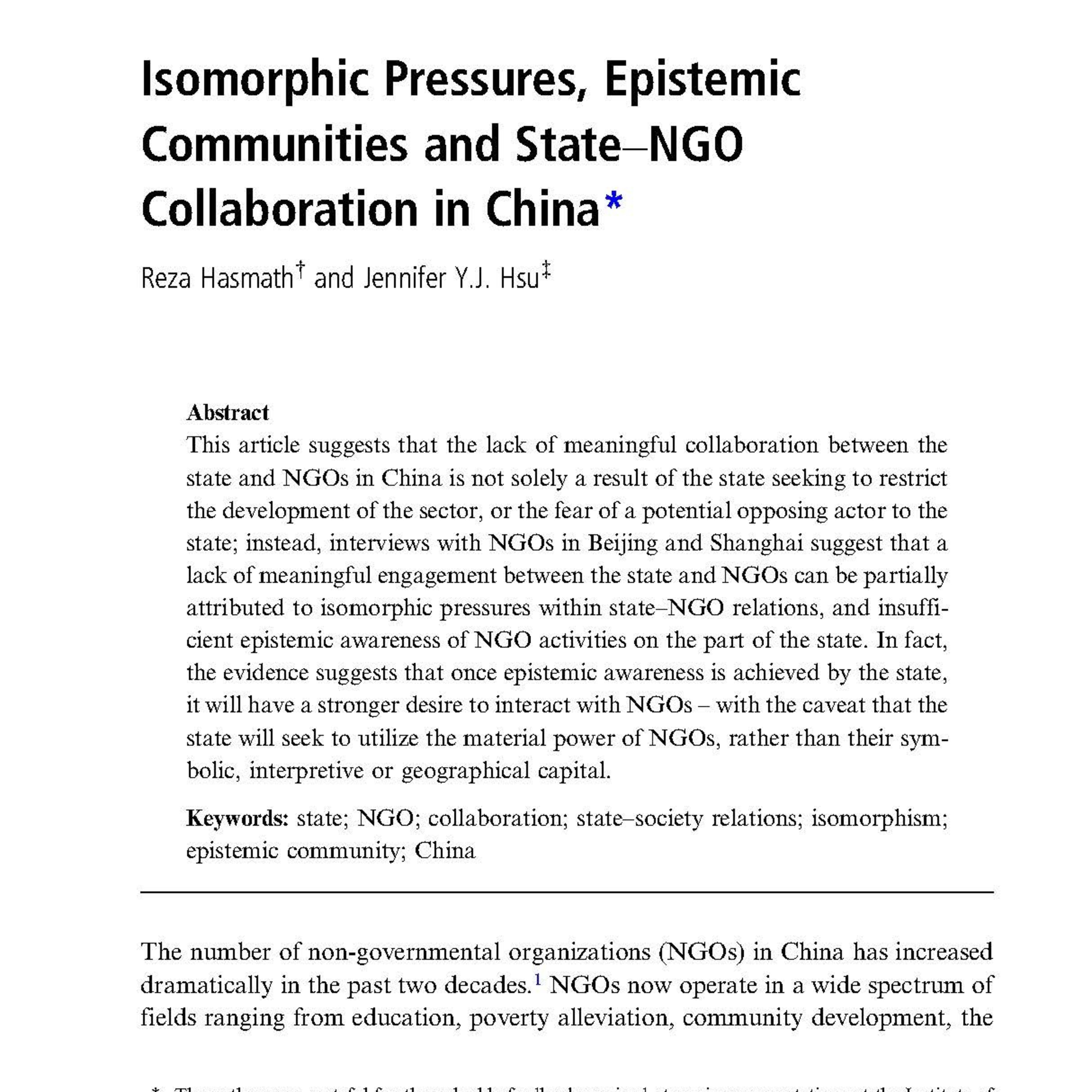
Reza HasmathIsomorphic Pressures, Epistemic Communities and State-NGO InteractionsContents:
1. Introduction
2. Methodology and Sample
3. Neo-Institutional Theory and Isomorphic Pressures
4. The Institutional Environment and Collaborative Measures
5. The Epistemic Awareness of NGOs by the Local State
6. The Growing Epistemic Capacity of NGOs
7. Final Words
Abstract:
This article suggests that a lack of meaningful collaboration between the state and NGOs in China is not solely a result of the state seeking to restrict the development of the sector, or fear of a potential opposing actor to the state. Instead, interviews with NGOs in...
2021-05-2450 min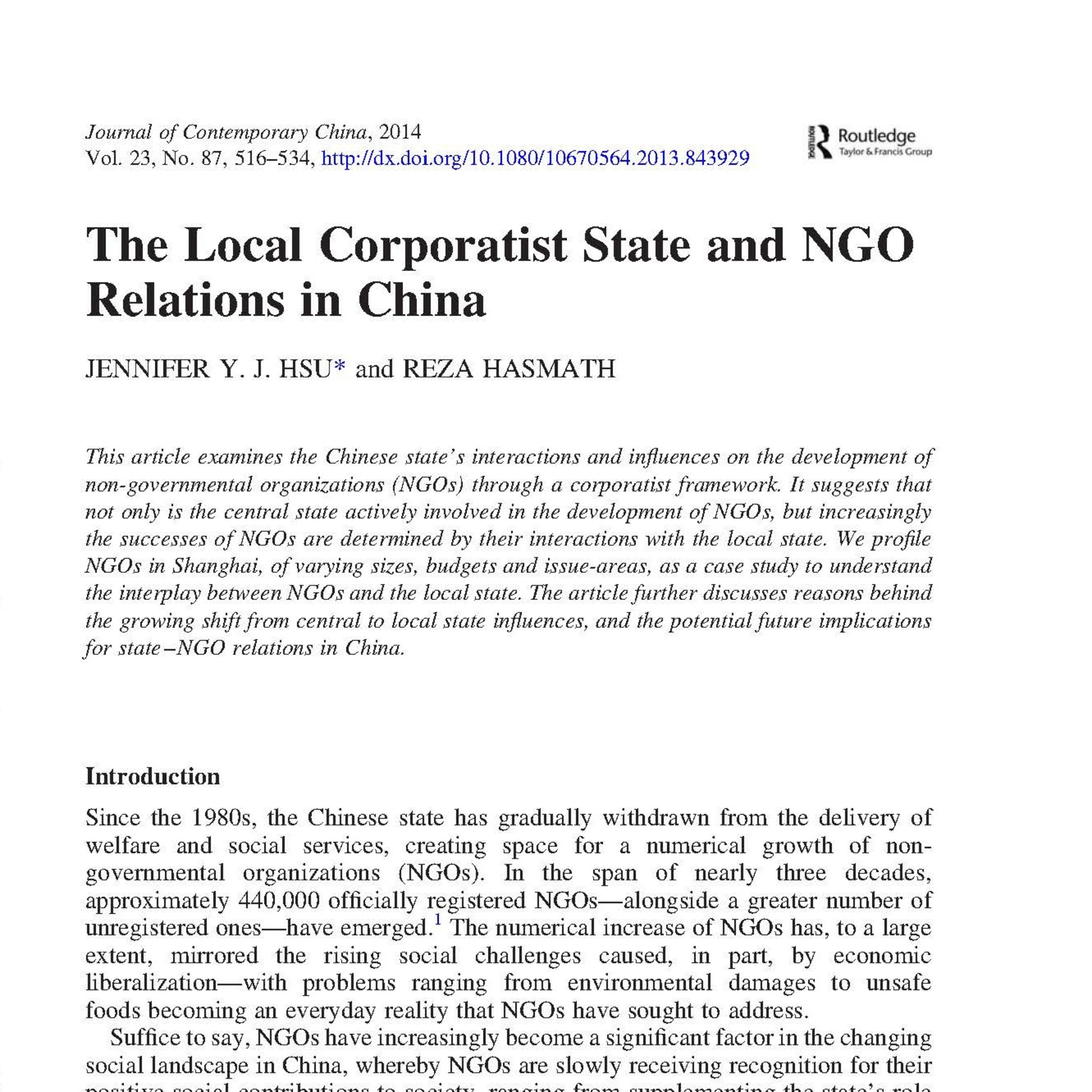
Reza HasmathThe Local Corporatist State and NGO Relations in ChinaContents:
1. Introduction
2. The Local Corporatist State
3. Developing the Chinese NGO Sector
4. Profile of NGOs Interviewed in Shanghai
5. Local State-NGO Interactions in Shanghai
6. Conclusion
Abstract:
This article examines the Chinese state’s interactions and influences on the development of non-governmental organizations (NGOs) through a corporatist framework. It suggests that not only is the central state actively involved in the development of NGOs, but increasingly the successes of NGOs are determined by their interactions with the local state. We profile NGOs in Shanghai, of varying si...
2021-05-241h 07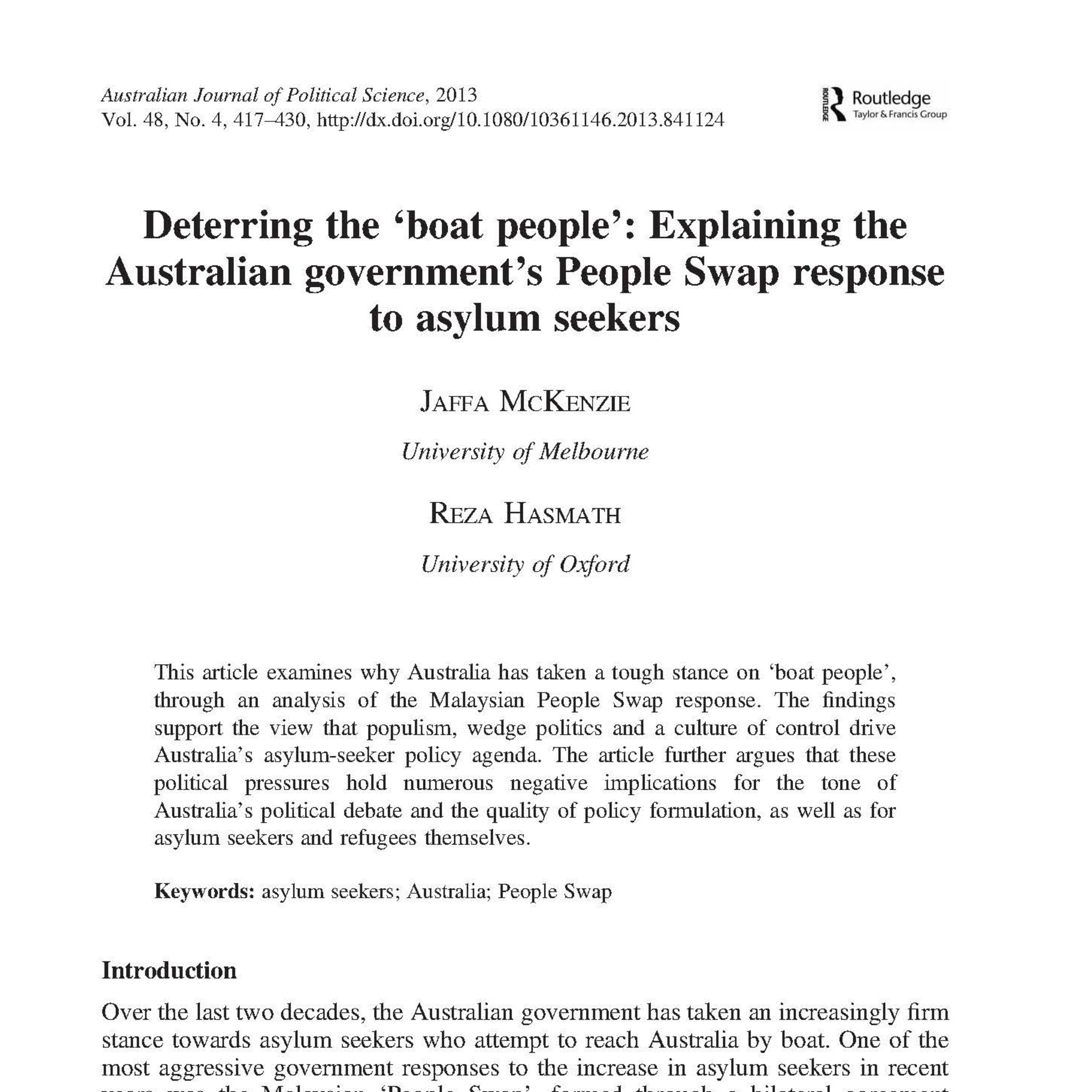
Reza HasmathDeterring the ‘Boat People’: Explaining the Australian Government's People Swap Response to Asylum SeekersContents:
1. Introduction
2. Populist Appeal
3. Wedge Politics
4. A Culture of Control
5. Discussion and Conclusion
Abstract:
This article examines why Australia has taken a tough stance on ‘boat people’, through an analysis of the Malaysian People Swap response. The findings support the view that Australia’s asylum seeker policy agenda is driven by populism, wedge politics and a culture of control. The article further argues that these political pressures, in sum, hold numerous negative implications for the tone of Australia’s political debate, the quality of policy formulatio...
2021-05-2446 min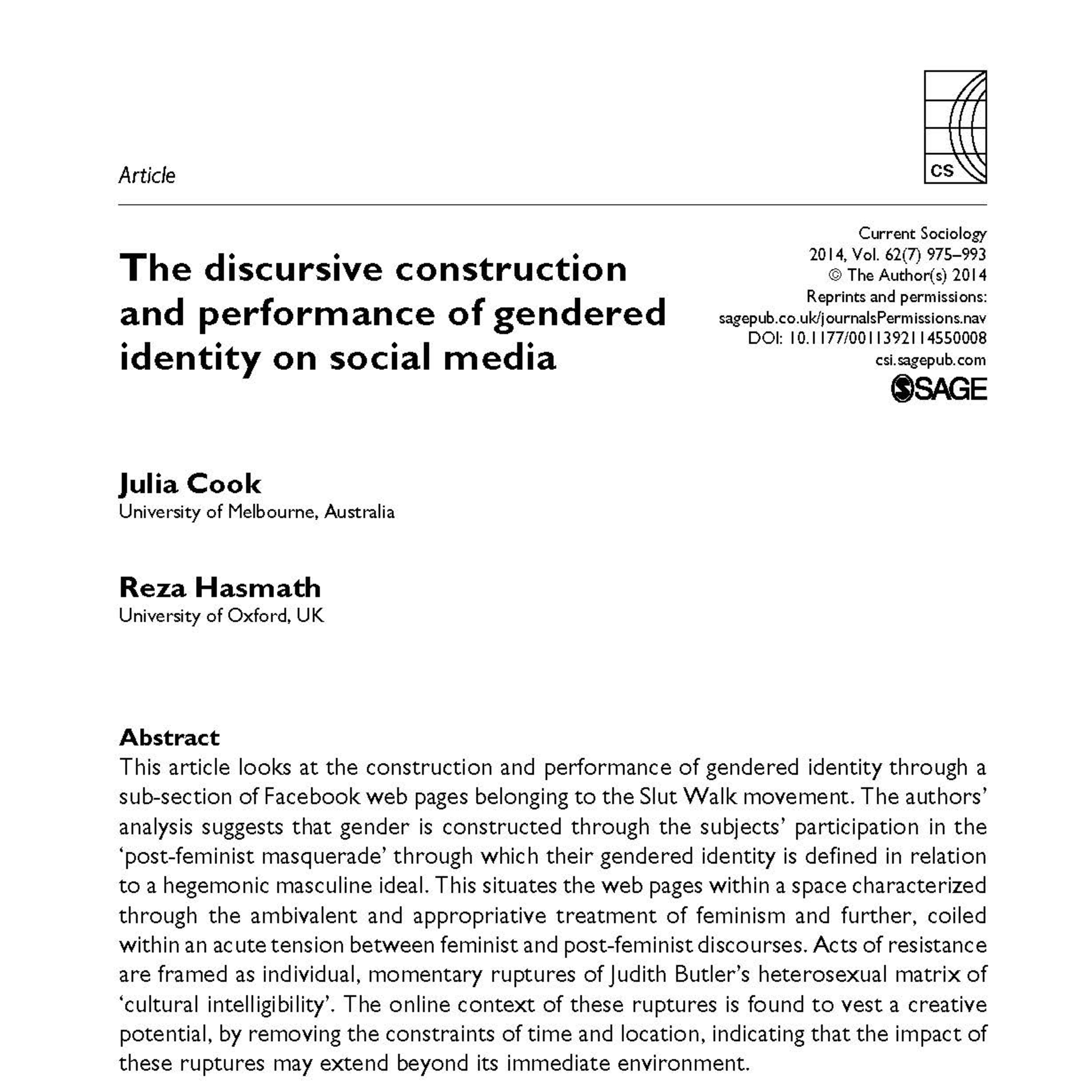
Reza HasmathThe Discursive Construction and Performance of Gendered Identity on Social MediaContents:
1. Introduction
2. Theoretical Framework
3. Methodology
4. Findings and Discussion
5. Conclusion
Abstract:
This article looks at the construction and performance of gendered identity through a sub-section of Facebook web pages belonging to the Slut Walk movement. Our analysis suggests that gender is constructed through the subjects’ participation in the ‘post-feminist masquerade’ through which their gendered identity is defined in relation to a hegemonic masculine ideal. This situates the web pages within a space characterized through the ambivalent and appropriative treatment of feminism and further, coiled within an acute t...
2021-05-2457 min
Reza HasmathWhite Cat, Black Cat or Good Cat? The Beijing Consensus as an Alternative Philosophy for Policy DeliberationContents:
1. Introduction
2. The Original Conception
3. Conflation with the China Model of Development
4. Future Direction and Implications for China
Abstract:
The Beijing Consensus represents a philosophical movement towards an ultra-pragmatic view of conducting policy deliberation. Contrary to models of development which provide a subset of policy prescriptions for the policymakers’ disposal or a fundamentalist adherence to a particular economic tradition, the Beijing Consensus inherently recognises that each development scenario has a potential set of challenges that may require unique and/or experimental solutions factoring the current political, economic an...
2021-05-1033 min
Reza HasmathThe Impact of the European Union’s Policy Towards China’s Intellectual Property RegimeContents:
1. Introduction
2. Context
3. One China, But Varying Regional Disparities
4. Current State of Intellectual Property Enforcement in China
5. Impact of EU Technical Assistance
6. Conclusion
Abstract:
This article evaluates the effectiveness of two major European Union technical assistance programmes, IPR2 and IP Key, in shaping China’s regional intellectual property (IP) enforcement. It argues that although technical assistance programmes have been effective in influencing the national IP legal framework, it has been less successful in assisting regional policy enforcement. This is primarily the result of di...
2021-05-1052 min
Reza HasmathWhat Explains the Rise of Majority-Minority Tensions and Conflict in Xinjiang?Contents:
1. Introduction
2. State Ethnic Management and Rising Ethno-Cultural Consciousness
3. Migration and Settlement Patterns
4. The Division of Labour
5. Marketization and the Rise of Ethno-Cultural Consciousness
6. Discussion and Conclusion
Abstract:
In the past few years there has been a rise of inter-ethnic violence in China. While ethno-cultural repression and ineffective state policies are correctly attributed as key culprits behind this reality, this article suggests that socio-economic factors play a fundamental contributory role as well. Using the Xinjiang case, the article maps ethnic tensions and violence...
2021-04-0542 min
Reza HasmathManaging Modern Government - 16 - Lecture Sixteen - Future ProspectsContents:
1. The Future of Working in Government
2. The Facts
3. Variables for Consideration
4. Potential Scenarios
5. Trends
6. The Transformation of Work
For more information on the lecture series, click here.
2021-03-2413 min
Reza HasmathManaging Modern Government - 15 - Lecture Fifteen - The Gender PerspectiveContents:
1. Increasing Female Participation
2. Horizontal Gender Segregation
3. Vertical Gender Segregation
4. The Gender Penalty
5. Women and the Public Sector
6. Interactional Process
7. Wages and Reward Expectations
8. Job Satisfaction: An Alternative Perspective
For more information on the lecture series, click here.
2021-03-2423 min
Reza HasmathSaying Sorry: How States Can Effectively ApologizeThis talk looks at how states can effectively apologize and have a long-lasting positive effect on the aggrieved party. See the accompanying paper here.
2021-03-2224 min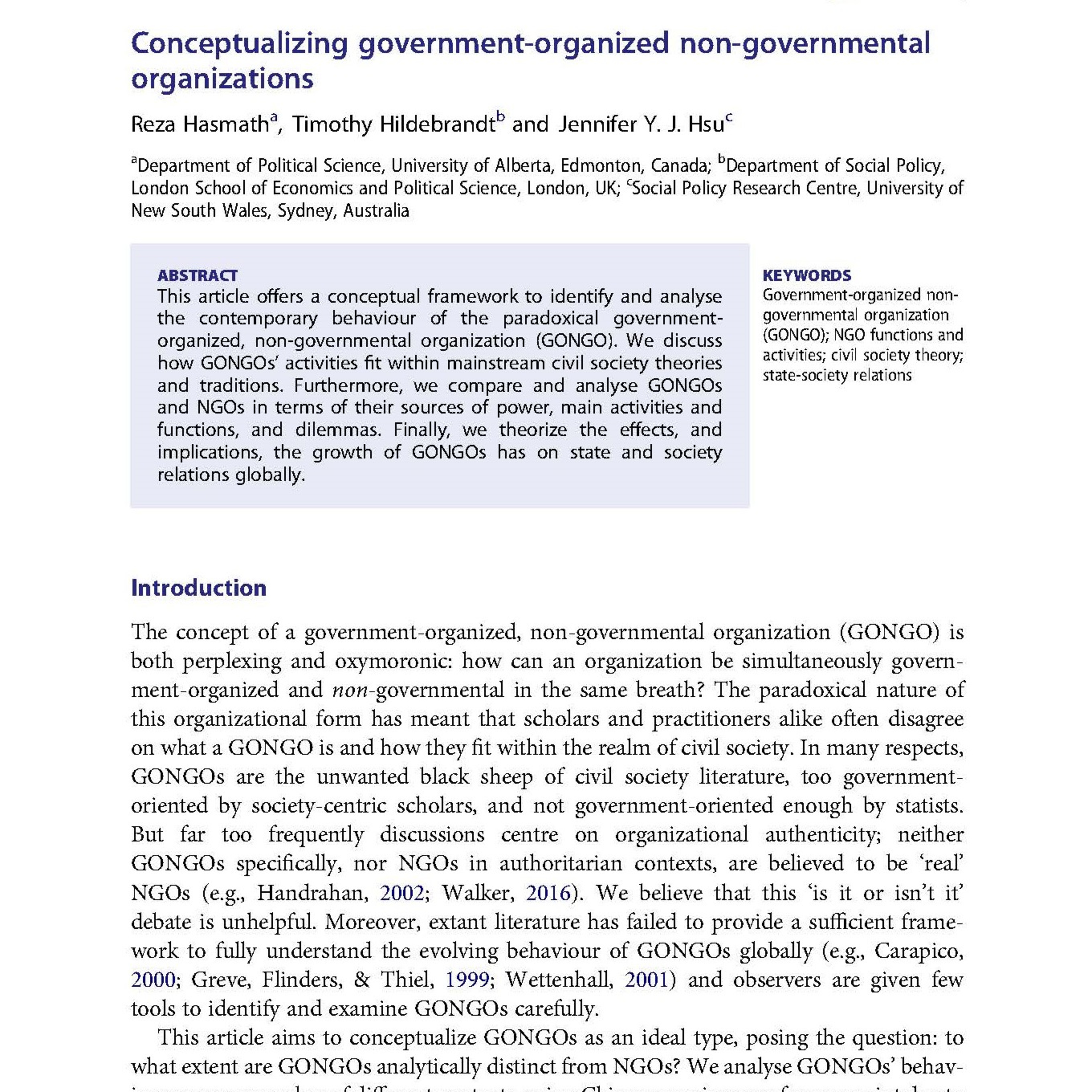
Reza HasmathConceptualizing Government Organized Non-Governmental OrganizationsContents:
1. Introduction
2. A Working Definition of a GONGO
3. How do GONGOs Fit into the Civil Society Framework?
4. GONGOs versus NGOs
5. Effects on State and Society Relations
6. Conclusion
Abstract:
This article offers a conceptual framework to identify and analyze the contemporary behavior of the paradoxical government-organized, non-governmental organization (GONGO). We discuss how GONGOs’ activities fit within mainstream civil society theories and traditions. Furthermore, we compare and analyze GONGOs and NGOs in terms of their sources of power, main activities and functions, and dilemmas. Finally, we theoriz...
2021-03-1657 min
Reza HasmathManaging Modern Government - 14 - Lecture Fourteen - The Ethnic MinorityContents:
1. Educational Attainment in Toronto
2. The Labour Market
3. Occupational Outcomes in Toronto
4. Explaining the Penalty: Discrimination?
5. Explaining the Penalty: Social Network
6. Explaining the Penalty: Working Culture
7. Explaining the Penalty: Social Trust
8. Alleviating the Penalty
For more information on the lecture series, click here.
2021-03-1323 min
Reza HasmathManaging Modern Government - 13 - Lecture Thirteen - The ProfessionalContents:
1. What is a Professional?
2. Development of the Professional
3. Professional Projects
4. Transformation of Professional Work
5. Increasing Diversity of Professional Work Settings
6. Control Structures
7. The Future: Diversification of Interests?
For more information on the lecture series, click here.
2021-03-1322 min
Reza HasmathManaging Modern Government - 12 - Lecture Twelve - The Innovative PolicymakerContents:
1. The Incentives for Innovation
2. Innovation Under Recentralization
3. Ineffective Vertical Incentives
4. Differing Base Preferences
5. Communities of Practice
6. Implications
For more information on the lecture series, click here.
2021-03-1313 min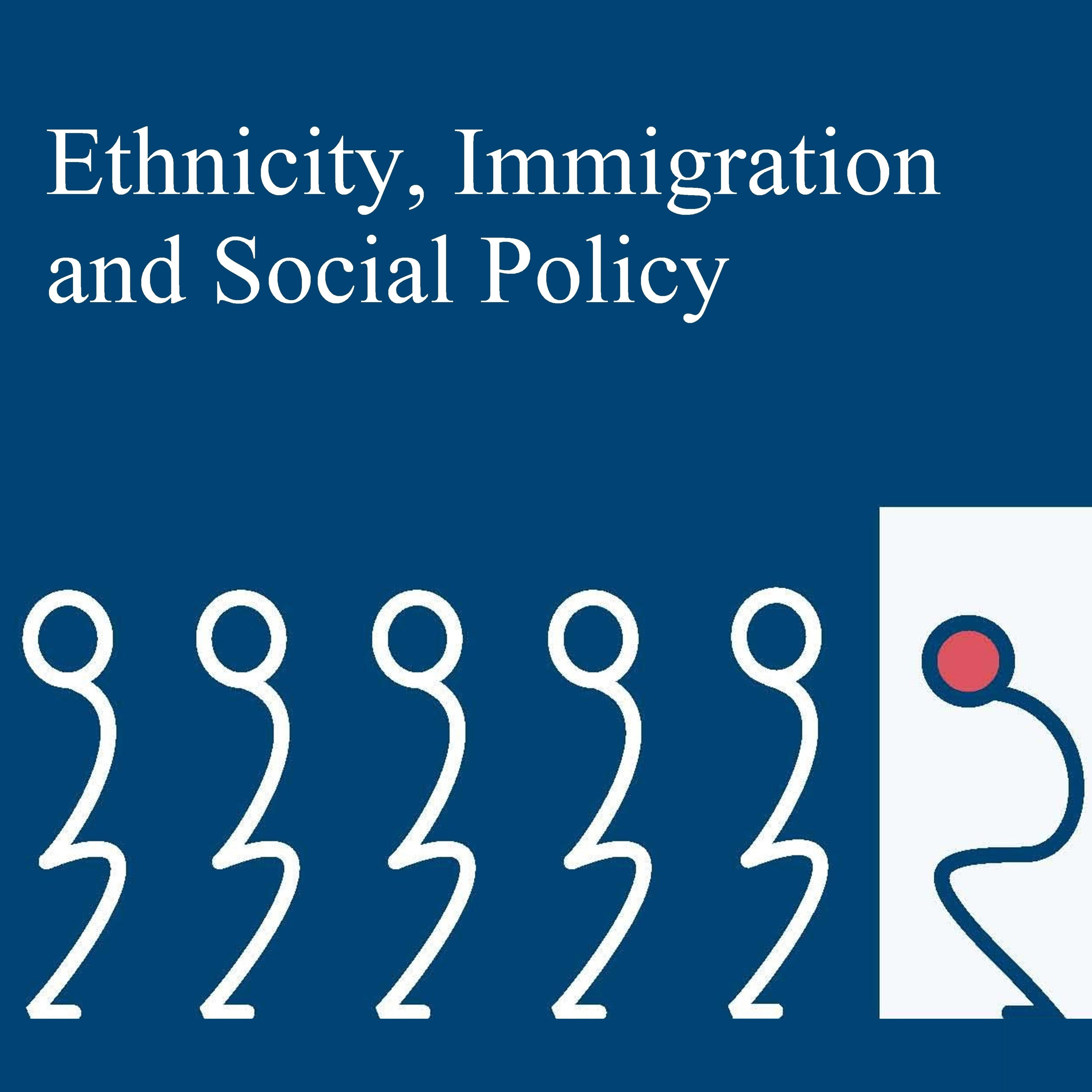
Reza HasmathEthnicity, Immigration and Social Policy - 11 - Lecture Eleven - Future ProspectsContents:
1. Rethinking the Social Justice Argument
2. The Next Generation Argument
3. Steps for Improvement
For more information on the lecture series, click here.
2021-02-2110 min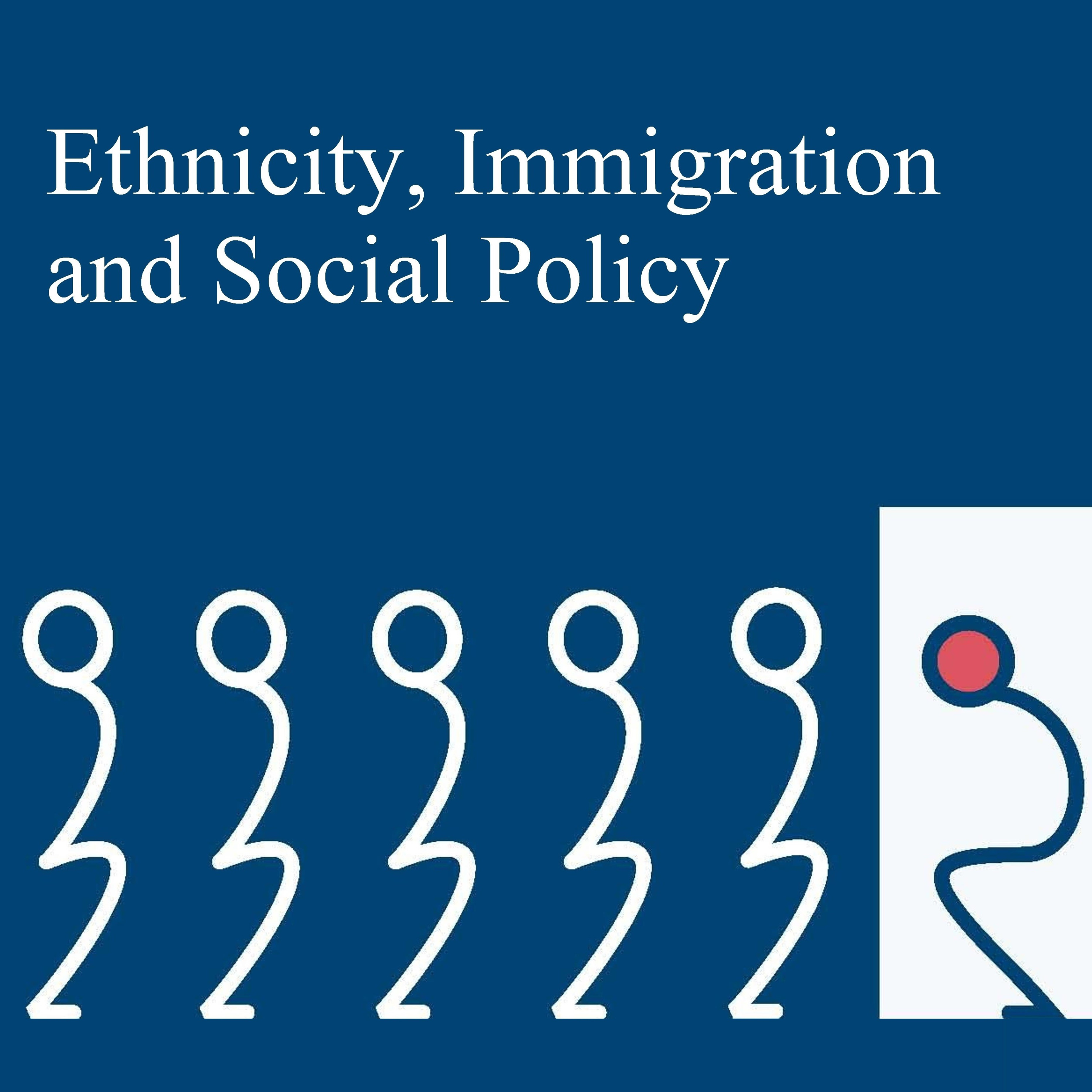
Reza HasmathEthnicity, Immigration and Social Policy - 10 - Lecture Ten - Inter-Ethnic CooperationContents:
1. When Can Ethnic Groups Cooperate?
2. Ethnic Diversity
3. Ethnicity and Social Capital
For more information on the lecture series, click here.
2021-02-2118 min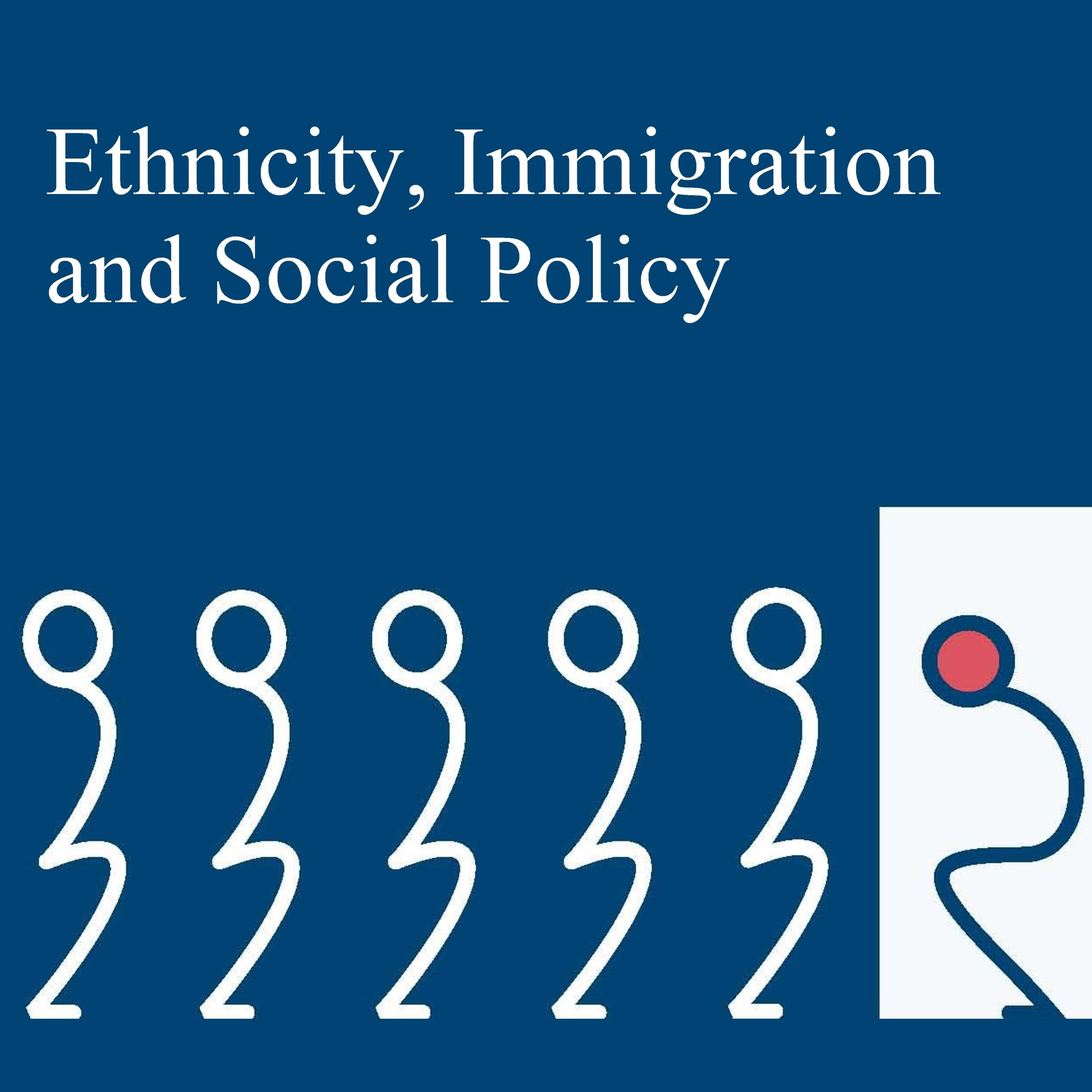
Reza HasmathEthnicity, Immigration and Social Policy - 9 - Lecture Nine - Socio-Economic PerformancesContents:
1. Income and Ethnic Participation by Occupational Sectors
2. Labour Market Participation and Unemployment
3. Ethnic Penalties in the Labour Market
4. Discrimination
5. Social Networks
6. Working Culture
7. Confidence
8. Social Trust
For more information on the lecture series, click here.
2021-02-2128 min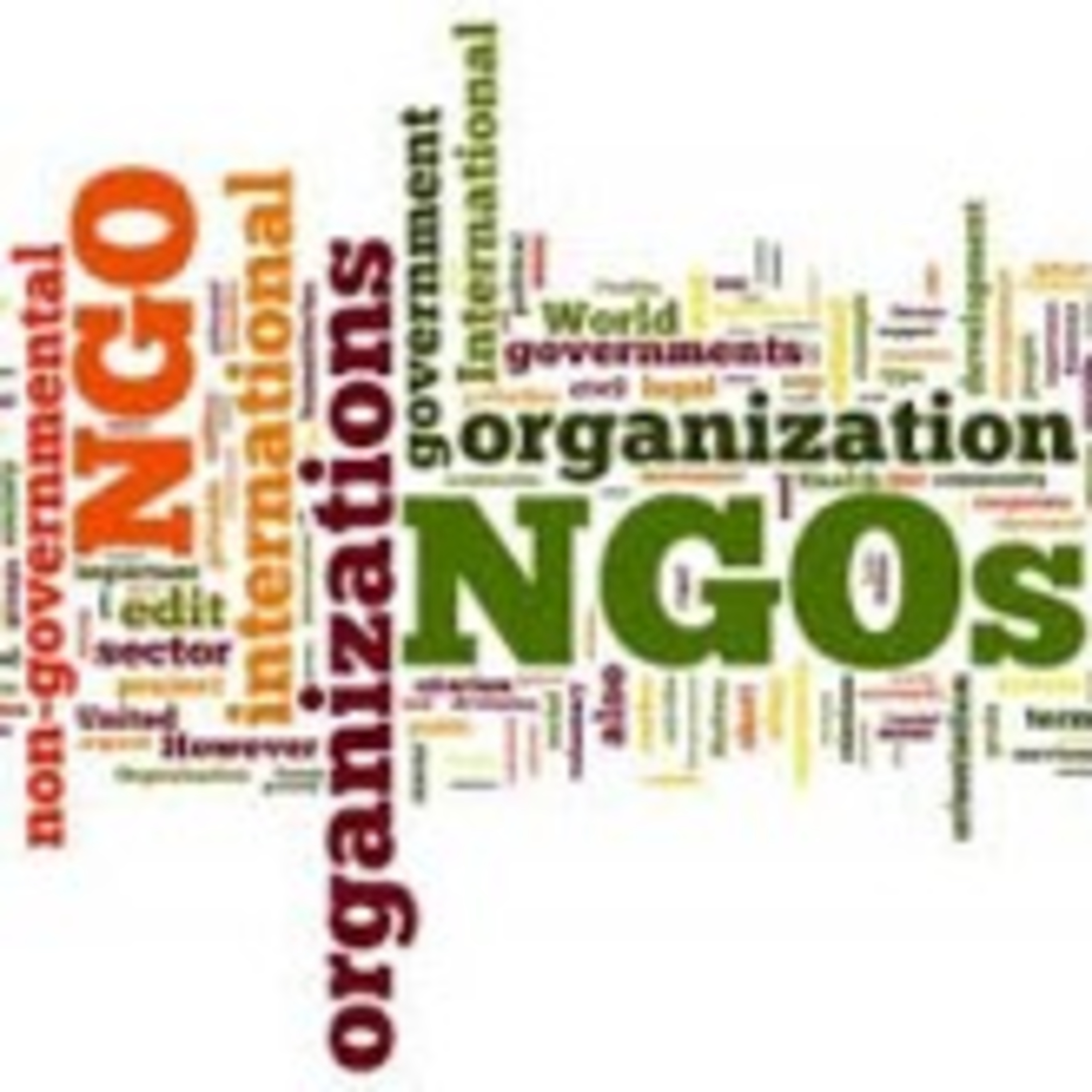
Reza HasmathNGO Governance and Management - 10 - Lecture Ten - The EnvironmentContents:
1. Green Alliances
2. Strategic Bridging
3. Case Study: Greenpeace and Foron Alliance
For more information on the lecture series, click here.
2021-02-1815 min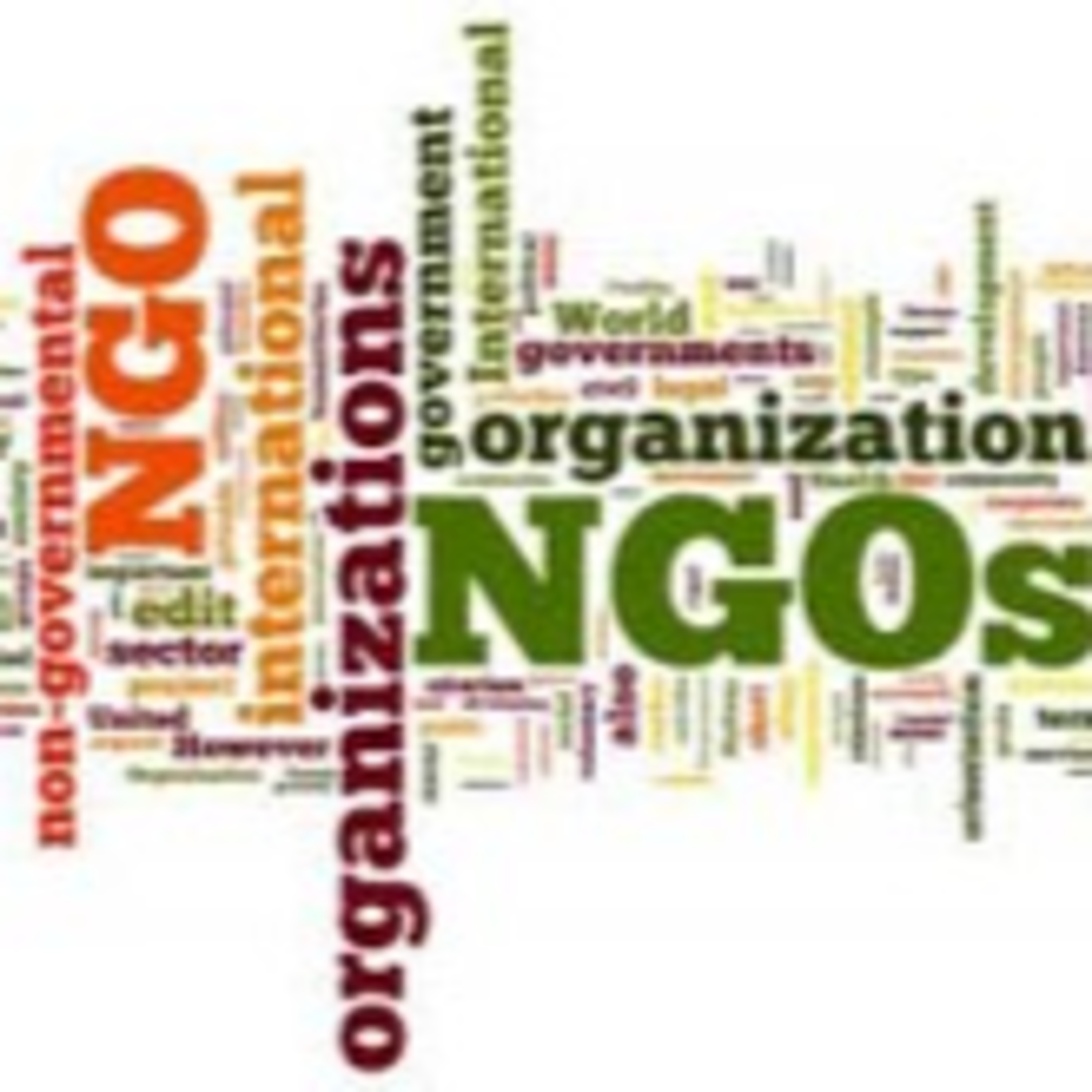
Reza HasmathNGO Governance and Management - 9 - Lecture Nine - HumanitarianismContents:
1. The Evolution of Humanitarian Action
2. The Dunantist-Wilsonian Split
3. Funding
4. NGO-Donor Relationship
5. Advocacy
6. Future Prognosis
For more information on the lecture series, click here.
2021-02-1614 min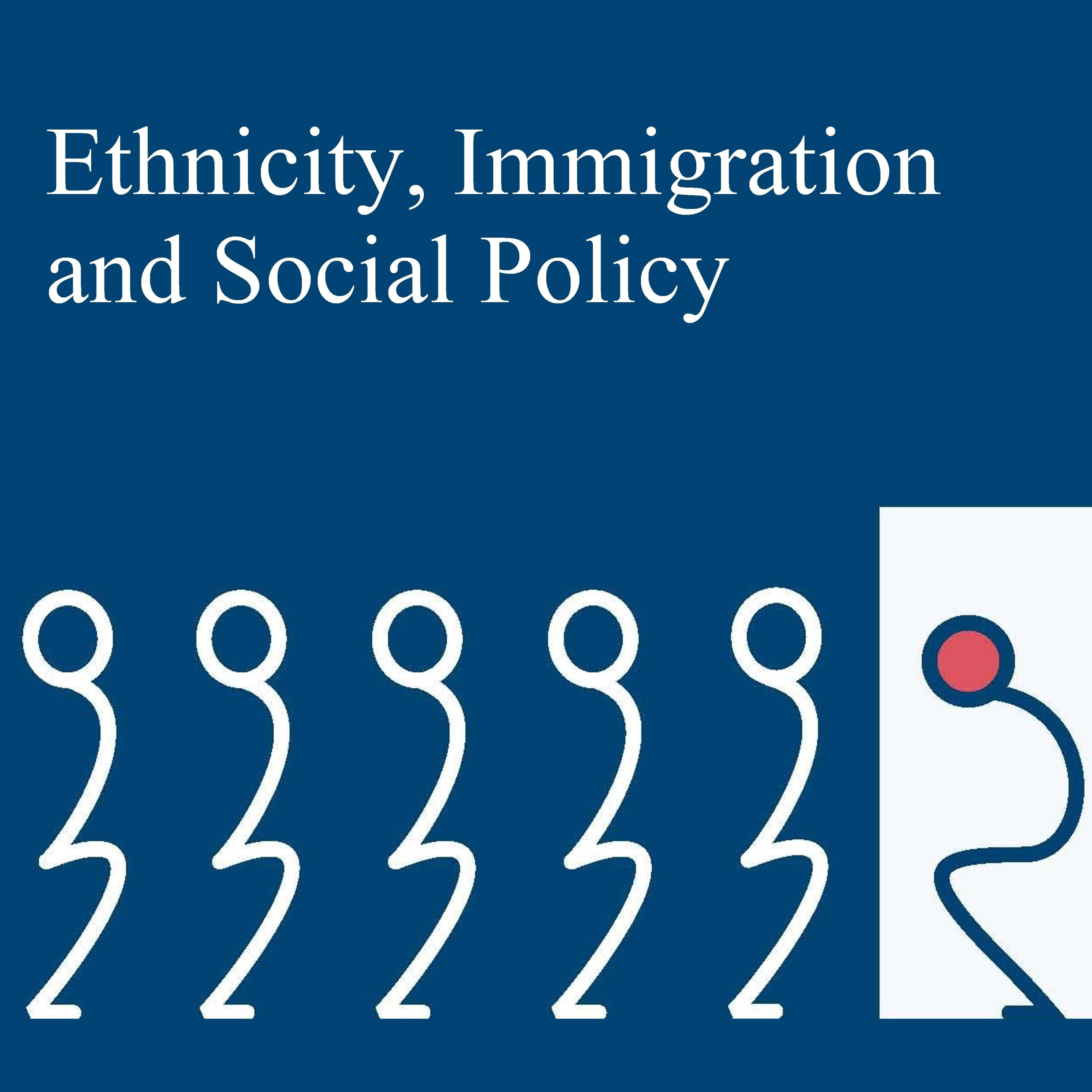
Reza HasmathEthnicity, Immigration and Social Policy - 8- Lecture Eight - Ethnic Settlement and Human CapitalContents:
1. Ethnic Enclave Economy Hypothesis
2. Explanations for Ethnic Enclaves
3. The Toronto Case
4. Distribution of Concentrated Populations in Toronto
5. Residential and Occupational Concentration
6. Immigrant Entrepreneurship
7. Human Capital
8. Education as Human Capital Investment
9. Inter-Generational Transmission of Human Capital
10. On the Ground Human Capital Accumulation Experiences
11. Educational Attainments of Immigrant Groups in Toronto
For more information on the lecture series, click here.
2021-02-1531 min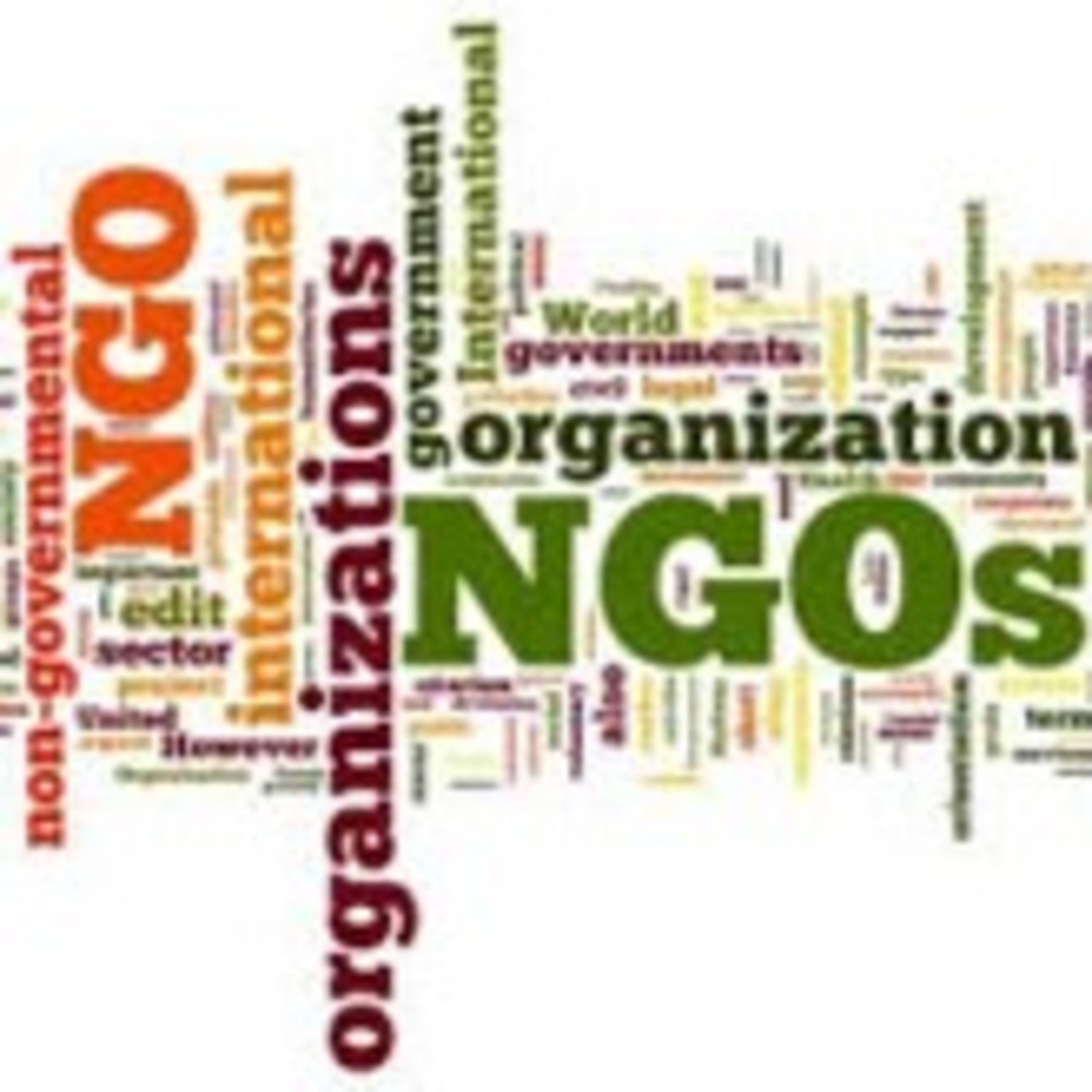
Reza HasmathNGO Governance and Management - 8 - Lecture Eight - Human RightsContents:
1. International Human Rights Issue Network
2. How Have NGOs Fostered Human Rights Regimes?
3. International and Domestic NGOs
4. Foundations and Funders
5. Networks and Governments
For more information on the lecture series, click here.
2021-02-1417 min
Reza HasmathManaging Modern Government - 11 - Lecture Eleven - Government-NGO Relationships IIContents:
1. The Institutional Environment
2. The Epistemic Awareness of NGOs
3. Broader Implications
For more information on the lecture series, click here.
2021-02-1413 min
Reza HasmathNGO Governance and Management - 7 - Lecture Seven - FundraisingContents:
1. Foreign Funding
2. Internal Factors to the Organization
3. External Factors to the Organization
4. Foreign Non-Funding Support
5. Public Support
6. The Private Sector
7. Generating your Own Income
8. Resource Mobilization Issues
9. The Proposal
For more information on the lecture series, click here.
2021-02-1417 min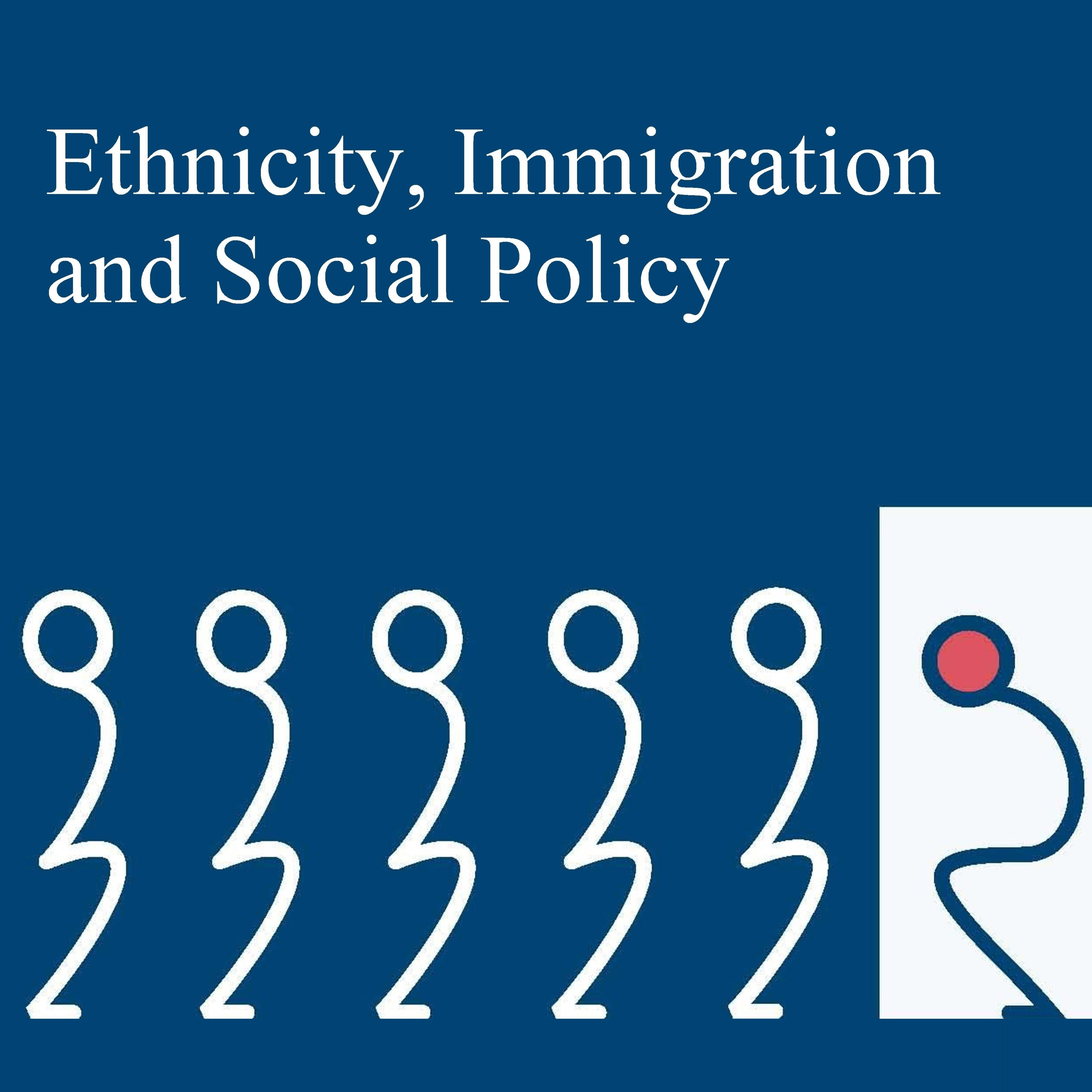
Reza HasmathEthnicity, Immigration and Social Policy - 7 - Lecture Seven - ImmigrationContents:
1. Short History on International Migration
2. Triangular Trade
3. Labour Migration Patterns, 1850-1920
4. Theories of Migration
5. Contemporary International Migration
6. Global Migratory Movements, Post-1973
7. International Migrant Stock
8. Migration and Development
9. The Immigration Debate
10. Australia’s ‘People Swap’ Response
For more information on the lecture series, click here.
2021-02-0125 min
Reza HasmathThe Century of Chinese CorporatismContents:
1. Introduction
2. From State Corporatism to Societal Corporatism?
3. The Local Corporatist State
4. The Lessons of Chinese Corporatism
Abstract:
Since 1949, China has tried a large number of successful and not-so-successful corporatist experiments. What these phases have in common is a ‘state corporatist’ (top-down) approach, albeit with shifting degrees of state involvement; and in the present era, a snail’s pace effort towards building a ‘societal corporatism’ (bottom-up). Over the same time period, we have also witnessed a shift from a centrally controlled corporatist state to one in which the local...
2021-01-2931 min
Reza HasmathManaging Modern Government - 10 - Lecture Ten - Government-NGO Relationships IContents:
1. NGOs Sources of Power
2. NGOs Main Functions
3. NGOs Dilemmas
4. The P.R. China Case
For more information on the lecture series, click here.
2021-01-2508 min
Reza HasmathNGO Governance and Management - 6 - Lecture Six - Advocacy StrategiesContents:
1. NGO Constitution
2. Governance
3. Two Basic Advocacy Strategies
4. Programs and Projects
5. The Project
6. Risks
7. Benefits
For more information on the lecture series, click here.
2021-01-2517 min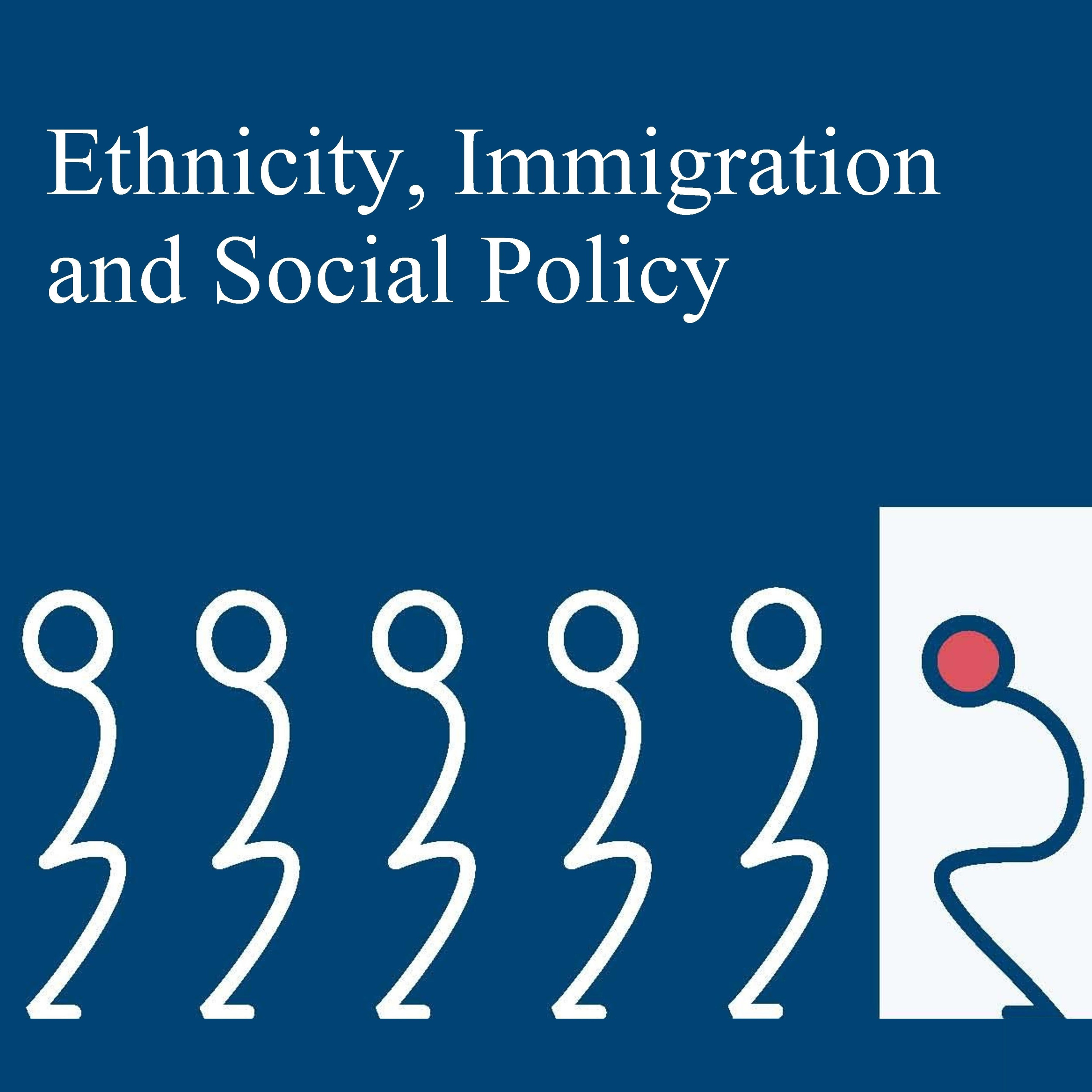
Reza HasmathEthnicity, Immigration and Social Policy - 6 - Lecture Six - Asian and Oceanic ModelsContents:
1. P.R. China
2. Ethnic Minority Protections in China
3. The Feasibility of Implementing Multicultural Policies in China
4. The Beijing Case: An Indicator of Future National Success?
5. The Future of Multiculturalism in China
6. Australia
For more information on the lecture series, click here.
2021-01-2515 min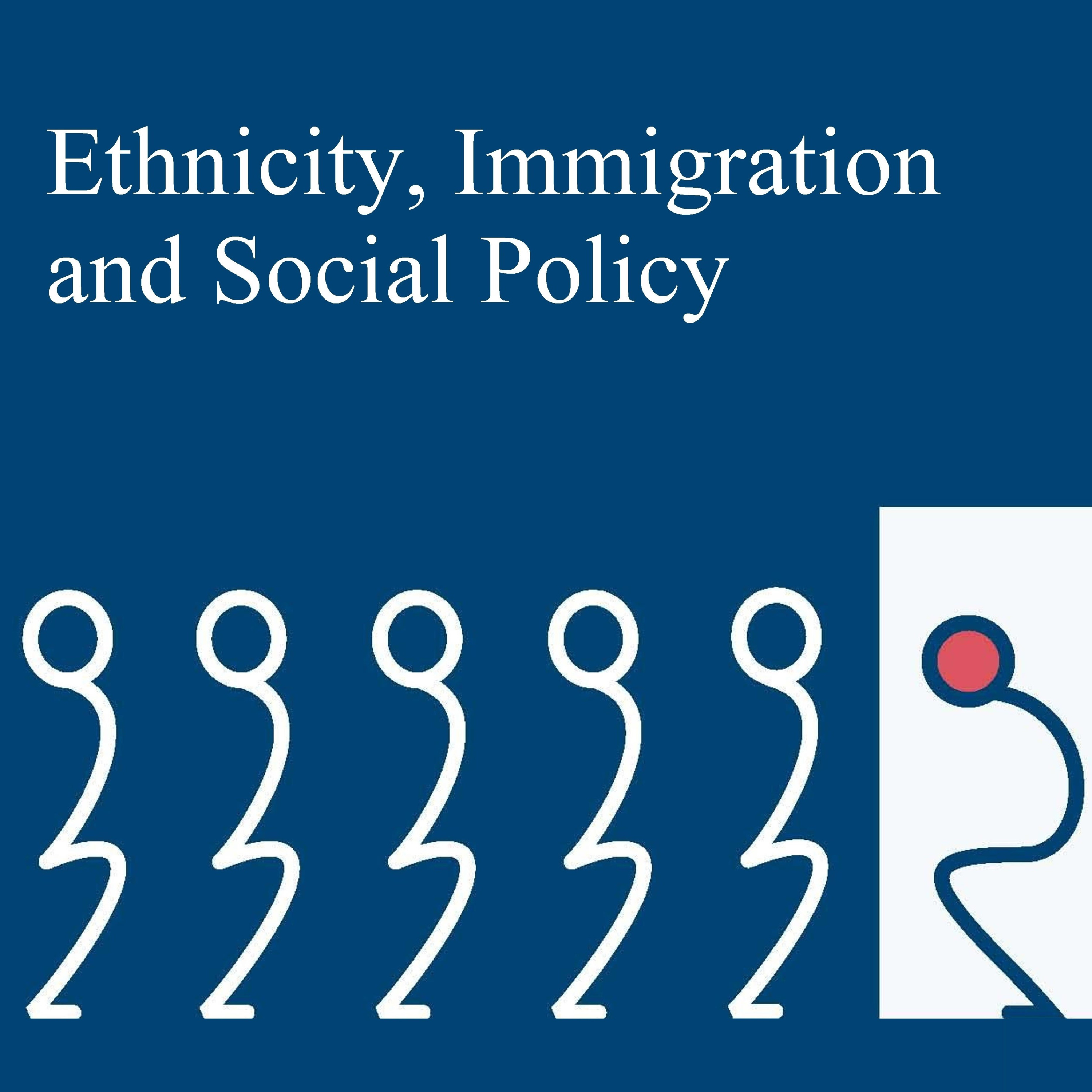
Reza HasmathEthnicity, Immigration and Social Policy - 5 - Lecture Five - European ModelsContents:
1. The United Kingdom
2. Continental Europe
3. Germany
4. France
For more information on the lecture series, click here.
2021-01-2323 min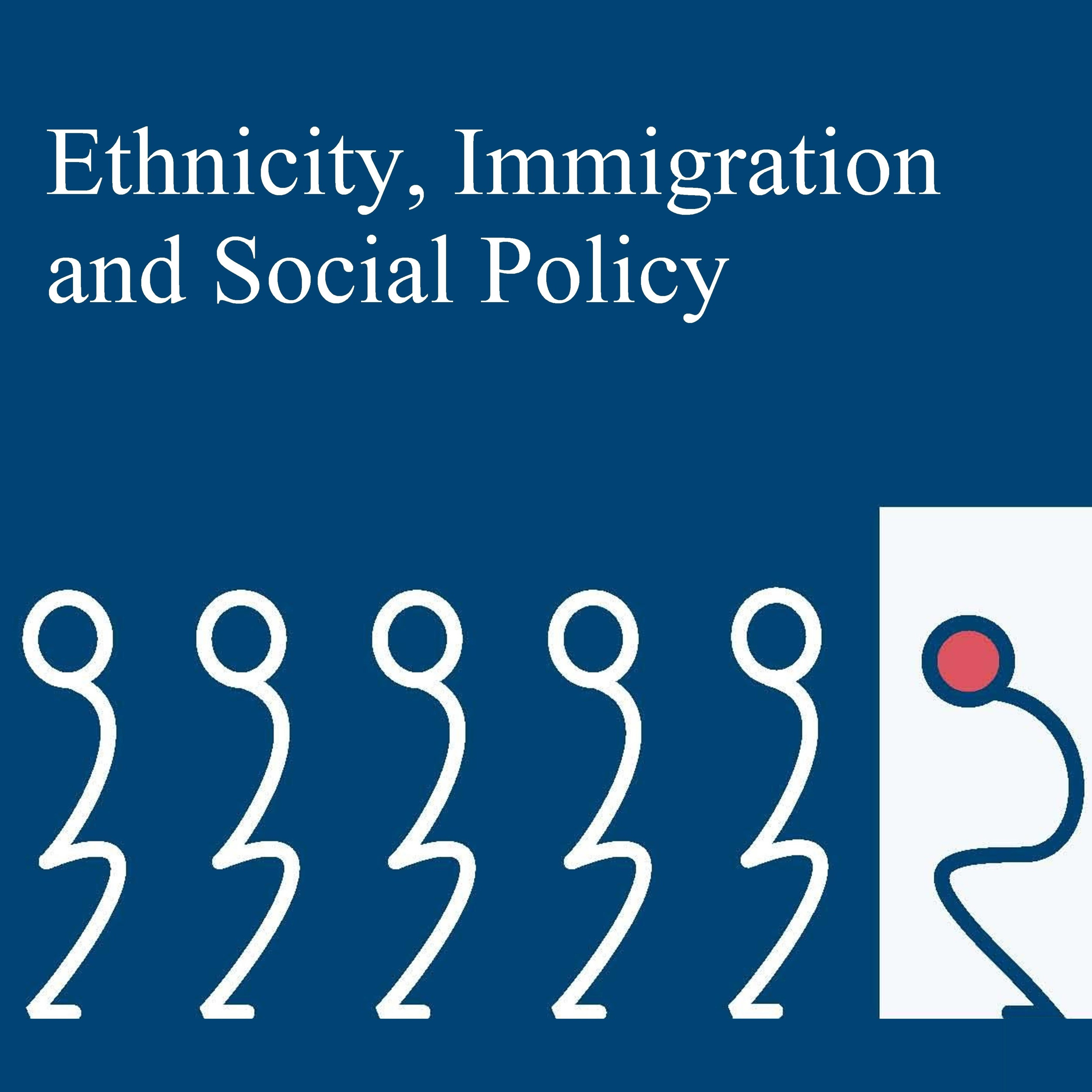
Reza HasmathEthnicity, Immigration and Social Policy Course - 4 - Lecture Four - MulticulturalismContents:
1. First Wave of Immigration: 1946 to 1965
2. Second Wave of Immigration: 1966 to 1995
3. Ethnic Composition of Total Population in Toronto, 1971 – 2001
4. What is Multiculturalism?
5. Multiculturalism in Practice
6. Interactions and Representation
7. Caribana Street Parade, Toronto
8. How does Group Representation Affect Life Chances?
For more information on the lecture series, click here.
2021-01-2321 min
Reza HasmathManaging Modern Government - 9 - Lecture Nine - Government-Private Enterprise Relationships IIContents:
1. Bureaucratic Structure of Coordination
2. High Quality Bureaucrats
3. Public Risk Absorption
4. Private Sector Initiatives in Public Policies
5. The Future of Government-Private Enterprise Relationships
For more information on the lecture series, click here.
2021-01-2312 min
Reza HasmathManaging Modern Government - 8 - Lecture Eight - Government-Private Enterprise Relationships IContents:
1. Setting the Context
2. MNE-Government Relations Models
3. Governed Market Theory
4. Governed Interdependence Theory
For more information on the lecture series, click here.
2021-01-2316 min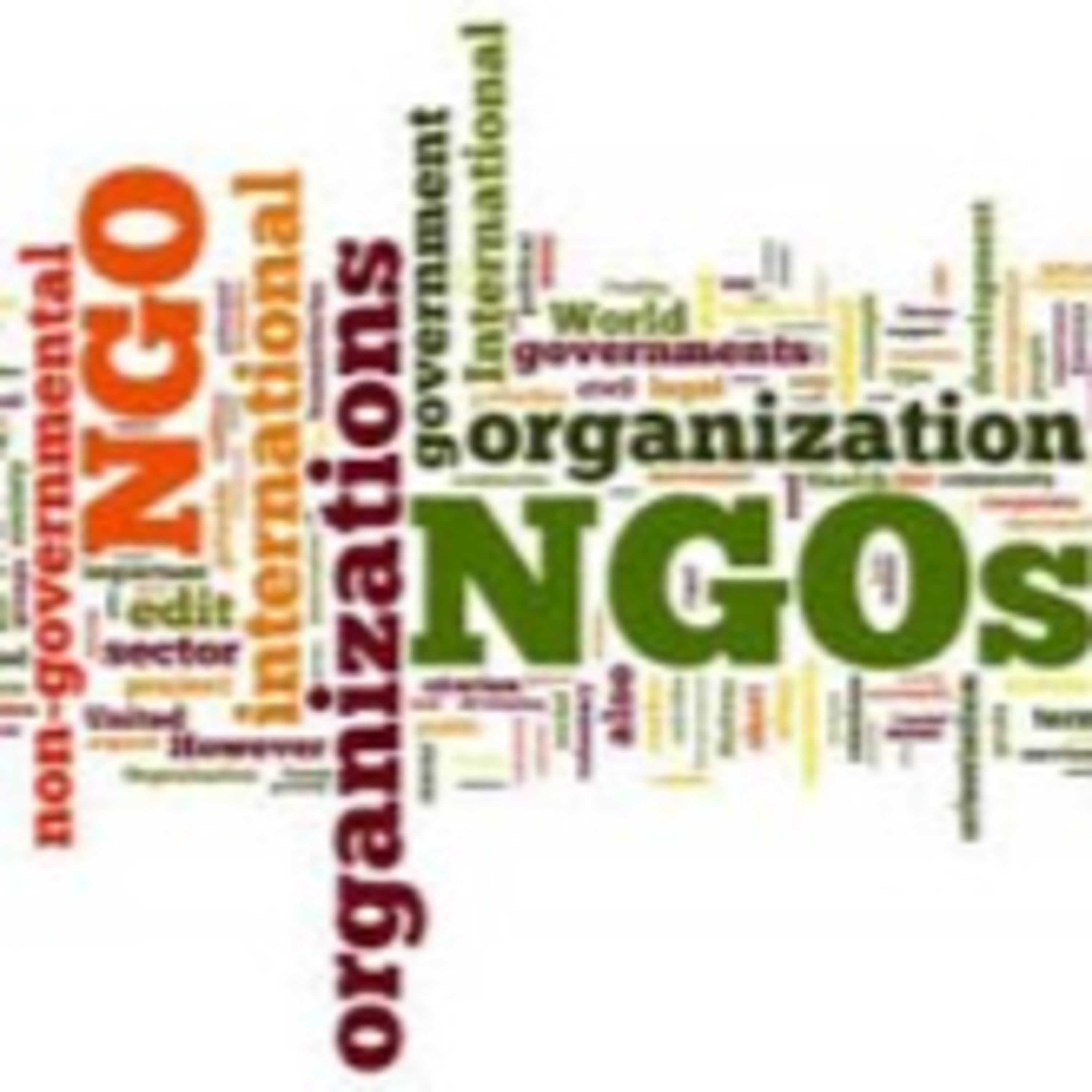
Reza HasmathNGO Governance and Management - 5 - Lecture Five - Accountability and LegitimacyContents:
1. Principal-Agent Theory
2. The USA Case
3. Accountability and Transparency
4. The China Case
5. Is There a Role for the General Public?
6. Improving the Activities of I/NGOs
For more information on the lecture series, click here.
2021-01-1722 min
Reza HasmathNGO Governance and Management - 4 - Lecture Four - Government-NGO RelationshipsContents:
1. Potential Explanations for Low Levels of Collaboration
2. Neo-Institutional Theory
3. The Institutional Environment in China
4. Collaborative Efforts
5. Risk of Competition and Absorption
6. The Epistemic Awareness of NGOs
7. The Professionalization of NGOs
8. Broader Implications
For more information on the lecture series, click here.
2021-01-1728 min
Reza HasmathManaging Modern Government - 7 - Lecture Seven - Conceptualizing Power and PartnershipsContents:
1. Power
2. Class
3. Property
4. Class Struggle
5. Status Groups
6. Parties
7. Power and Domination
8. Legitimacy
For more information on the lecture series, click here.
2021-01-1719 min
Reza HasmathManaging Modern Government - 6 - Lecture Six - Organizational EcologyContents:
1. Organizational Forms
2. Structural Inertia
3. Generalist and Specialist Organizations
4. Organizational Diversity
5. The Demography and Ecology of Organizations
6. Criticism
For more information on the lecture series, click here.
2021-01-1715 min
Reza HasmathManaging Modern Government - 5 - Lecture Five - The Institutional SchoolContents:
1. New Institutionalism
2. Institutional Myths and Legitimacy
3. Isomorphism
4. Three Types of Pressures
5. Predictors of Isomorphic Change
6. Sub-Fields of Institutionalism
7. Support for Institutional Theory
For more information on the lecture series, click here.
2021-01-1114 min
Reza HasmathManaging Modern Government - 4 - Lecture Four - Human Relations SchoolContents:
1. Underlying Framework
2. Needs of an Individual
3. The Work Environment
4. The Hawthorne Studies
5. Applications
6. Criticism
For more information on the lecture series, click here.
2021-01-1111 min
Reza HasmathManaging Modern Government - 3 - Lecture Three - Scientific ManagementContents:
1. Principles of Scientific Management
2. Contribution to Organizational Theory
3. Critiques
For more information on the lecture series, click here.
2021-01-0914 min
Reza HasmathNGO Governance and Management Course - 3 - Lecture Three - Civil Society and the Nation StateContents:
1. Civil Society and State Separation
2. Three Generations of CSOs
3. State-CSO Relationships
4. State-CSO Models
5. CSOs and State Passivity
6. The P.R. China Case
For more information on the lecture series, click here.
2021-01-0819 min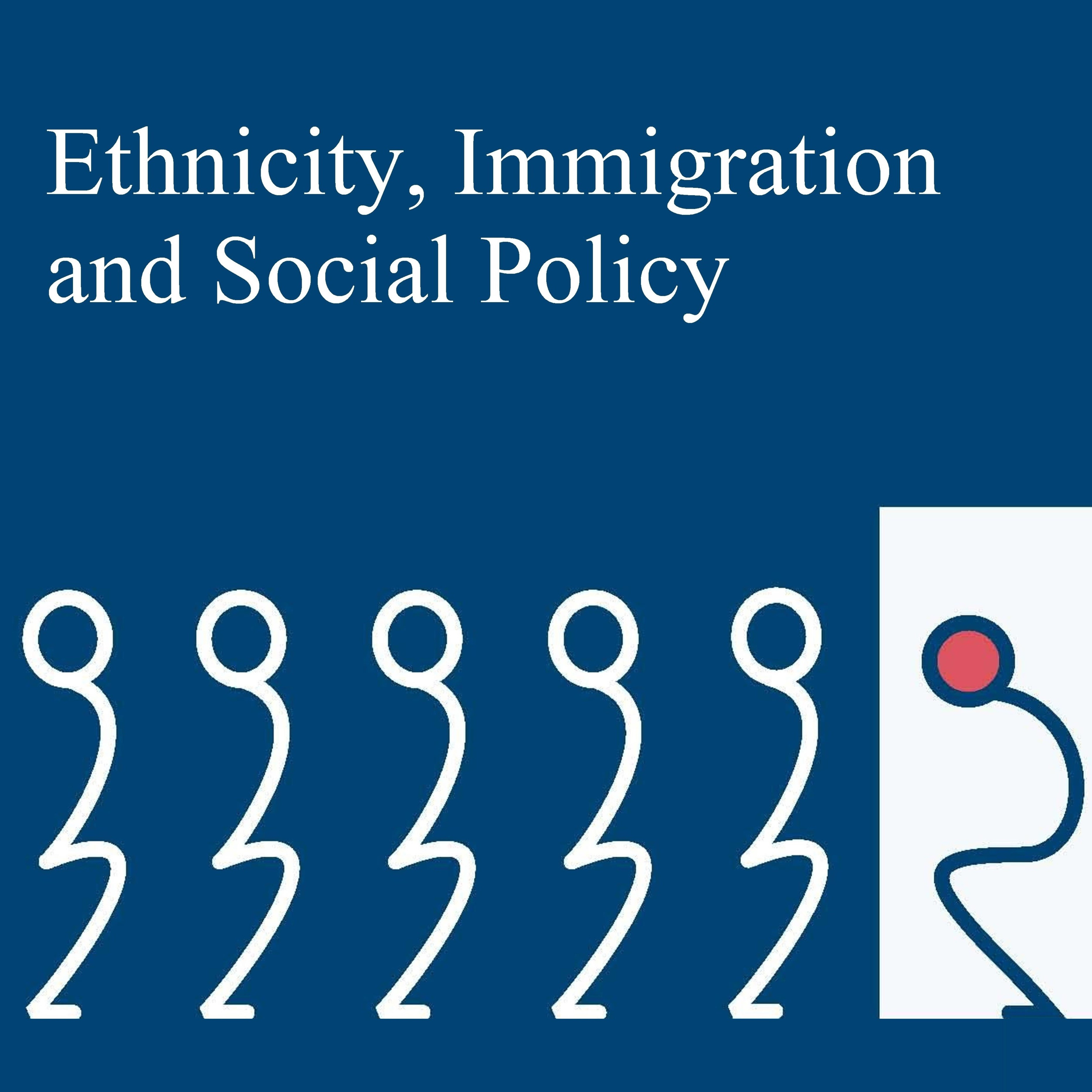
Reza HasmathEthnicity, Immigration and Social Policy Course - 3 - Lecture Three - Ethnic WarsContents:
1. State Collapse
2. Ethnic Grievances
3. Nationalist Mobilization and Conflict
4. What are Conditions for Violence?
5. Collective Action Theory
6. The Role of History
7. Barriers to Peace
8. Civil Wars are Not All Alike
9. Ending Ethnic Wars
10. The Role of Territory
11. The Role of Security
12. The Role of Demography
13. Towards Peace
For more information on the lecture series, click here.
2021-01-0836 min
Reza HasmathManaging Modern Government - 2 - Lecture Two - Bureaucracy and the Notion of RationalityContents:
1. Essential Features of the Bureaucracy
2. Legitimate Authority
3. Bureaucracy and Rationality
4. Bureaucracy and Efficiency
5. Lessons Learned
For more information on the lecture series, click here.
2021-01-0718 min
Reza HasmathNGO Governance and Management Course - 2 - Lecture Two - Global Civil SocietyContents:
1. The Concept
2. What is Civil Society?
3. The Public Sphere
4. Global Civil Society is not Civil Society in an International Context
5. Global Civil Society is not Universal
6. Competing Claims About Global Civil Society
For more information on the lecture series, click here.
2021-01-0613 min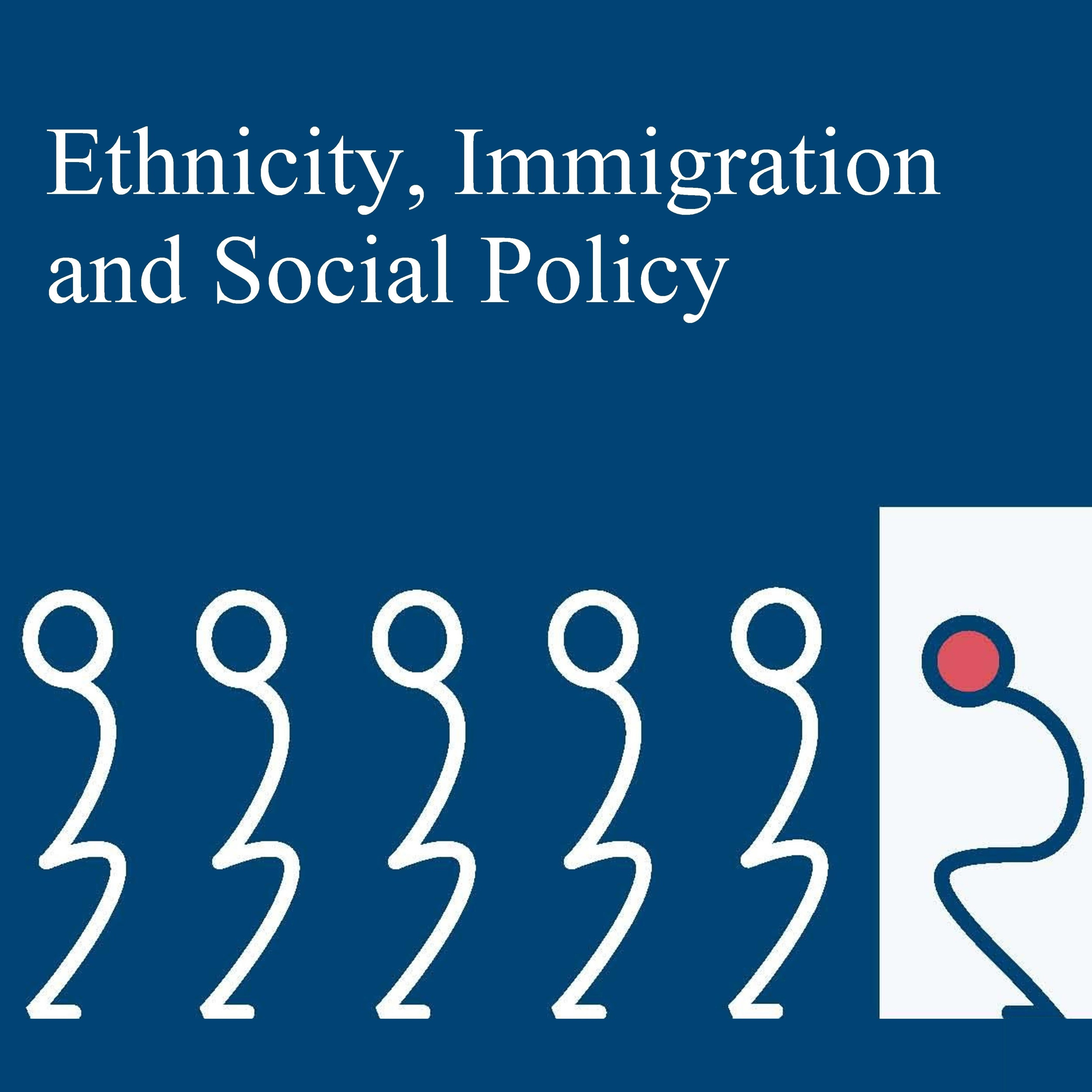
Reza HasmathEthnicity, Immigration and Social Policy Course - 2 - Lecture Two - Ethnic PolarizationContents:
1. Ethnic Identity and Violence
2. Ethnic Boundaries Expansion and Contraction
3. The Political Salience of Ethnicity
4. Directional Theory
5. The Ethnic Party
6. Ethnic Voting
7. Ethnic Mobilization
8. Ethnic Coalitions
9. Group Belonging and Ethno-Nationalism
For more information on the lecture series, click here.
2021-01-0626 min
Reza HasmathManaging Modern Government Course - 1 - Lecture One - The Concept of the OrganizationContents:
1. Historical Traditions
2. What is an Organization?
3. The Complex Organization
4. Segmenting the Organization
5. Working in the Modern Government
For more information on the lecture series, click here.
2021-01-0513 min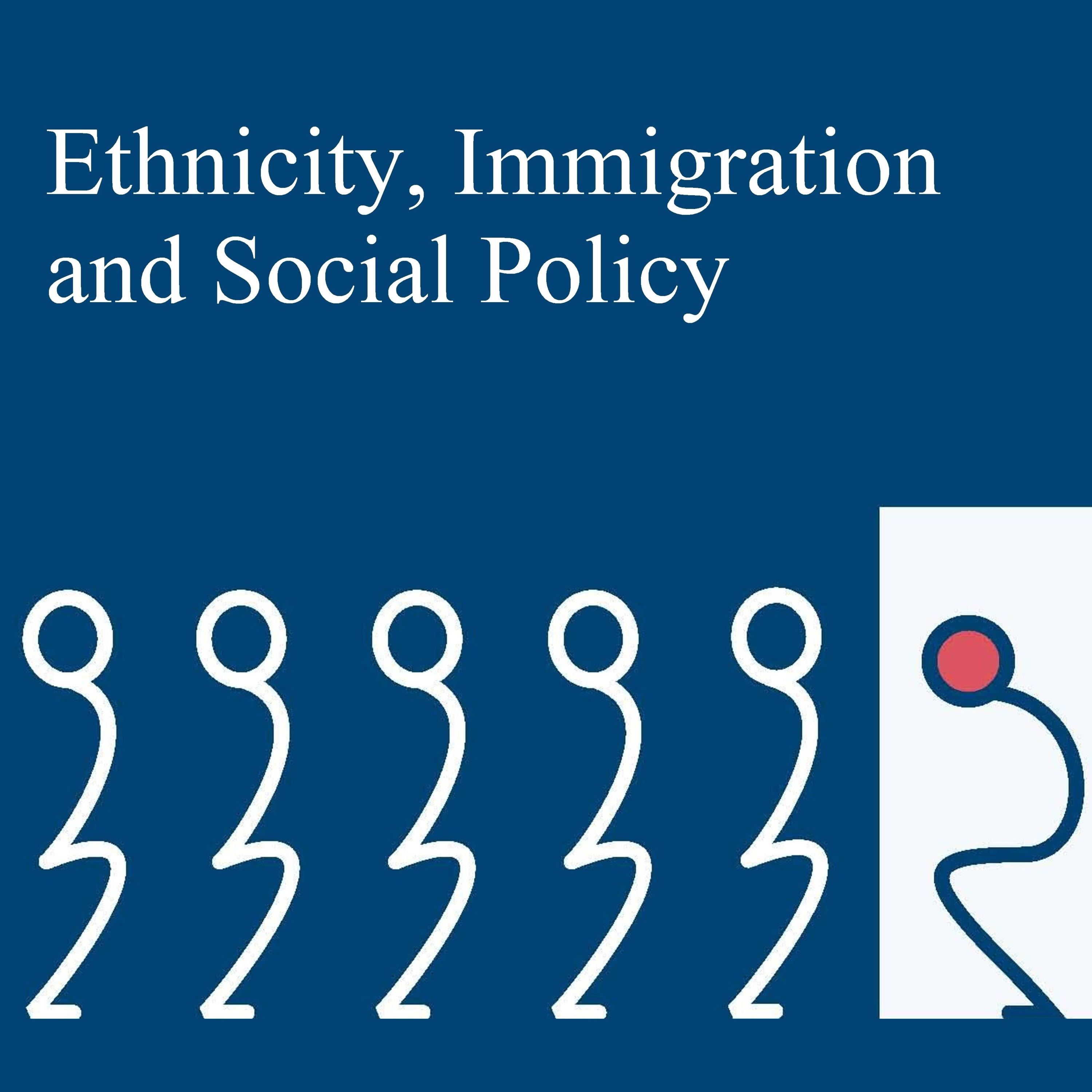
Reza HasmathEthnicity, Immigration and Social Policy Course - 1 - Lecture One - IntroductionContents:
1. What is an Ethnic Group?
2. The Dilemma of Ethnic Differences
3. From Group Characteristics to Social and Political Processes
4. Ethnicity in Canada
5. The Social Construction of Identity
6. The Individual ‘Ethnic Self’
For more information on the lecture series, click here.
2021-01-0330 min
Reza HasmathNGO Governance and Management Course - 1 - Lecture One - IntroductionContents:
1. NGOs Sources of Power
2. NGOs Main Functions
3. NGO Dilemmas
For more information on the lecture series, click here.
2021-01-0213 min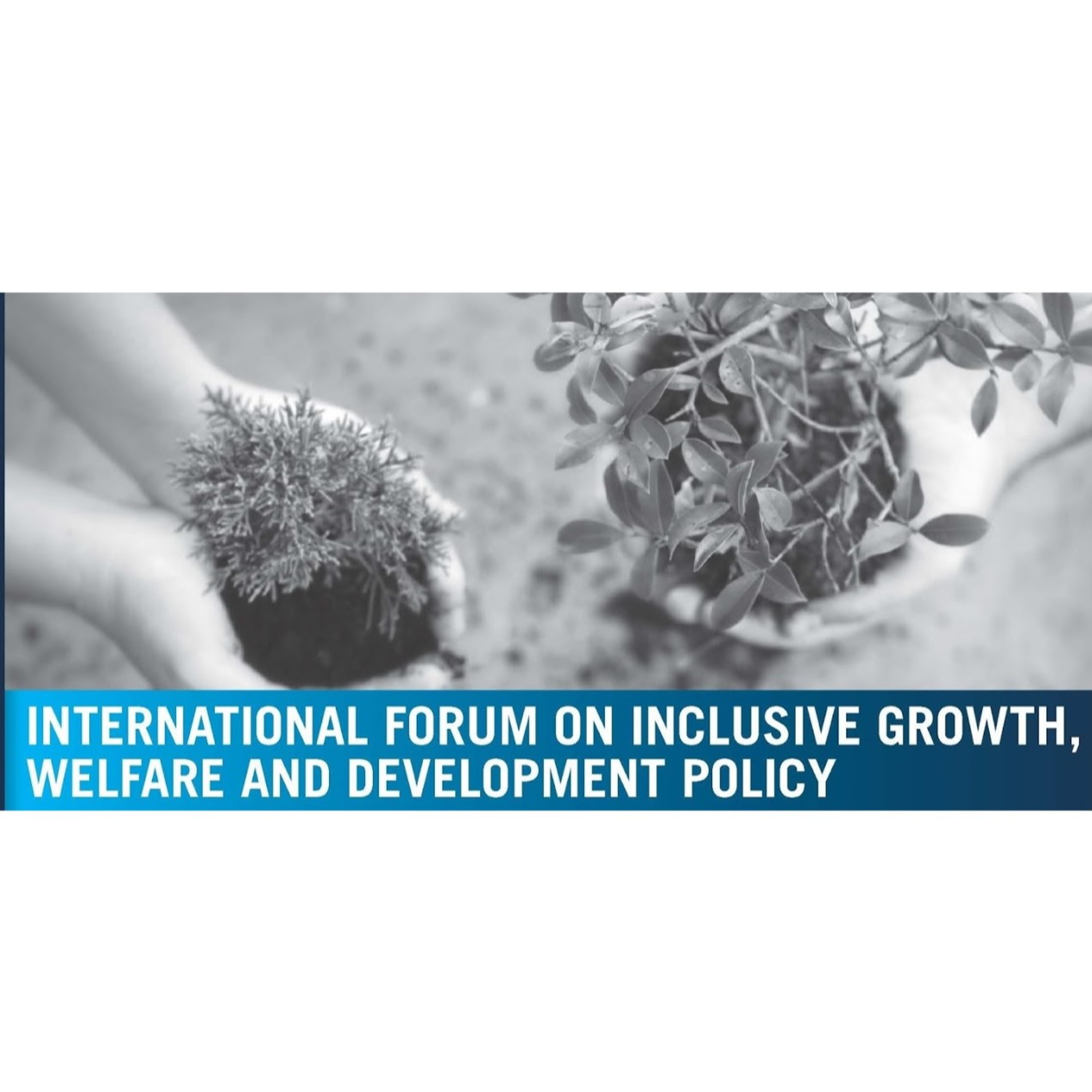
Reza HasmathInternational Forum on Inclusive Growth, Welfare and Development Policy - 6 - Social Investment for Inclusive Growth in AustraliaAustralia is at the front line of debate over ‘new welfare’. Up until the turn of the century, Australia’s model of ‘wage earners’ welfare’ was commonly recognised as an Antipodean exception to Esping Andersen’s threefold typology of welfare regimes. Its characteristically residual approach to state welfare provision was explained not as evidence of a liberal regime but rather the result of an historical preference for a regulated ‘living wage’ as a substitute for welfare. However, in the 1990s the institutional basis of the model was largely removed by extensive labour market deregulation leaving Australia very much in need of a ‘new wel...
2020-12-2926 min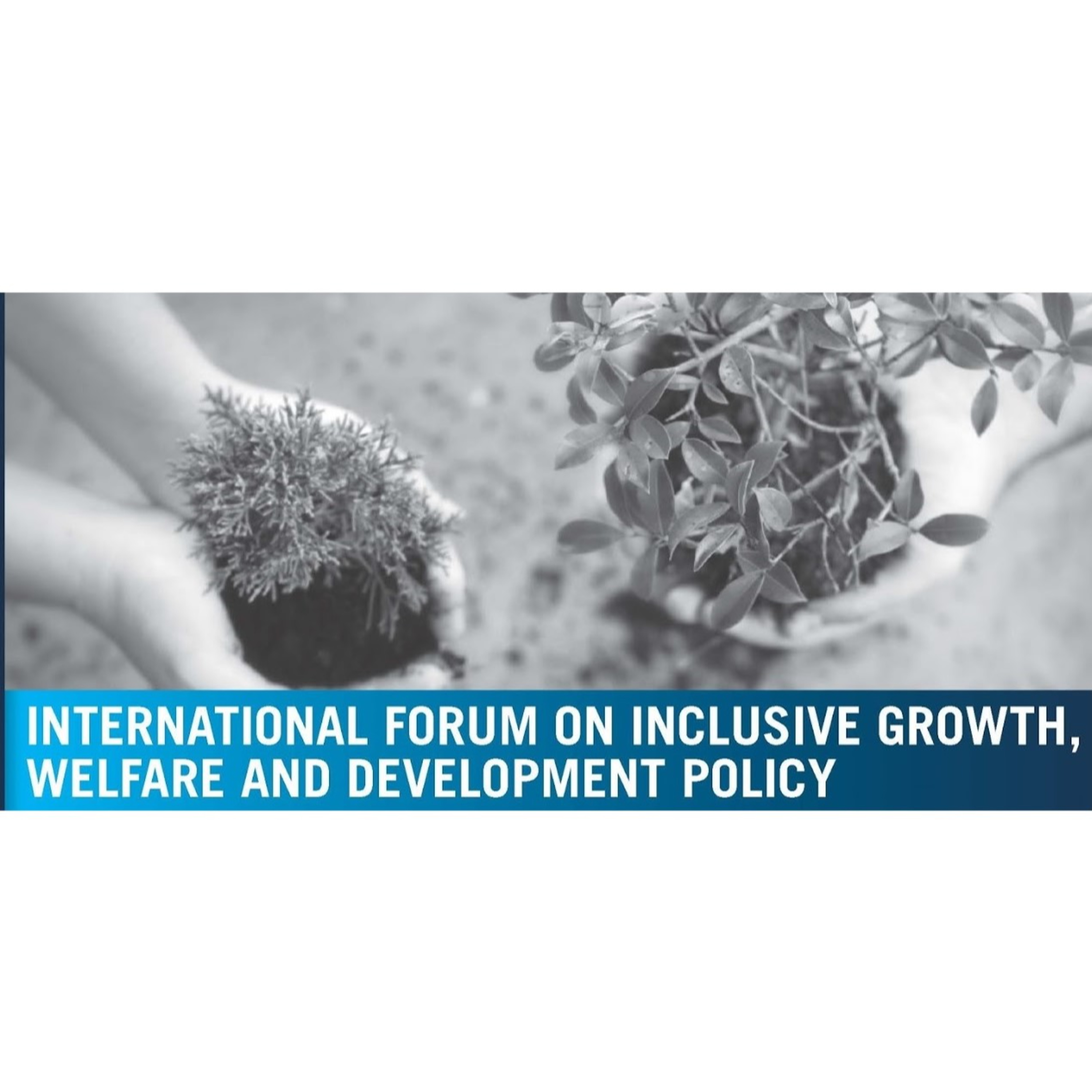
Reza HasmathInternational Forum on Inclusive Growth, Welfare and Development Policy - 5 - Development in Transition: Lessons from Central and South AsiaThe current financial crisis is evidence of the difficulty that the world’s most advanced capitalist nations face with regard to returning to a more stable path of economic expansion. This debacle is yet another indication that there are currently very few solutions that can ensure continued technological advancement and the associated productivity gains. While there is a desperate search for quick fix solutions to the current problems such as trying to gain consensus on the Basel principles, these are far too minimal to address the fundamental discordances in the global economic system. Radical and innovative answers lies not in...
2020-12-2920 min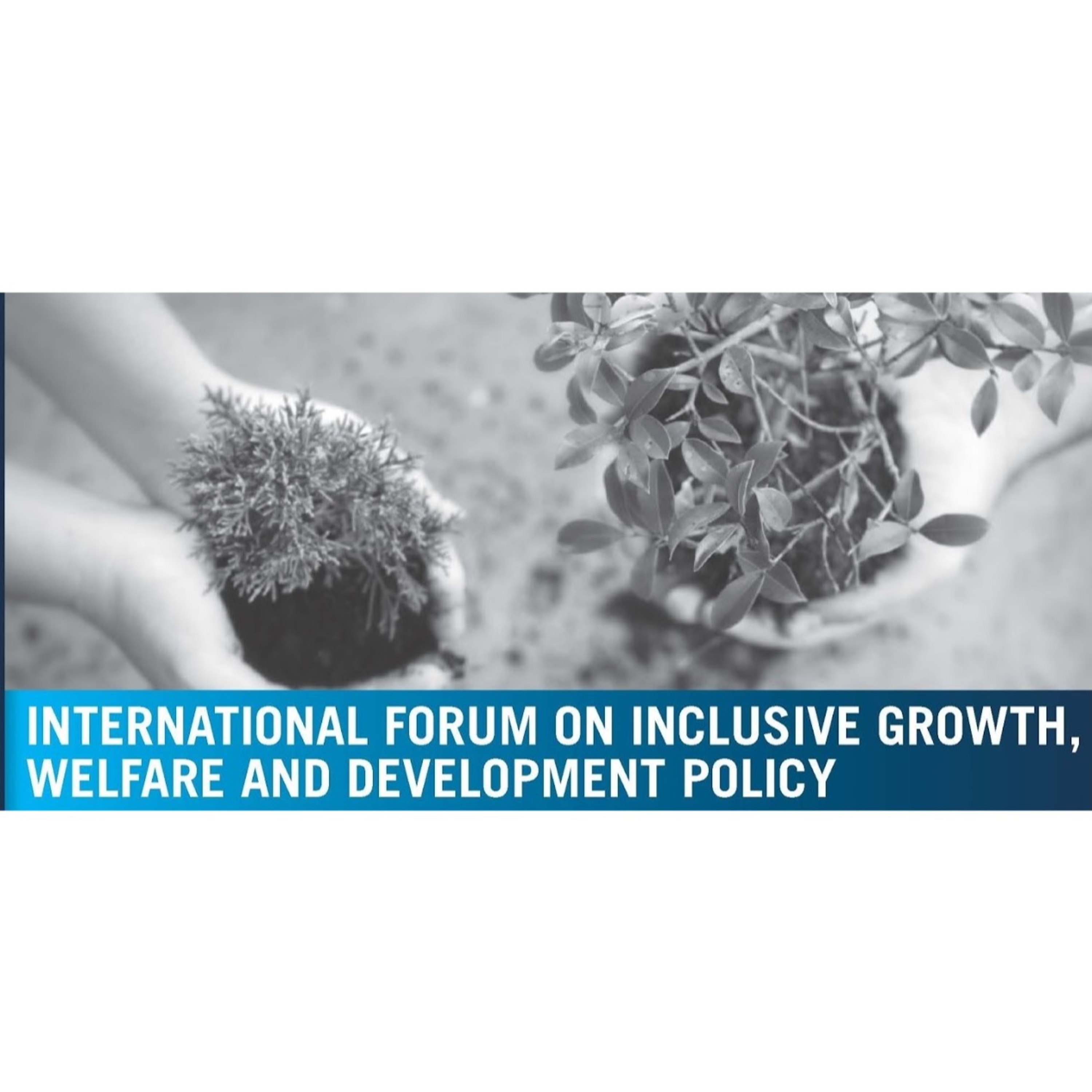
Reza HasmathInternational Forum on Inclusive Growth, Welfare and Development Policy - 4 - China: A ‘Model’ for Development?This talk will assess China’s development over the last thirty years and seek to understand whether its development experiences can be extrapolated as a “development model” for other developing nations. The talk will primarily examine the social aspects of China’s transformation – situated within the context of unprecedented growth – for example, the increasing role of civil society stakeholders. Corporatist and developmental frameworks have come to the fore at different points in time to explain China’s unprecedented economic growth. The corporatist framework suggests that the Chinese state remains in power through its coordinating efforts with social stakeholders, such as civil socie...
2020-12-2921 min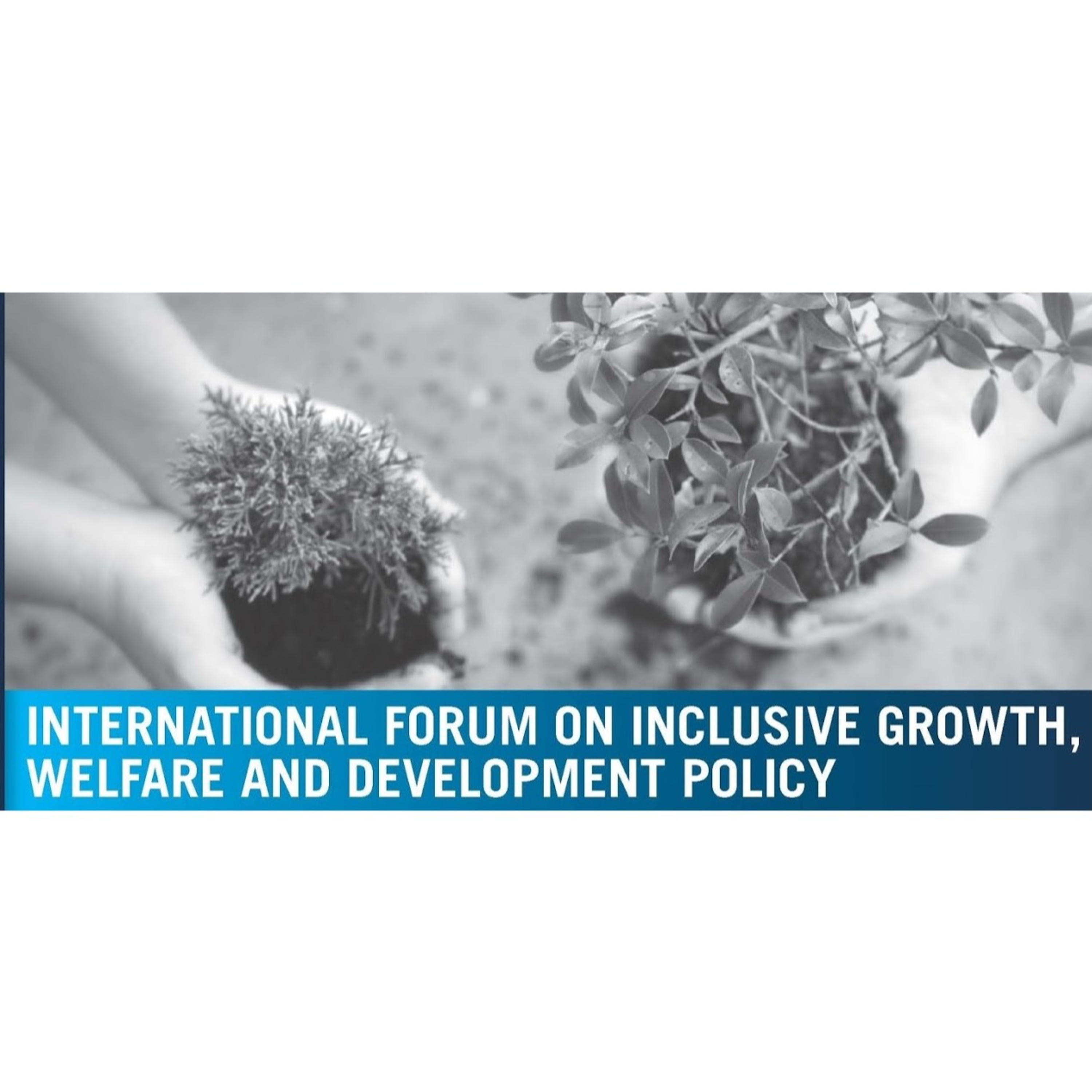
Reza HasmathInternational Forum on Inclusive Growth, Welfare and Development Policy - 3 - The Beijing Consensus as a Philosophical Policy ToolThe Beijing Consensus represents an analytical dilemma. First, it lacks a codified set of principles and policy tools and as such, it can be a difficult model for policy makers to utilize in their deliberation. Relatedly, in the search for a concrete set of principles and policy tools, the literature has a tendency to simultaneously conflate the Beijing Consensus with the “Chinese model of development” – a red herring to say the least – with the relevant critiques following suit. This talk suggests that the Beijing Consensus represents a philosophical movement towards an ultra-pragmatic view of development policy. Contrary to models of develop...
2020-12-2914 min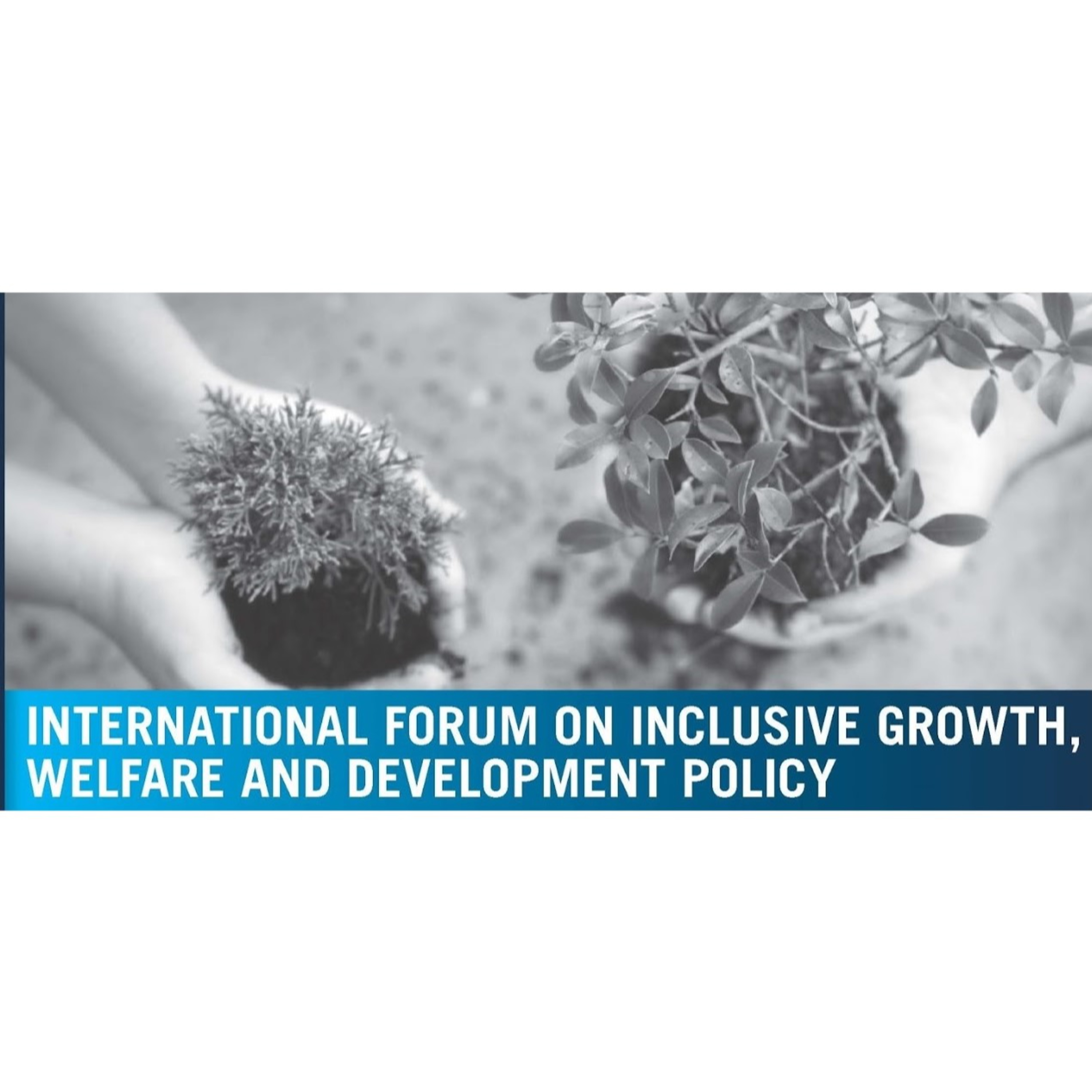
Reza HasmathInternational Forum on Inclusive Growth, Welfare and Development Policy - 2 - Structural Reforms, Income Distribution, and Inclusive GrowthPier Carlo Padoan, Chief Economist and Deputy Secretary-General, OECD.
The recognition of widening income gaps within most OECD nations over the past decades has highlighted concerns that structural reforms may increase income inequality. Such concerns have gained further prominence in the context of the global crisis, particularly in nations where current reform action is being driven primarily by fiscal consolidation objectives.
The distribution of income is not only shaped by long-term trends like changes in policies and institutions, technological change or globalization, but is also affected, sometimes durably, by macroeconomic shocks such as the recent fin...
2020-12-2931 min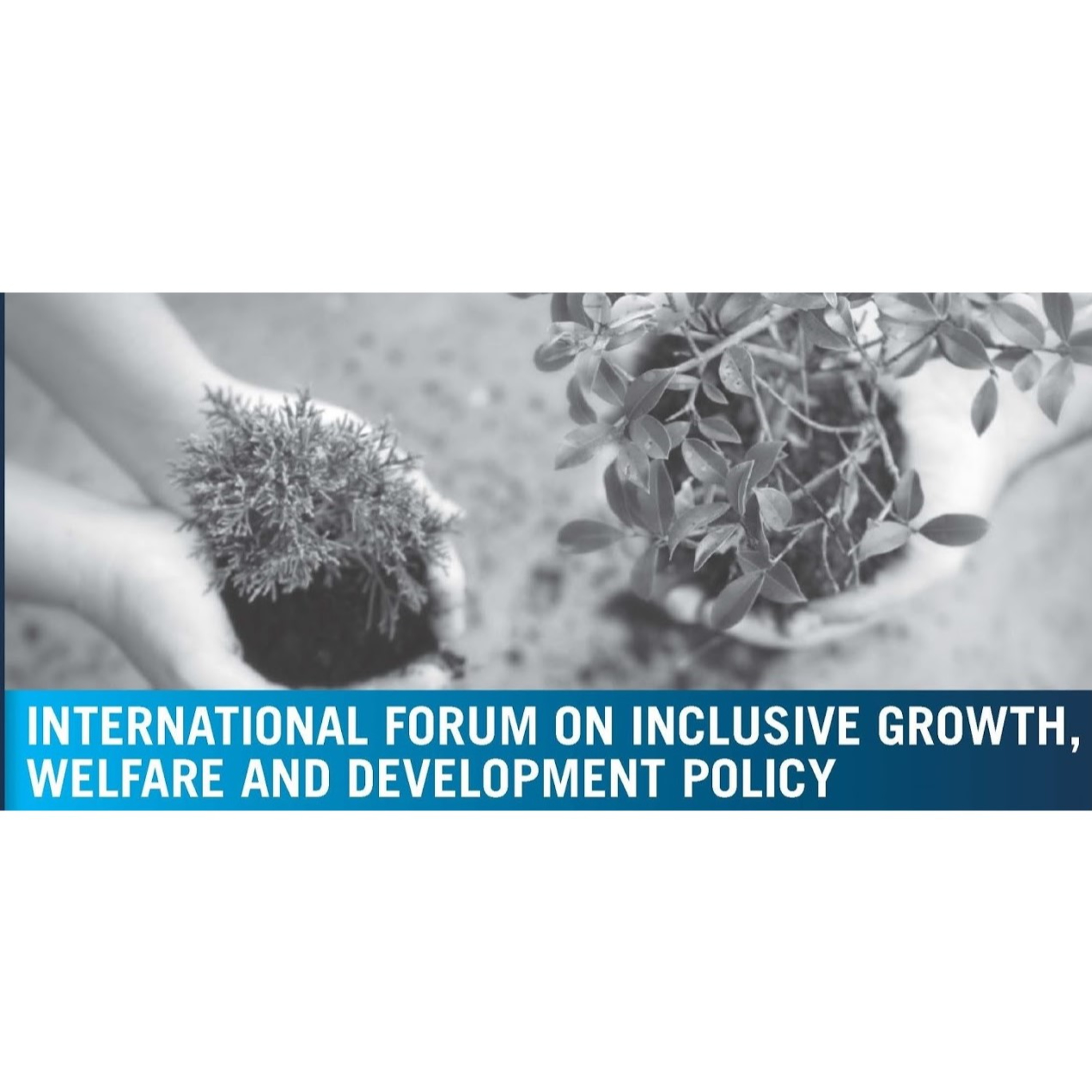
Reza HasmathInternational Forum on Inclusive Growth, Welfare and Development Policy - 1 - Poverty and Growth RevisitedMartin Ravallion, Chief Economist and Senior Vice President, World Bank.
The developing world has made considerable progress against absolute poverty in aggregate terms, but with uneven progress across nations and regions. There are also rising concerns about inequality in many nations, and (related) concerns that the global growth processes have not been sufficiently inclusive. There is a puzzling aspect in all of this: while the overall incidence of poverty is falling in the developing world, it is not falling any faster in its poorest nations. In short, we do not see poverty convergence. That is puzzling if we a...
2020-12-2930 min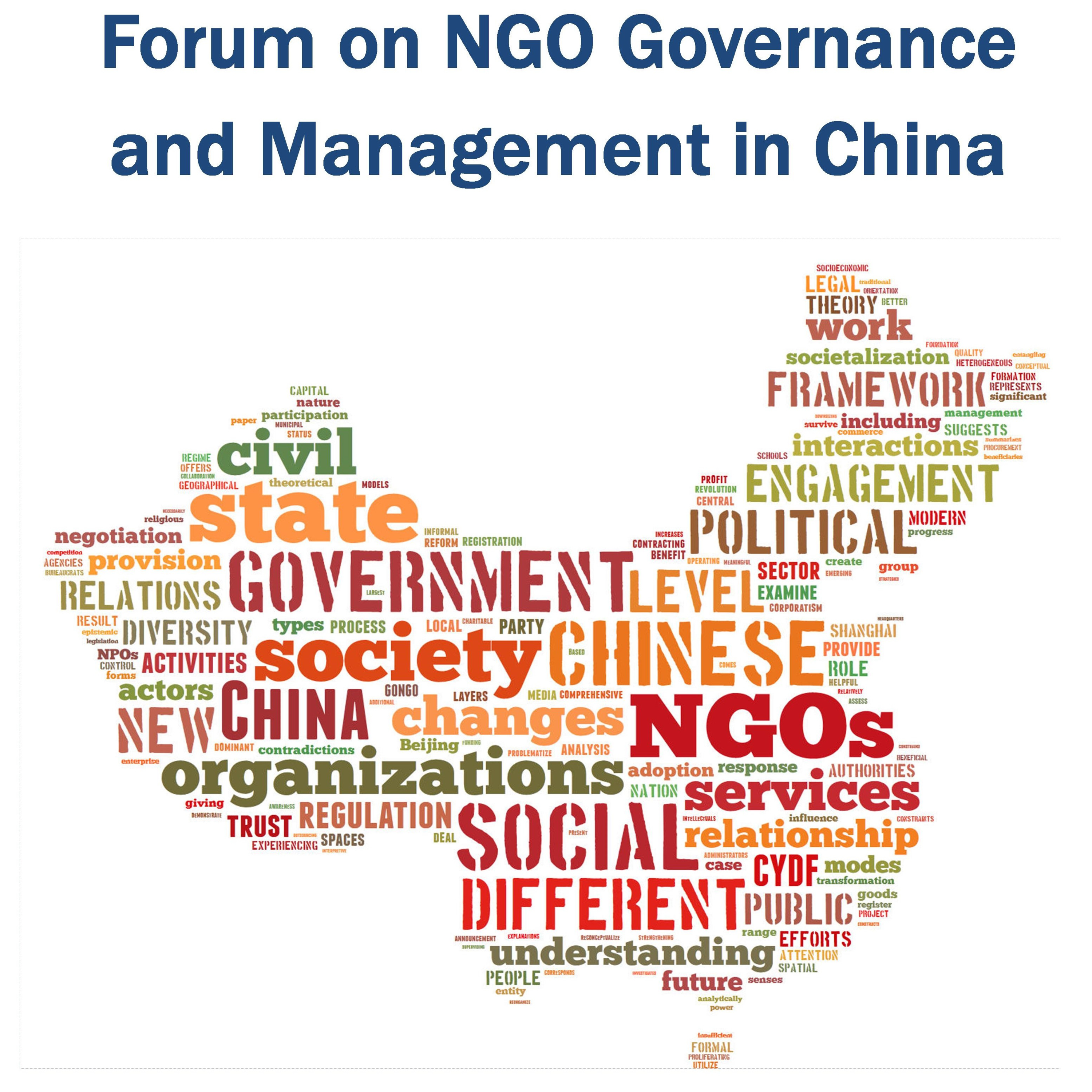
Reza HasmathForum on NGO Governance and Management - 15 - Concluding RemarksConcluding remarks.
Click on the hyperlink for more information on the Forum and book.
2020-12-2903 min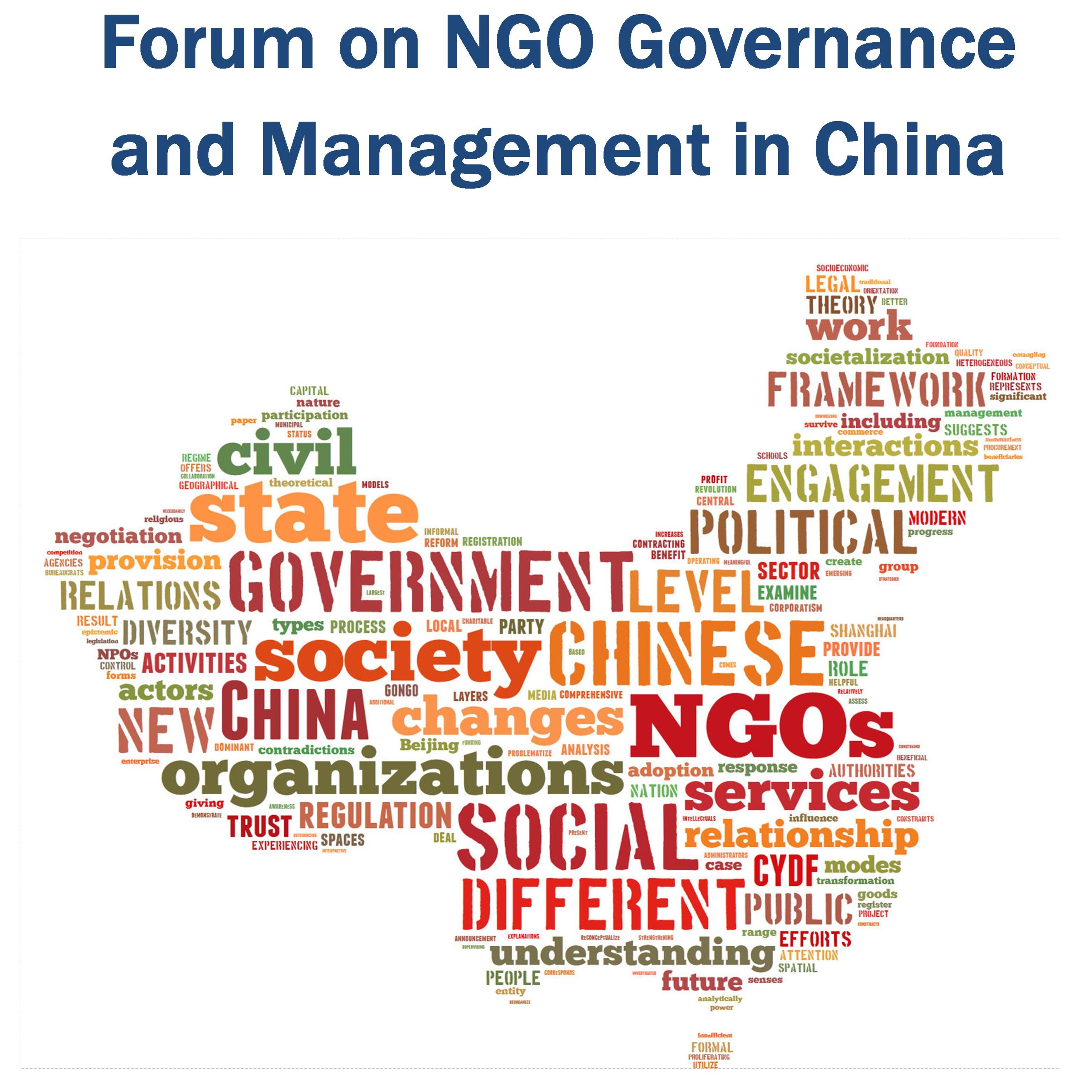
Reza HasmathForum on NGO Governance and Management - 14 - Rachel Laforest CommentaryCommentary by Rachel Laforest (Queen's University).
Click on the hyperlink for more information on the Forum and book.
2020-12-2917 min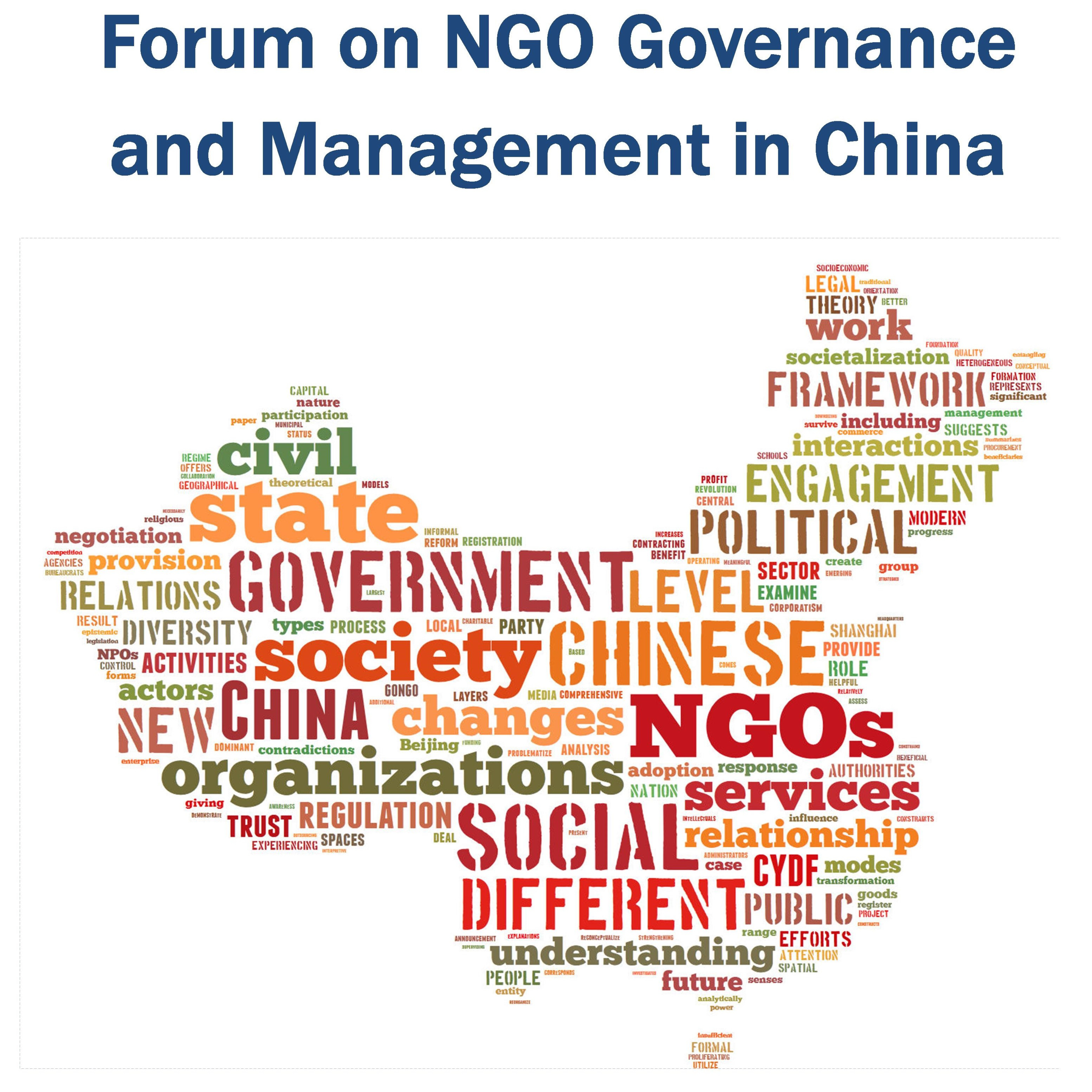
Reza HasmathForum on NGO Governance and Management - 13 - Nicholas Pope CommentaryCommentary by Nicholas Pope (Canada Fund in China).
Click on the hyperlink for more information on the Forum and book.
2020-12-2921 min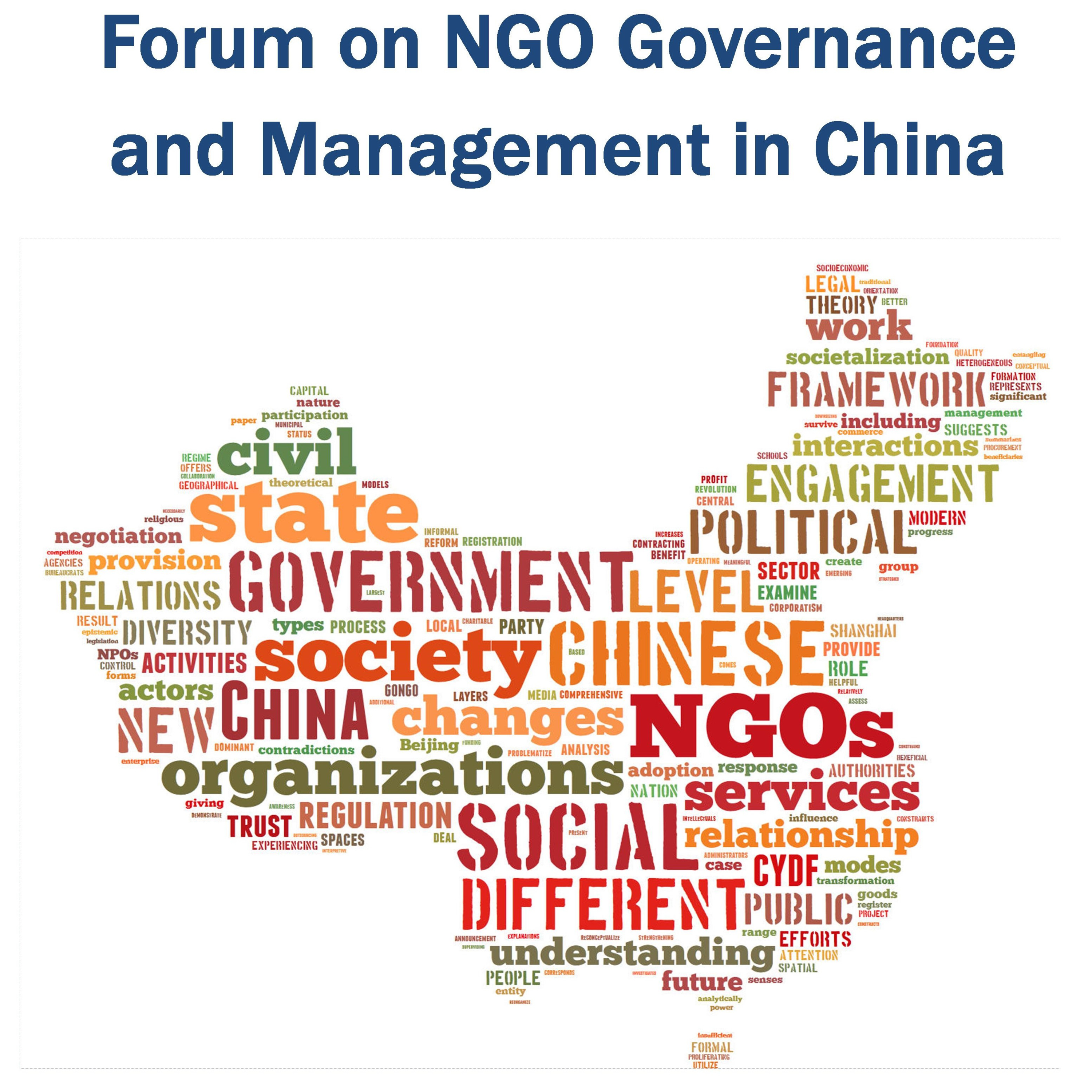
Reza HasmathForum on NGO Governance and Management - 12 - Thomas Gold CommentaryCommentary by Thomas B. Gold (University of California at Berkeley).
Click on the hyperlink for more information on the Forum and book.
2020-12-2920 min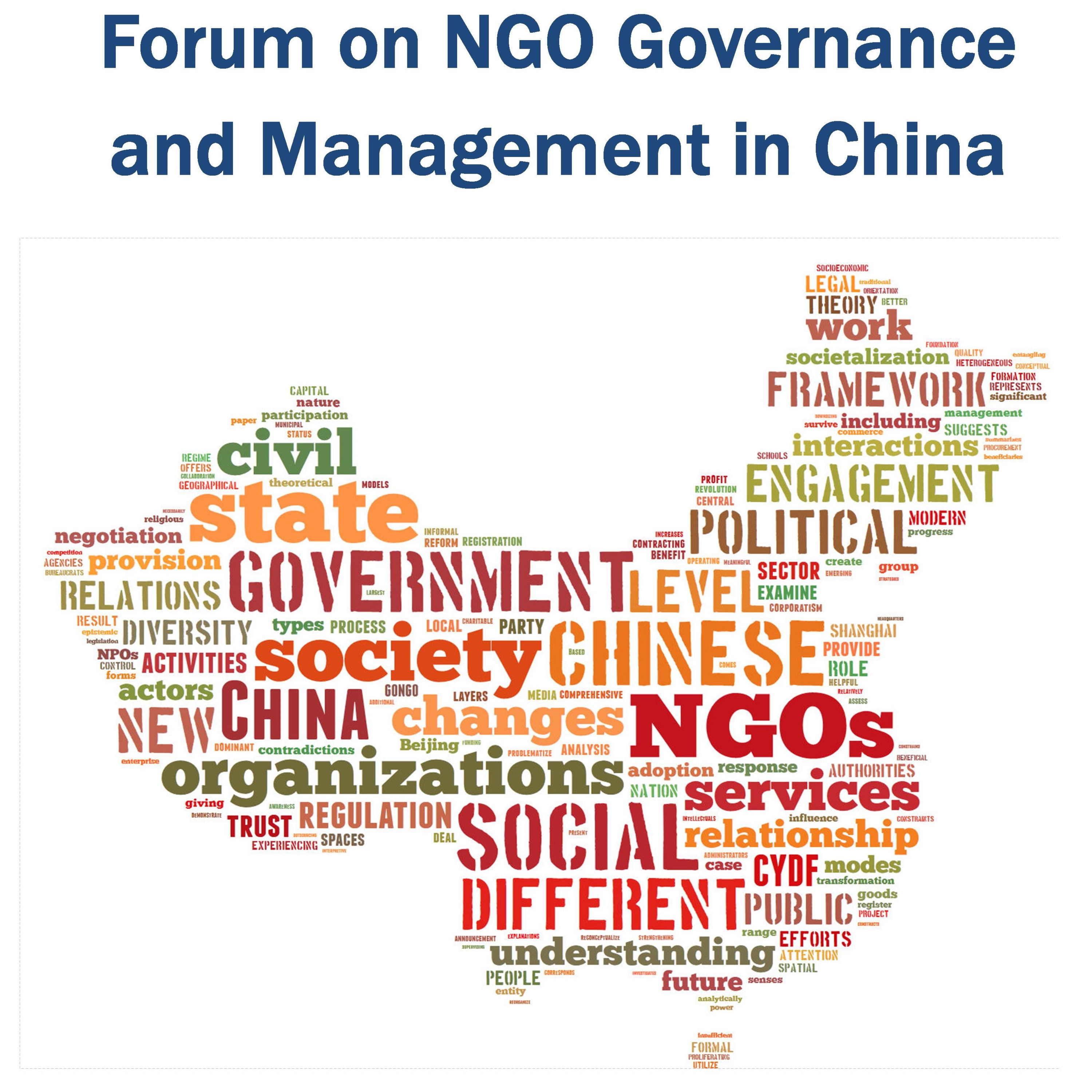
Reza HasmathForum on NGO Governance and Management - 11 - China Youth Development FoundationThe China Youth Development Foundation (CYDF) is one of China's largest and most famous charitable organizations, known primarily for its Project Hope campaign to raise money for rural schools and schoolchildren. In scholarly literature, CYDF is most often characterized as a GONGO, a government-organized NGO. Based on interviews with CYDF’s founder, leader, employees, volunteers, and beneficiaries, this paper offers an in-depth analysis of CYDF’s relationship with the state in order to provide one case study of a Chinese GONGO. According to my findings, the label GONGO may be inaccurate and misleading. Although CYDF has had a very clos...
2020-12-2923 min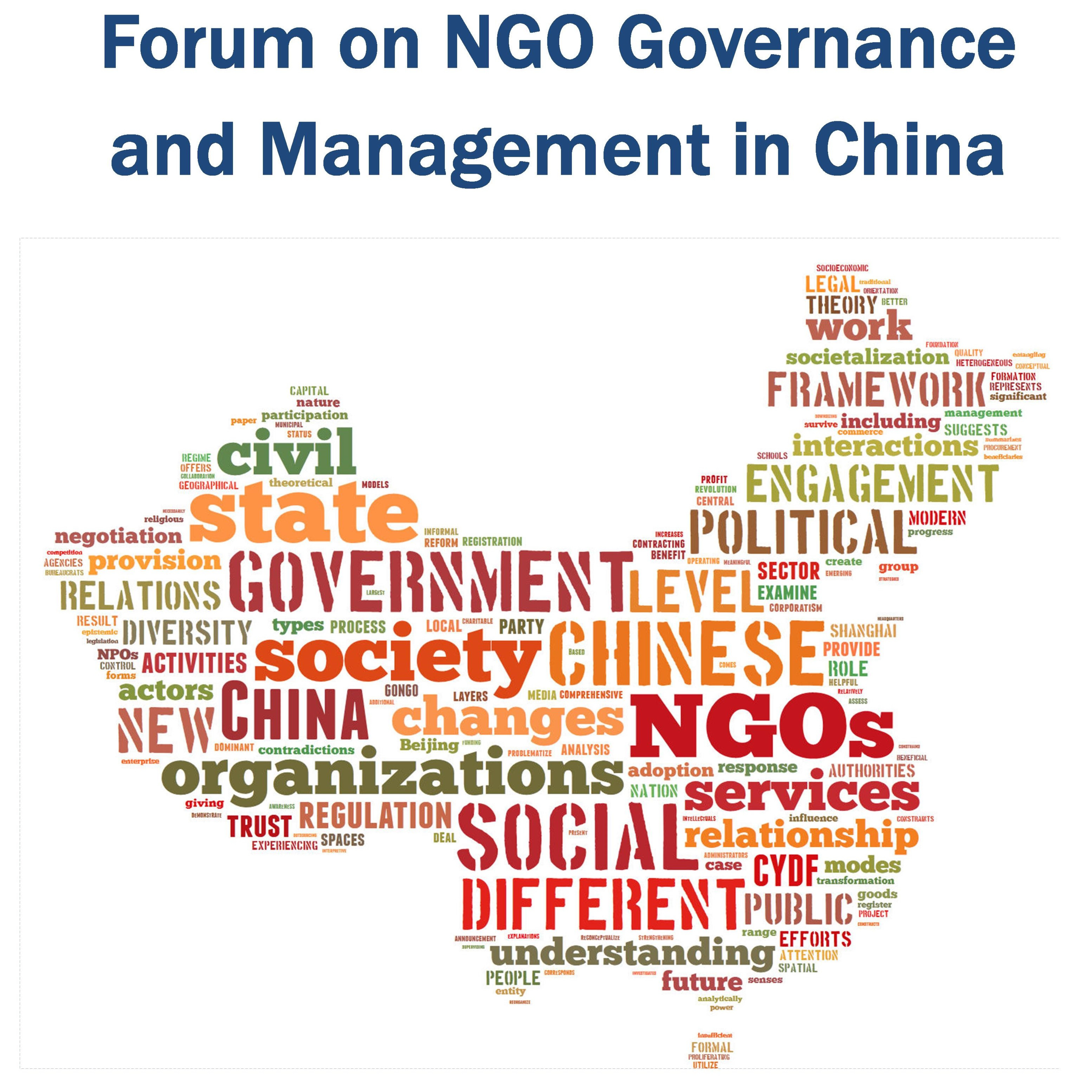
Reza HasmathForum on NGO Governance and Management - 10 - The Political Economy of Activist Adaptation in ChinaScholarly attention has been increasingly paid to the emergence of Chinese NGOs. And while we have a better understanding of how these organizations rose within an otherwise closed political environment, we know considerably less about the rapidly changing nature of NGO development and, therefore, the potential future of these organizations, especially in a ‘post-success’ environment. How will Chinese NGOs confront a future where the state is better able to deal with social problems, and thus no longer needs their assistance in social service delivery? In addition, how can Chinese NGOs survive where they lack domestic sources of funding and fore...
2020-12-2919 min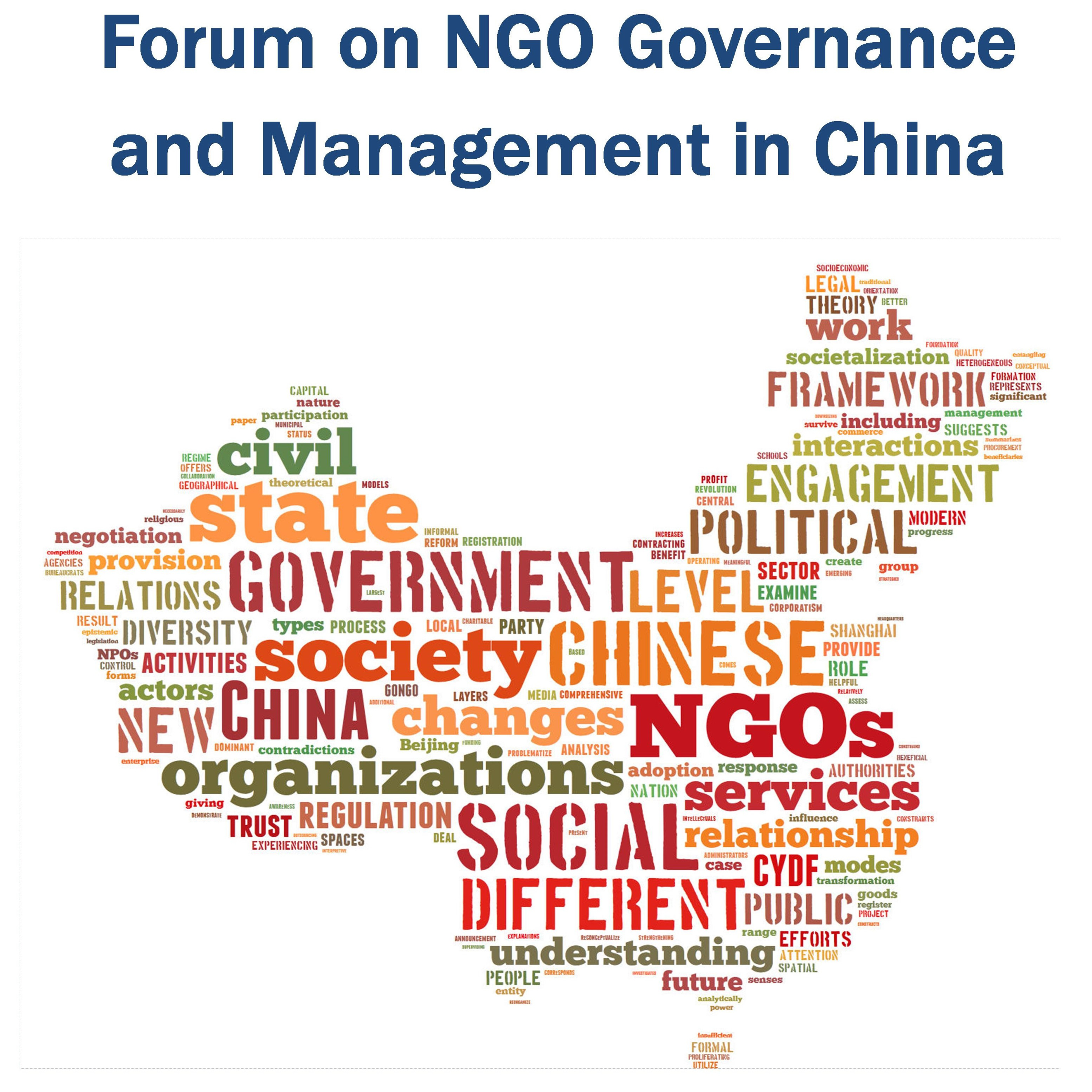
Reza HasmathForum on NGO Governance and Management - 9 - What Explains a Lack of Local State NGO Collaboration?This paper suggests that a lack of meaningful collaboration between the state and NGOs in China is not necessarily a result of a state that is seeking to restrict the development of the sector, or a fear of a potential opposing actor to the state. Instead, interviews with NGOs in Beijing and Shanghai suggest that a lack of meaningful collaboration between the state and NGOs can be partially attributed to isomorphic pressures within state-NGO relations, and insufficient epistemic awareness of NGO activities and their utility on the part of the state. In fact, the evidence suggests that once epistemic...
2020-12-2917 min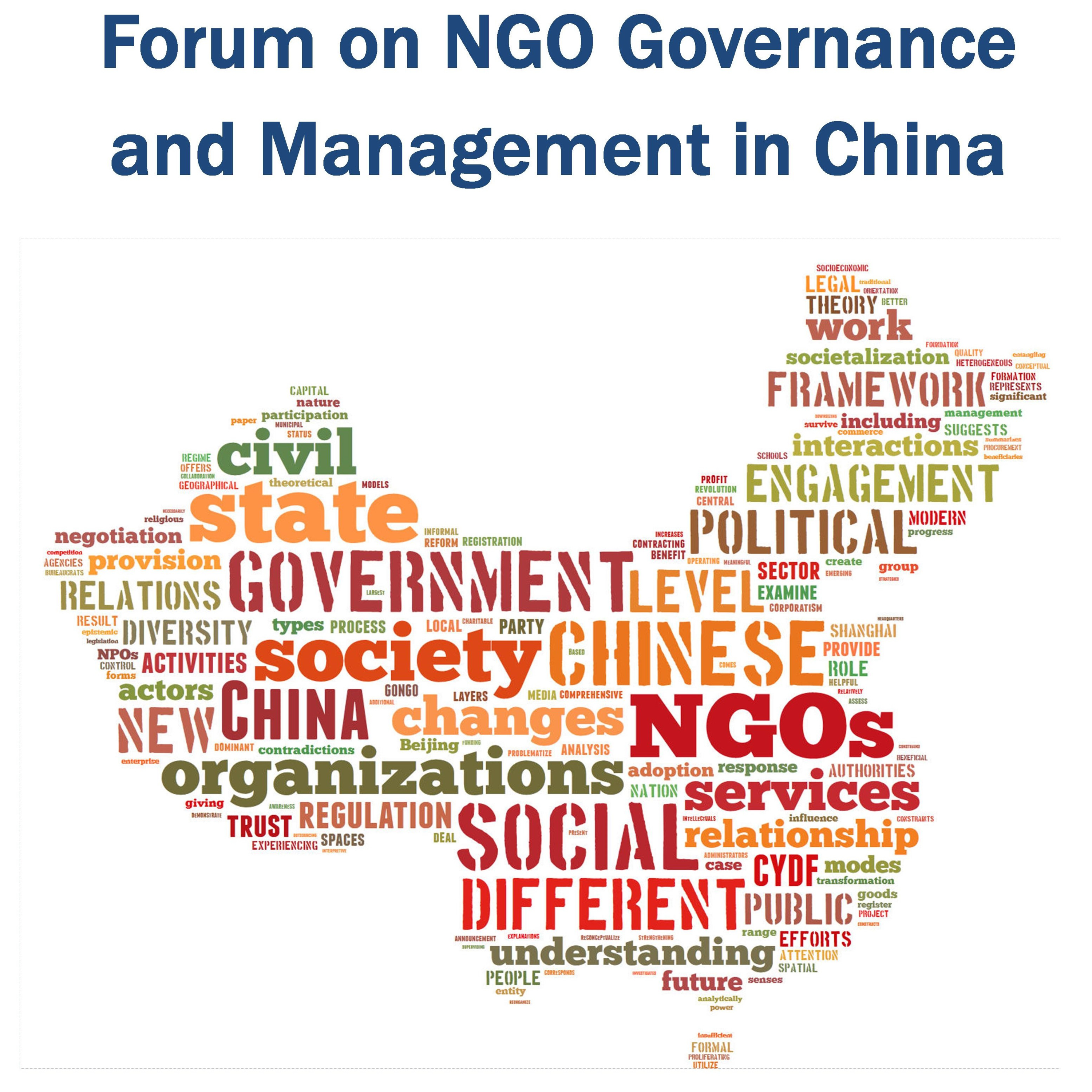
Reza HasmathForum on NGO Governance and Management - 8 - The Evolution of a Collaborative Governance ModelSince the early 2000s, the central government has encouraged local governments to begin contracting out the provision of social services, such as education and health services, to both for and non-profit organizations to meet increasing demands for social services and to modernize the Chinese bureaucracy. As non-profits are uniquely situated in communities, contracting with non-profit organizations might improve public policies if mechanisms are created to allow these organizations’ experiences and social innovation to feed back into the policy process. The two cases examined in this paper, HIV service contracting in Yunnan and migrant education contracting in Shanghai, illustrate that cu...
2020-12-2920 min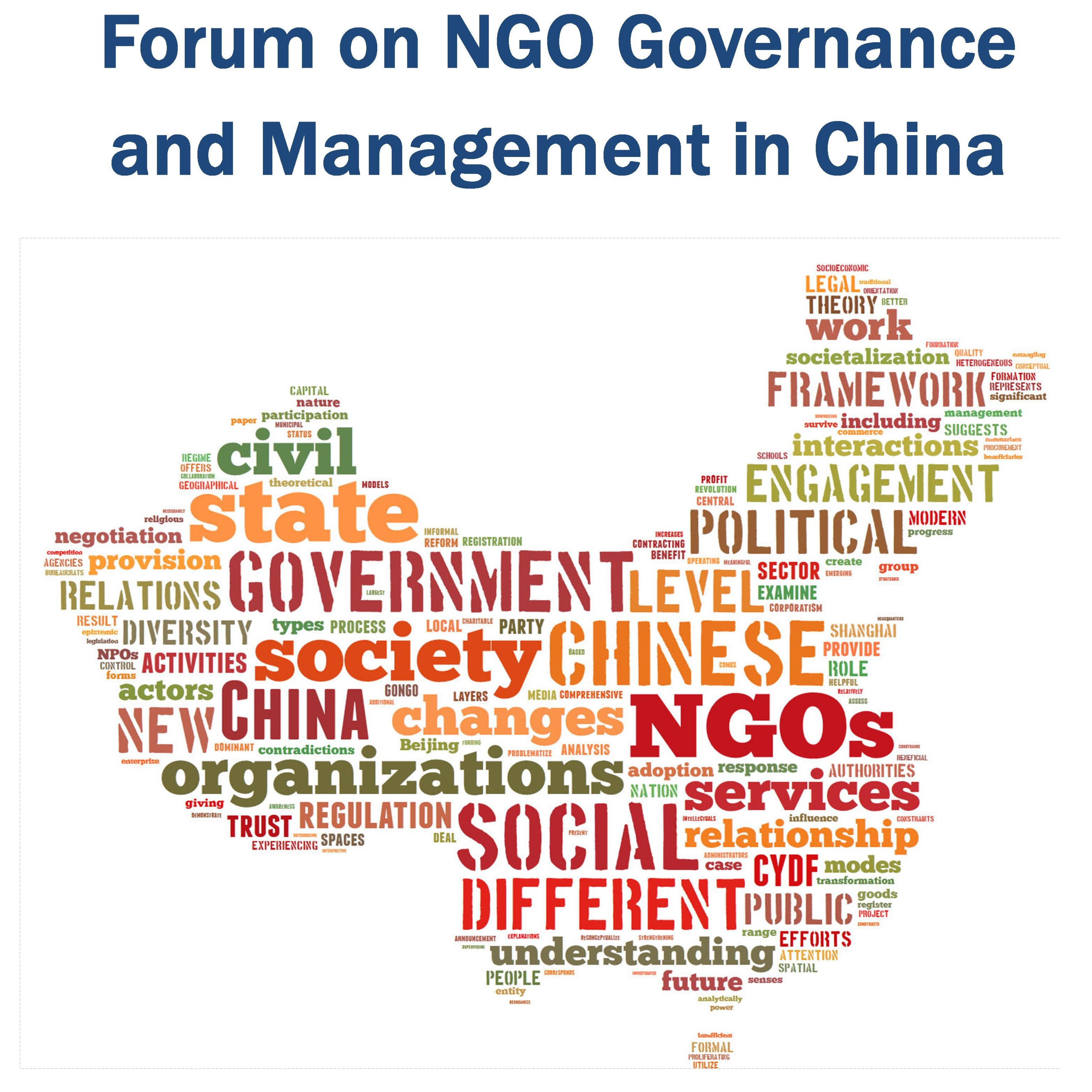
Reza HasmathForum on NGO Governance and Management - 7 - Diversity, Contradictions and Dilemma of Chinese NGO RegulationsMainland China is experiencing a striking upsurge of non-governmental associational activities in the past thirty years, especially since the mid-1990s. However, it is hard to introduce a simple approach, such as civil society or corporatism, to justify the nature of the emerging sector, because of the high diversity and contradictions among these new so-called NGOs. Based on comprehensive data of NGOs in China, this paper summarizes the diversity and contradictions into four dimensions: independent/dependent, non-profit/for-profit, formal/informal, and modern/traditional. Each of these dimensions has had and will have great impacts on the engagement of the...
2020-12-2921 min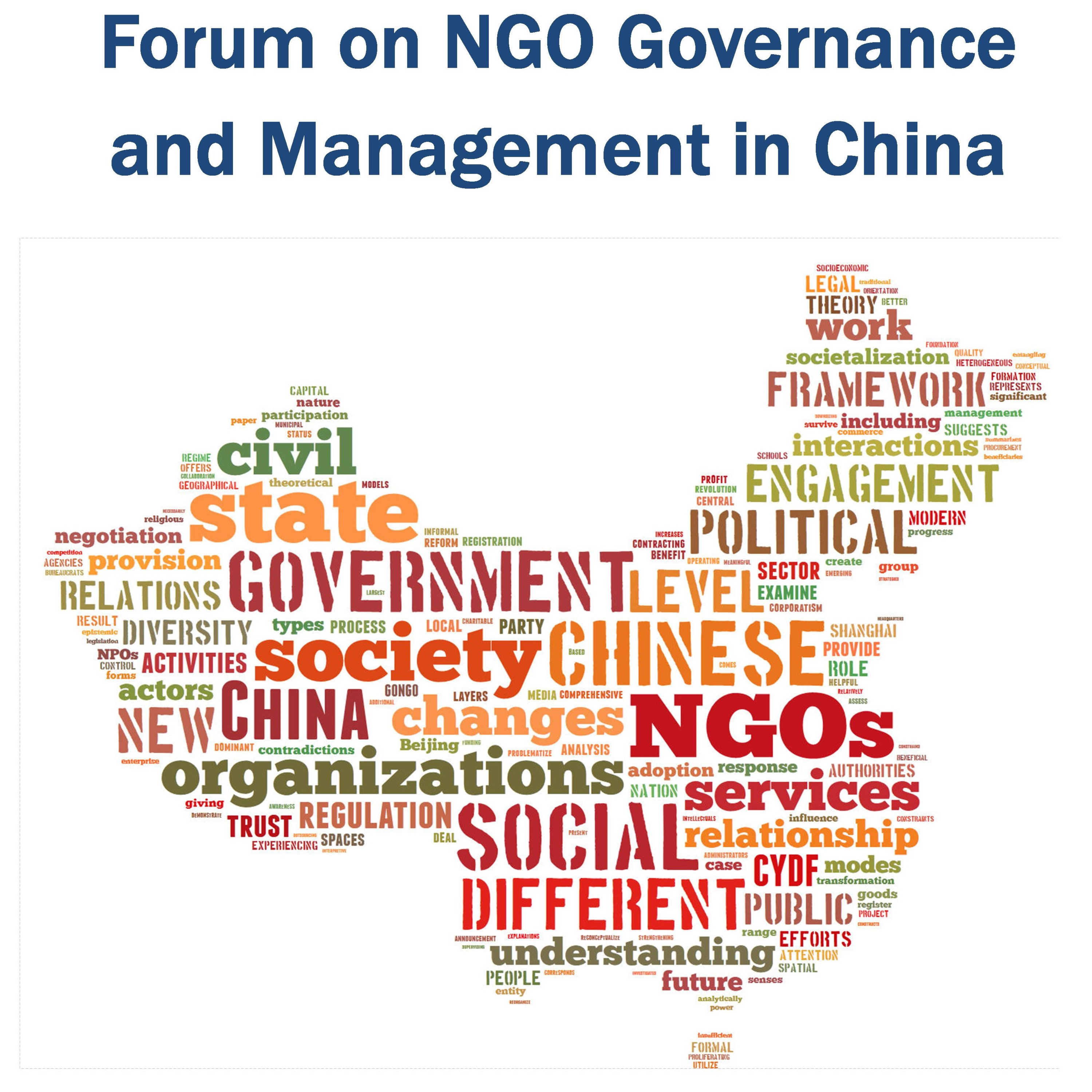
Reza HasmathForum on NGO Governance and Management - 6 - Meaningful Changes in the Legal Environment for CSOsThe March 2013 National People’s Congress meetings included an announcement of huge significance for the legal environment for NPOs in China. As part of a far-reaching plan to reorganize and streamline government, the highest level of the Party-state announced that the Ministry of Civil Affairs (MCA) is to work with the State Council to implement new regulations for the registration of NPOs. The general outline of the implementation of the policy is as follows: (1) Two different types of organizations are to be permitted to directly register and engage in market competition; these are trade associations and chambers of commerce. (2) Ot...
2020-12-2914 min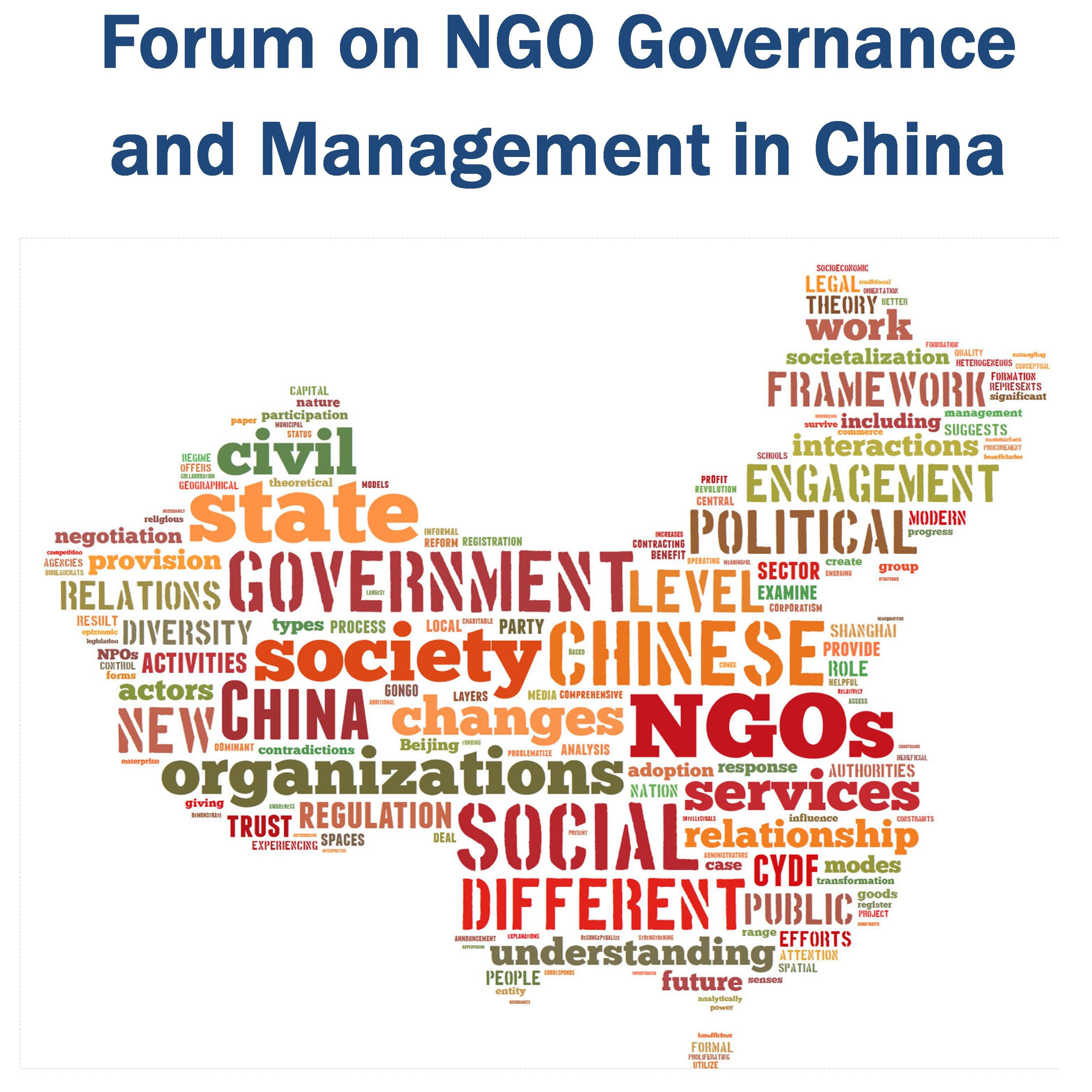
Reza HasmathForum on NGO Governance and Management - 5 - Layers and Spaces of the Chinese StateThe Chinese state, in the twenty-first century, is an increasingly heterogeneous entity comprised of multiple layers and spaces. This diversity is, in part, attributable to the rise of non-governmental organizations operating in China. This paper examines how state and NGOs transform each other. I argue that we need to problematize and thus reconceptualize the Chinese “state” to include a spatial dimension. I demonstrate this through a case study of migrant NGOs in Beijing and Shanghai where these NGOs are making strong efforts to engage with central and local authorities. This is a significant turn of events. I contend that the...
2020-12-2921 min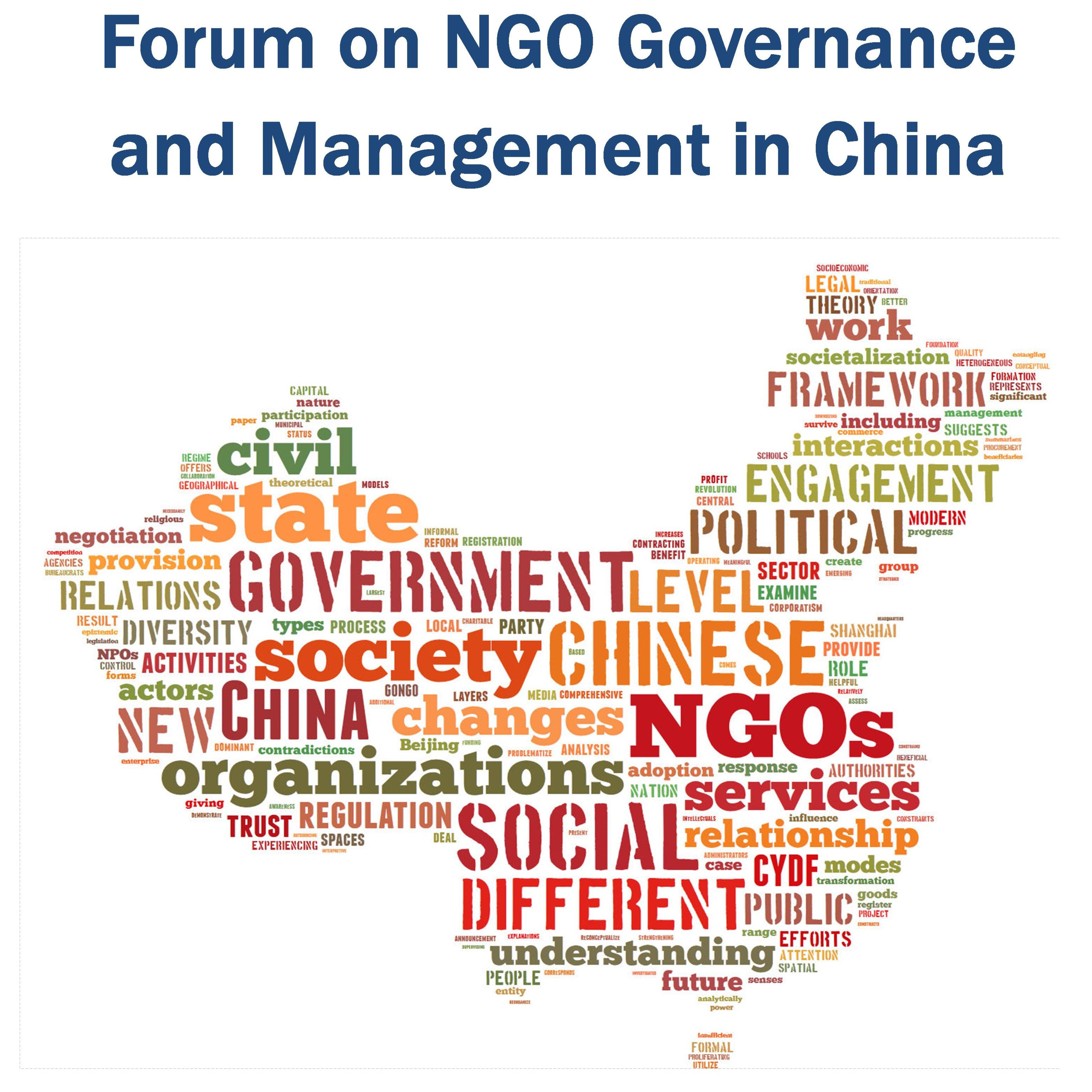
Reza HasmathForum on NGO Governance and Management - 4 - (Dis)Trusting NGOs in ChinaCitizens in China generally have a great deal of trust for political institutions. Yet the broader Chinese public is much more skeptical of NGOs. Chinese NGOs suffer from relatively low levels of public trust in two senses. First, Chinese trust NGOs much less than they do government institutions. Second, compared to other East Asian states, Chinese trust their NGOs much less than do other East Asians. Drawing upon two waves of surveys of popular attitudes towards NGOs, this paper will examine the determinants of trust in NGOs. The paper analyzes a number of factors that influence trust in NGOs...
2020-12-2922 min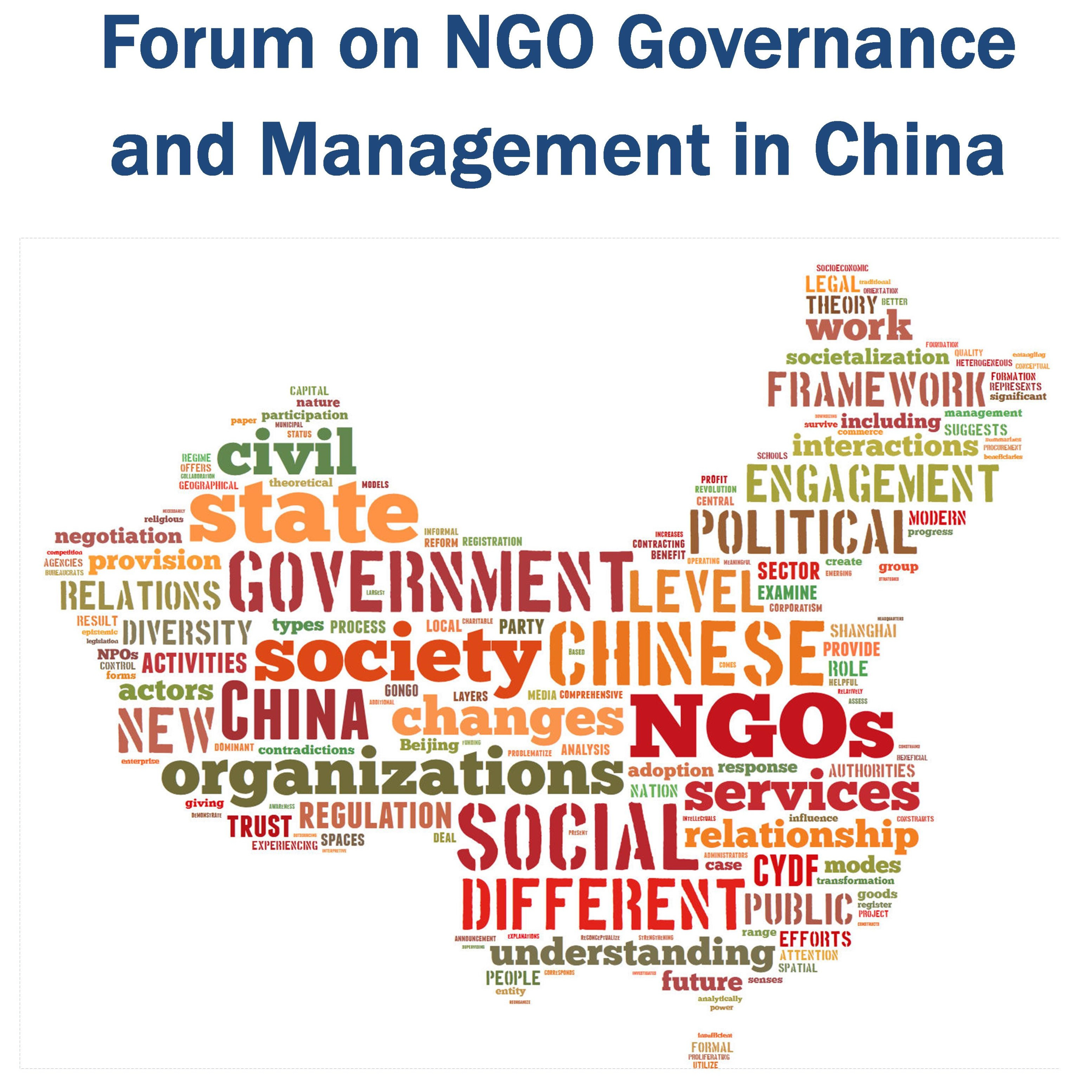
Reza HasmathForum on NGO Governance and Management - 3 - Is Chinese Society a Kind of Civil Society?Since the 1990’s, Chinese (liberal) intellectuals have begun to compose the vision of civil society as the future of the development of Chinese society. Is China a kind of civil society? My answer is Yes. In fact, the pursuit of civil society was a part of the building of “modern society” from the revolution of 1911. Though the progress was broken by the socialist revolution in 1950’s, the giving up of class struggle around 1980 resumed the progress. The framework of three-sector social theory is very helpful for us to judge if China is a civil society. If we can agree to inclu...
2020-12-2917 min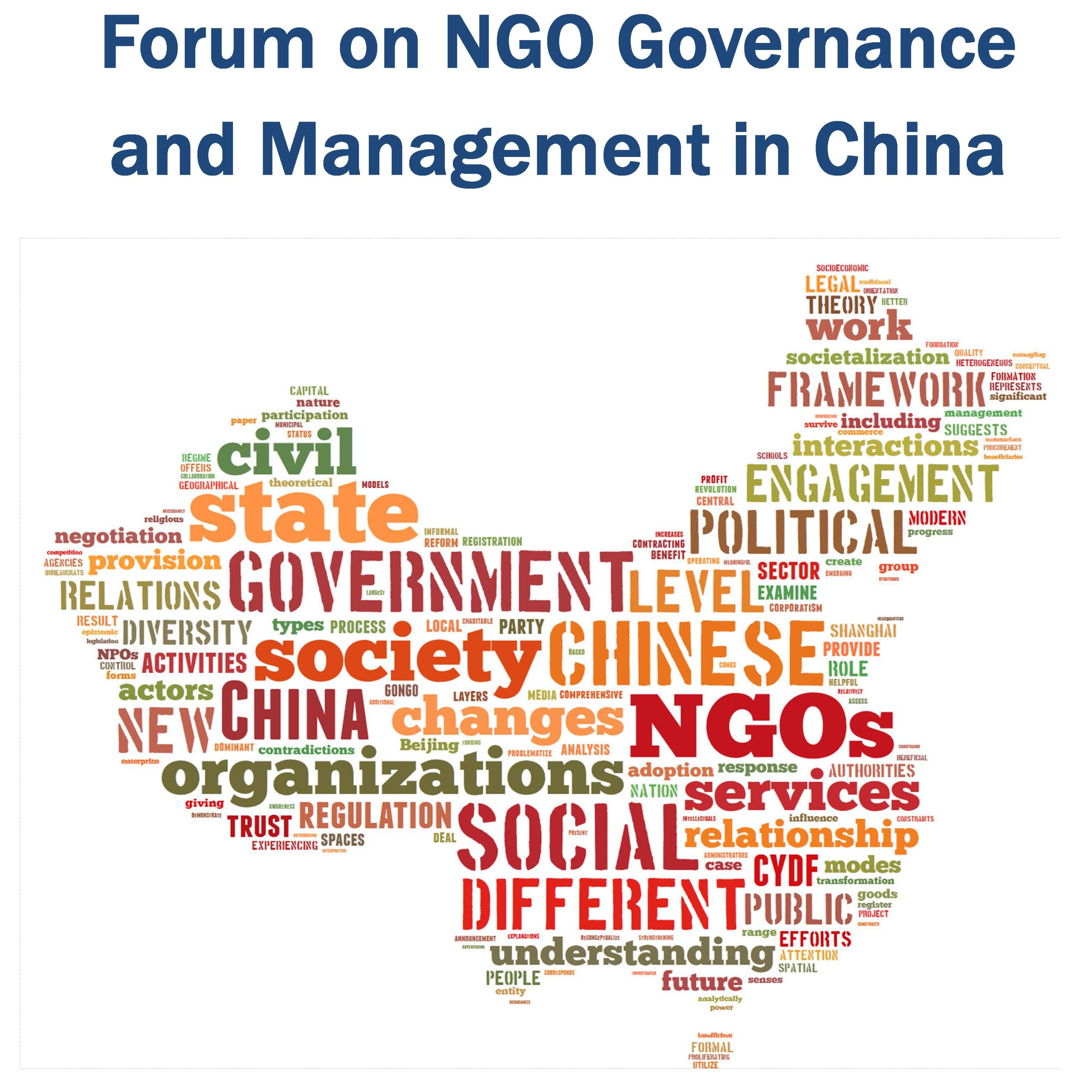
Reza HasmathForum on NGO Governance and Management - 2 - Mapping the Dynamics of Civil Society in ChinaThis talk revisits a framework for analyzing state-NGO relations that appeared in State and Society Responses to Social Welfare Needs in China (Routledge, 2009). I argued that the dominant frameworks used to analyze state-NGO relations in China – corporatism and civil society – did not provide a comprehensive understanding of the diversity of state-civil society interactions in China. I proposed instead examining state-NGO interactions through three modes of state-society interaction: regulation, negotiation and societalization. Regulation describes a top-down formal process initiated by the state to manage social actors and initiatives. Negotiation describes consensual, and generally more informal, interactions initiated by either the stat...
2020-12-2918 min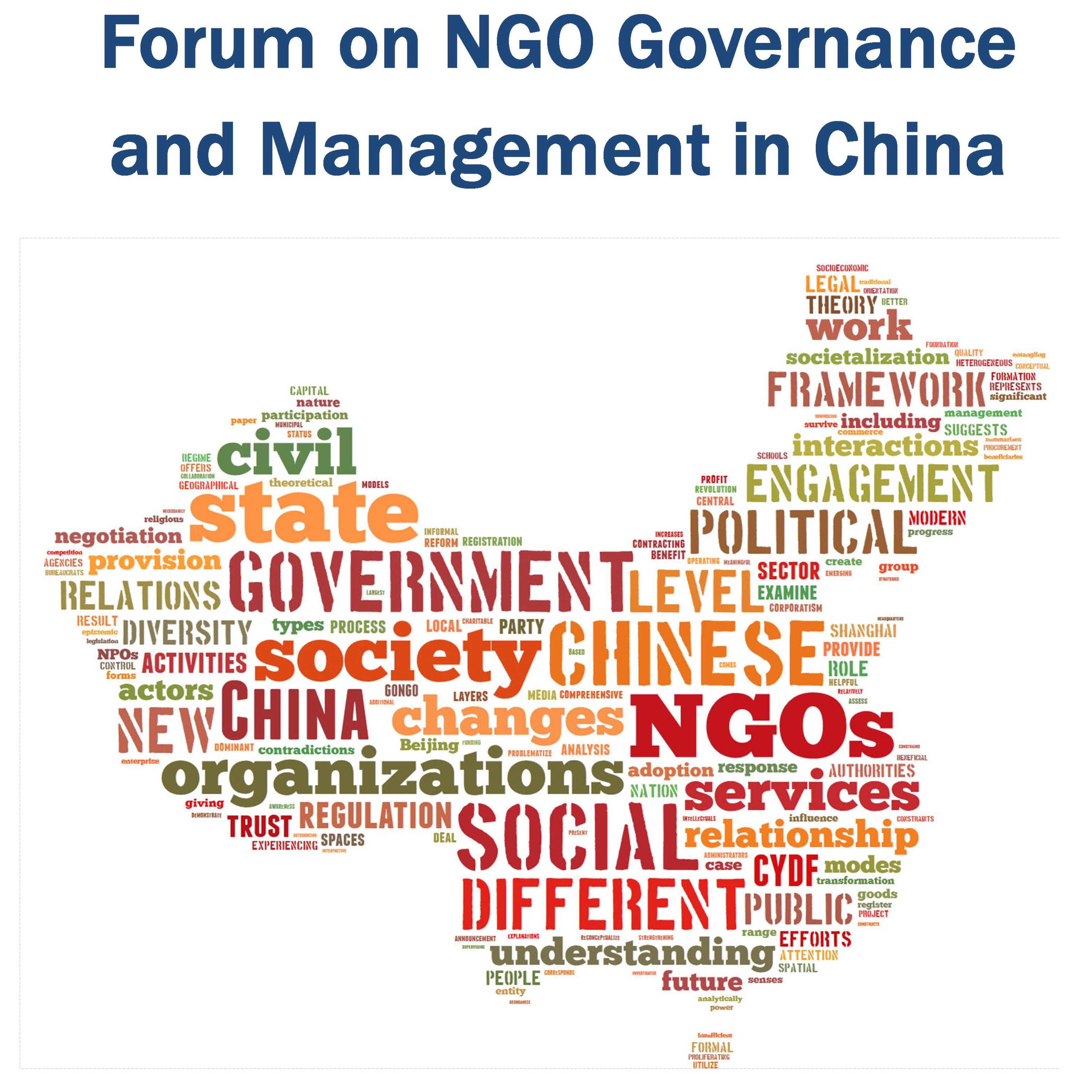
Reza HasmathForum on NGO Governance and Management - 1 - Welcome and IntroductionWelcome and introduction.
Click on the hyperlink for more information on the Forum and book.
2020-12-2906 min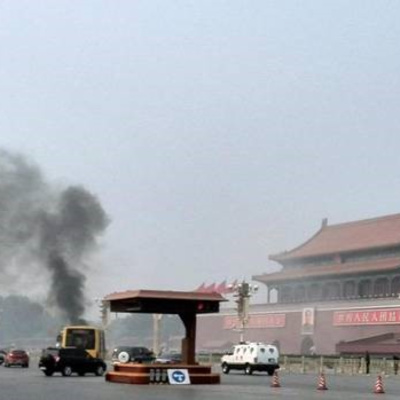
Reza HasmathWhat Explains the Rise of Ethnic Minority Tensions in China?This talk looks at explanations for the rise of ethnic minority tensions in China.
See the accompanying paper here.
2020-12-281h 05
Reza HasmathThe NGO and the State in ChinaThis talk looks at the relationship between the NGO and the state in China.
See the accompanying papers here and here.
2020-12-2804 min
Reza HasmathEuropean Migrants and Integration in the Labour MarketThis talk looks at European migrants and their integration in the labour market.
See the accompanying books here and here.
2020-12-2809 min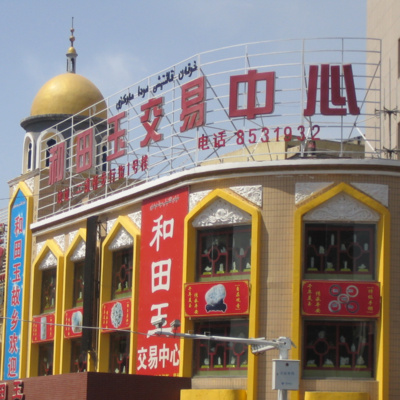
Reza HasmathThe Contemporary (Dis)Integration of Ethnic Minorities in XinjiangThis talk looks at the contemporary (dis-)integration of ethnic minorities in Xinjiang.
See the accompanying paper here.
2020-12-2805 min
Reza HasmathWhat Drives Contemporary EU-China Strategic Engagement?This talk looks at the drivers for contemporary EU-China strategic engagement.
See the accompanying paper here.
2020-12-2810 min
Reza HasmathIs Canada Shaping a New Model for Managing the Refugee Crisis?This talk looks at whether Canada is shaping a new model for managing the refugee crisis.
See the accompanying books here and here.
2020-12-2804 min
Reza HasmathThe Ethnic Penalty in the Labour Market: Prevalence, Causes and Policy OptionsThis talk looks at contemporary ethnic minority experiences in the labour market by focusing on describing the 'ethnic penalty' that emerges when analyzing the relationship between the educational and occupational levels of ethnic minority members. While intuitively, overt discrimination insofar as one's physical appearance or linguistic abilities, and first generation immigrant status, are often cited as prevailing reasons to explain the 'ethnic penalty', the findings presented in this talk will suggest that explanatory factors such as an individual’s social network, a firm’s working culture, and social trust in a community are equally important considerations. Moreover, the talk will c...
2020-12-2750 min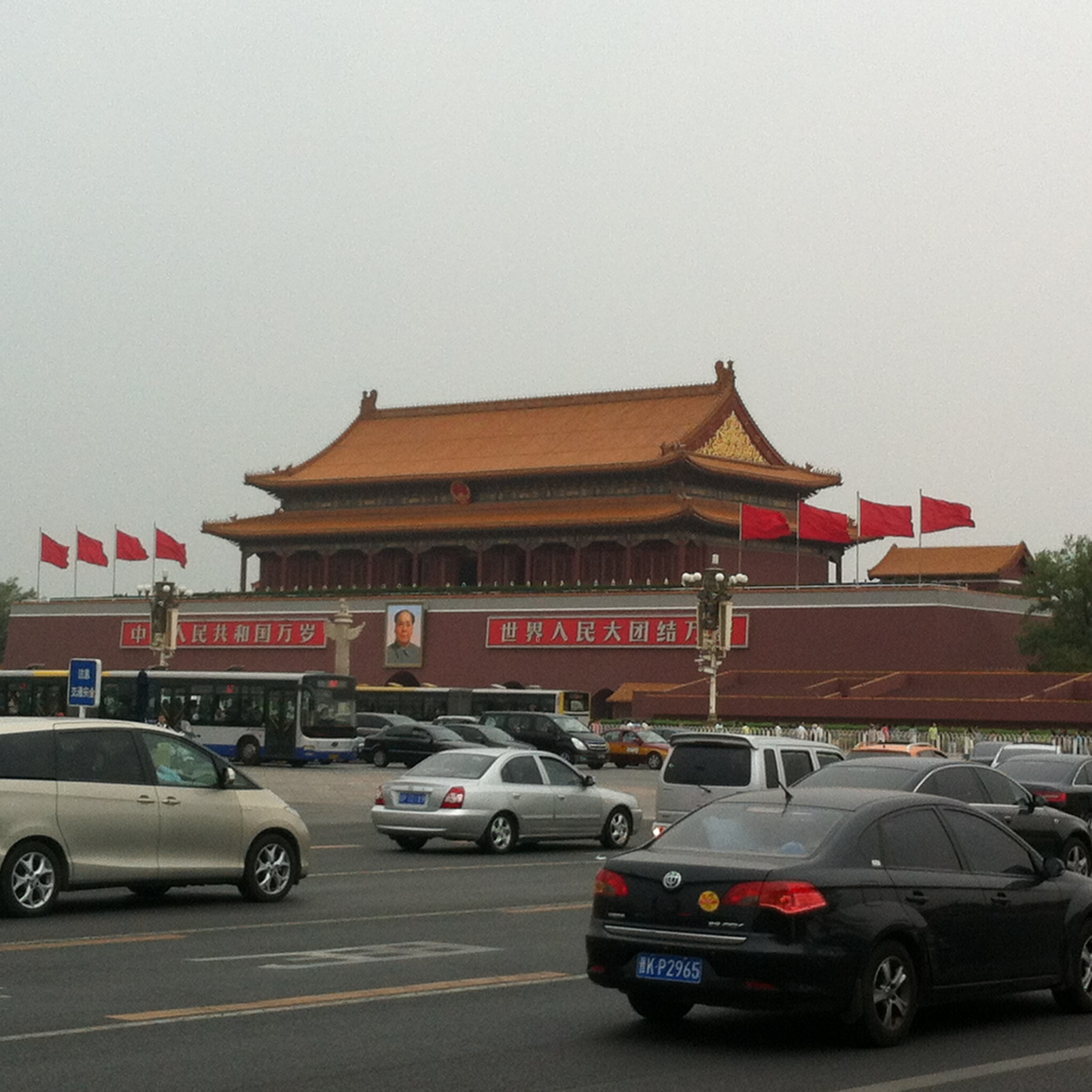
Reza HasmathThe Beijing Consensus: An Alternative Model of Policy or Hype?This talk suggests that the ‘Beijing Consensus’ represents an analytical dilemma: it lacks a codified set of principles and policy tools and as such, it can be a difficult model for policymakers to utilize in their deliberation. Relatedly, in the search for a concrete set of principles and policy tools, the literature has a tendency to simultaneously conflate the ‘Beijing Consensus’ with the Chinese model of development – a red herring to say the least – with the relevant critiques following suit. Instead, the ‘Beijing Consensus’ should be viewed as a philosophical movement towards an ultra-pragmatic view of development policy. This in turn, can pro...
2020-12-2728 min
Reza HasmathThe Growth and Development of Chinese NGOs Domestically and AbroadThis talk looks at the strategies Chinese NGOs employ to survive and operate in an authoritarian institutional environment. What happens when Chinese NGOs that are born and socialized in such a domestic context, “go out” to other jurisdictions with similar or varying regime types? Finally, I will suggest that the internationalization of Chinese NGOs will foster a more pluralized global civil society. Ultimately, this will require us to rethink salient precepts and practices in international development.
For more information on the project, click here.
2020-12-2742 min
Career Change Advice with Dr. Jon Tam#004 How to move up the corporate ladder w/ Dr. Reza HasmathDid you know soft skills account for the majority of one's success in the workplace? In fact, it could cost you up to 25% of your income and any chances for advancement.
In this fascinating podcast, I interview my good friend Professor Reza Hasmath from the University of Alberta. We cover a span of important topics, ranging from the importance of soft skills, the most critical ages for a child's development, comparing the ethnic penalty with gender inequality, evaluating meritocracy as a myth, and identifying the skills of successful people. Below is the full list of the things...
2019-07-131h 15